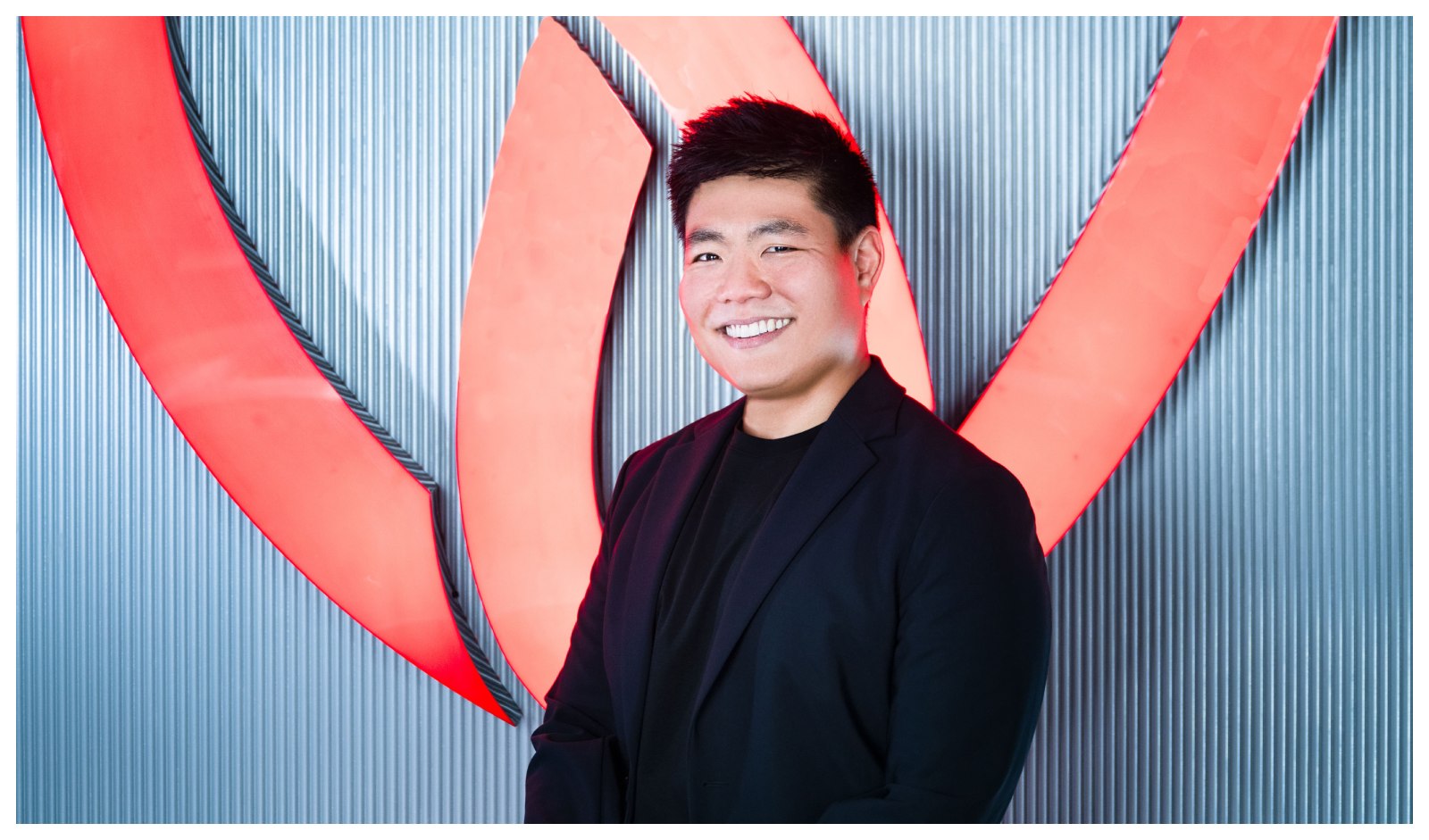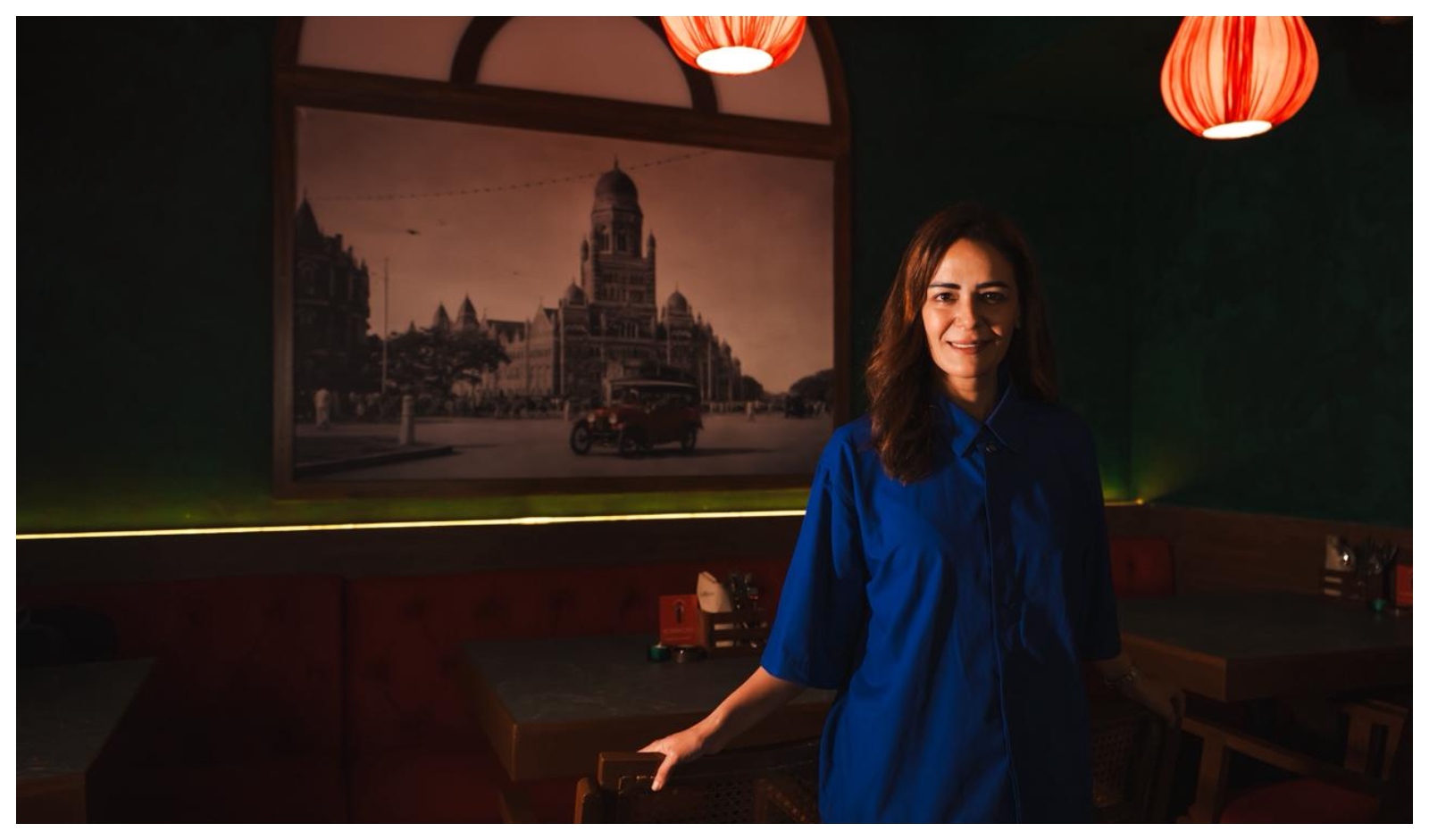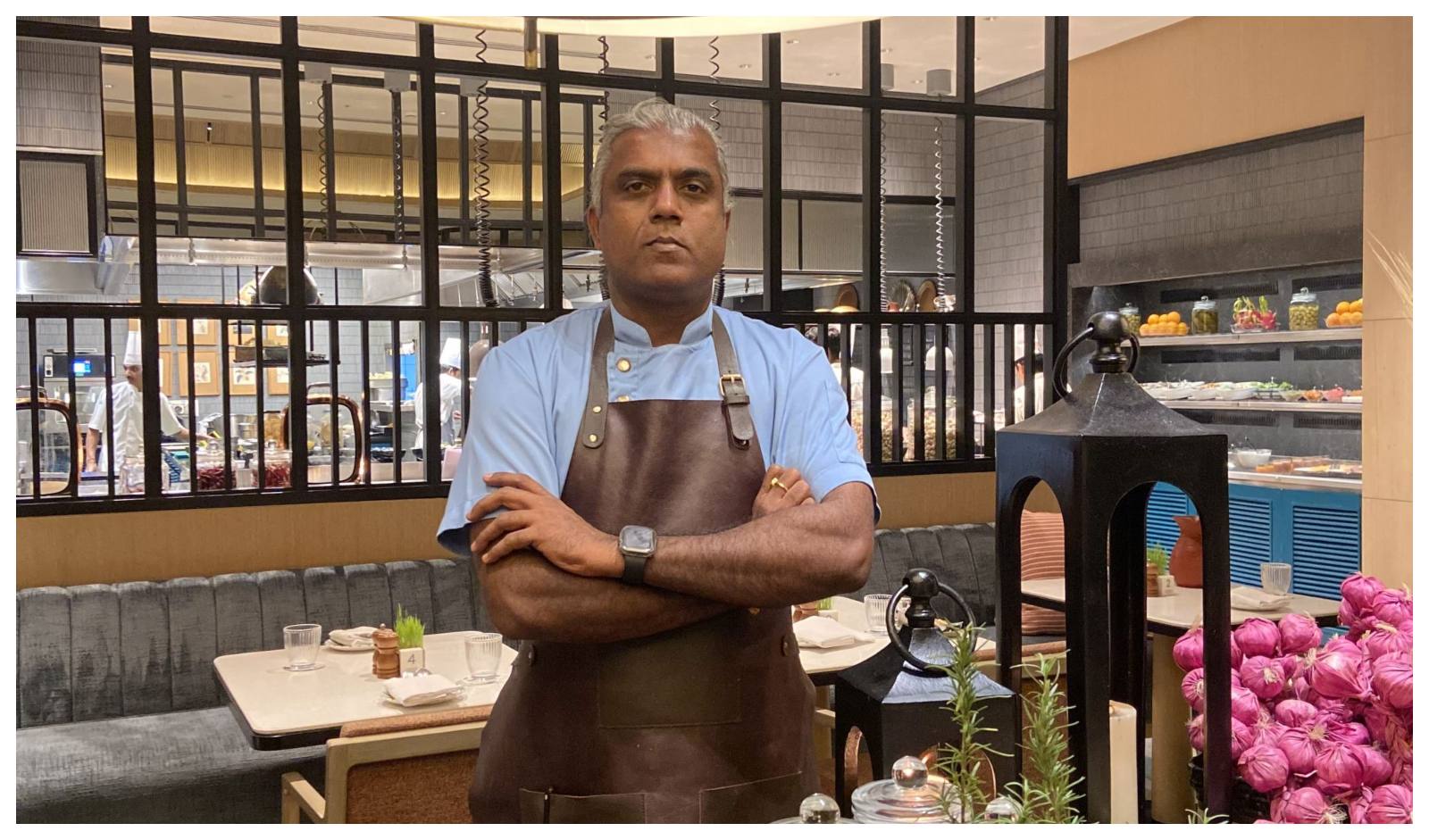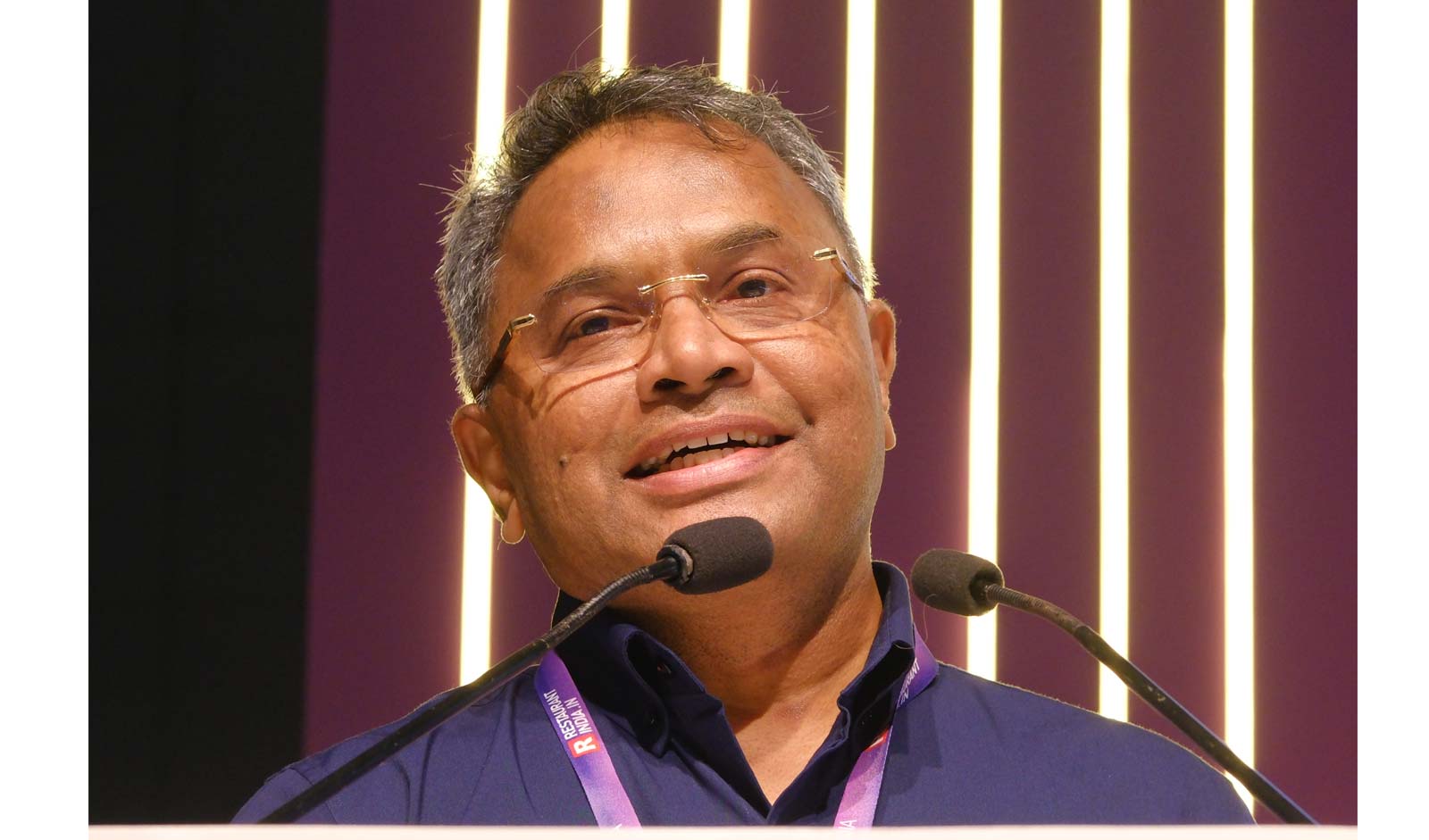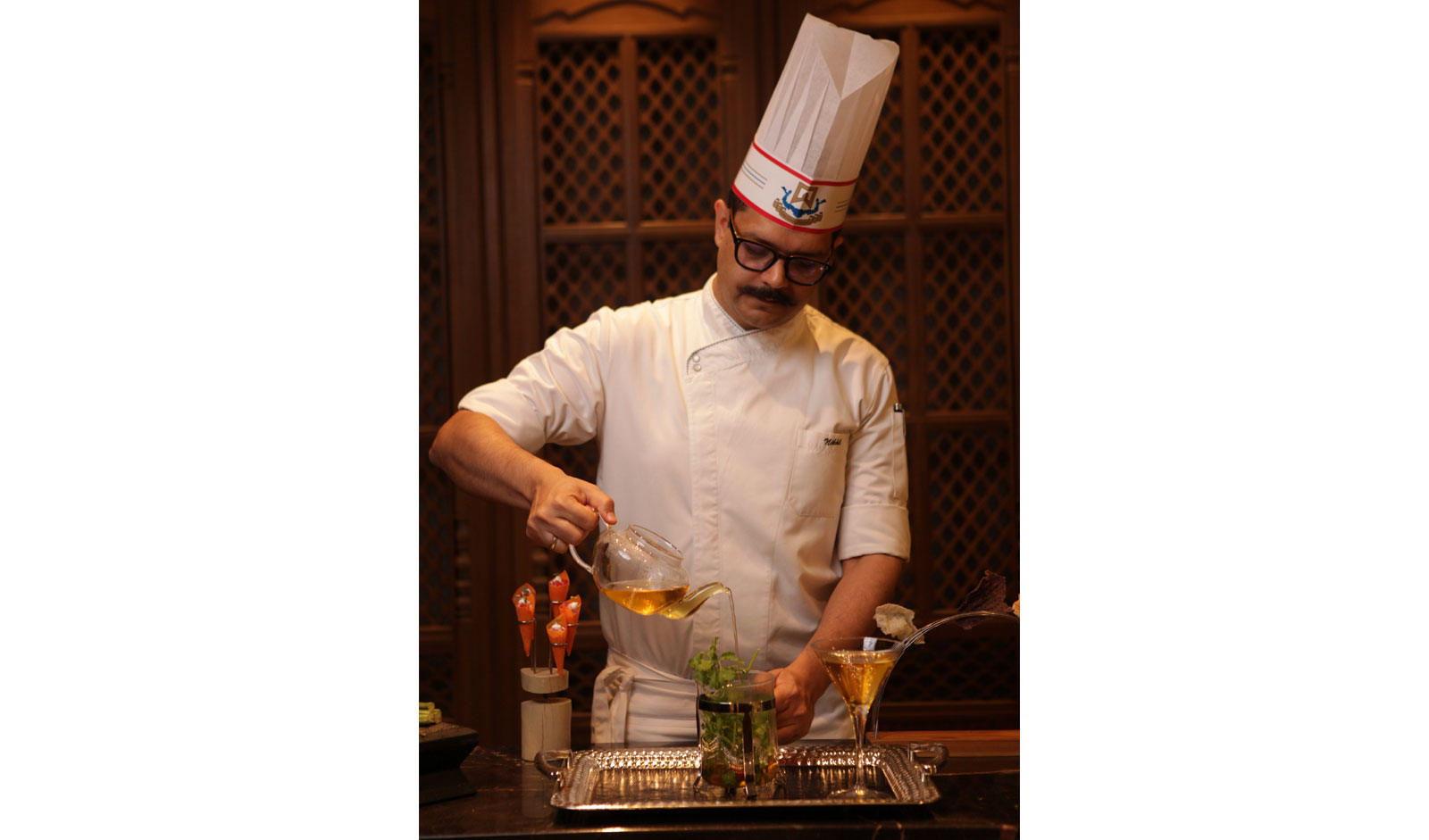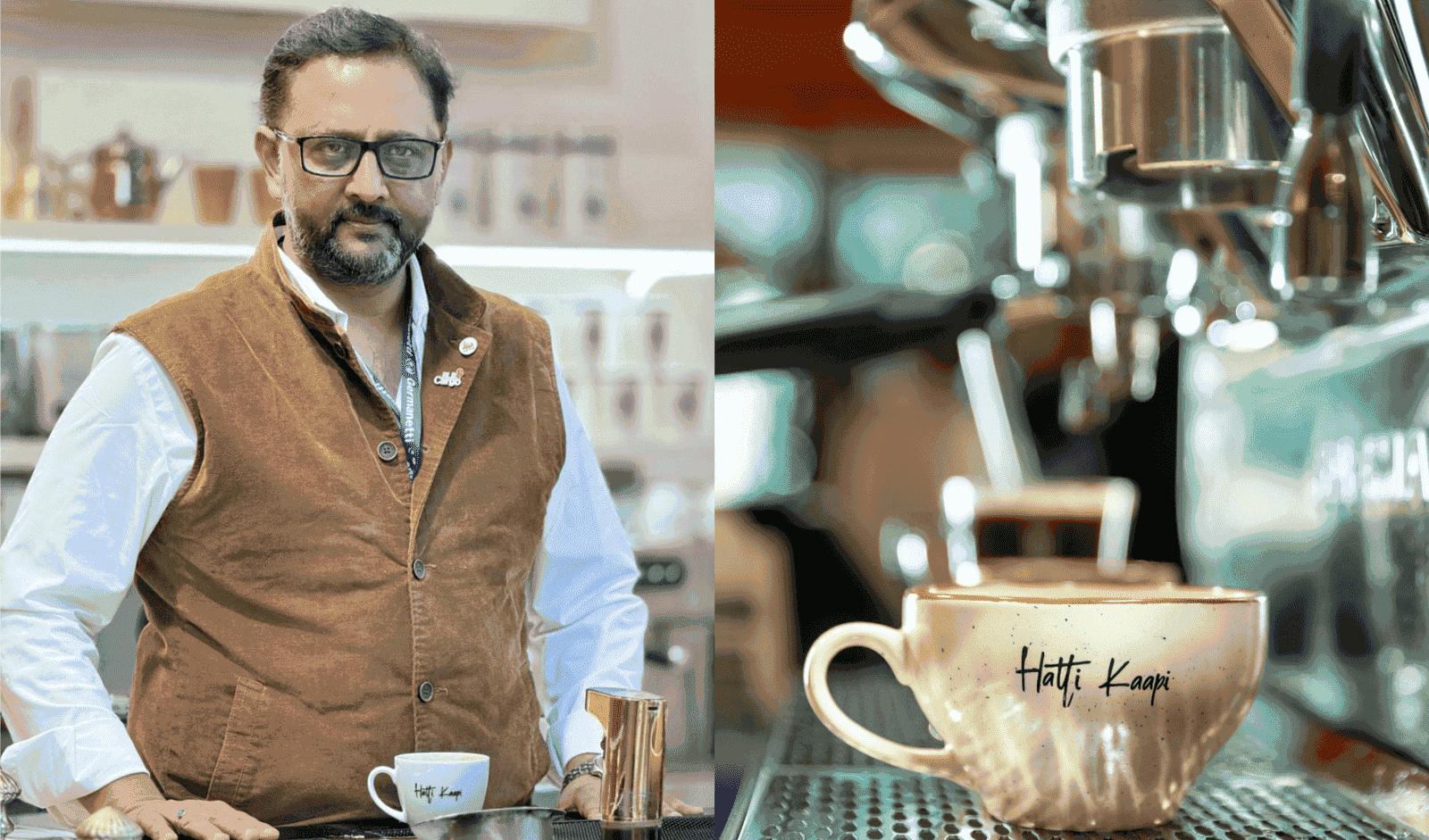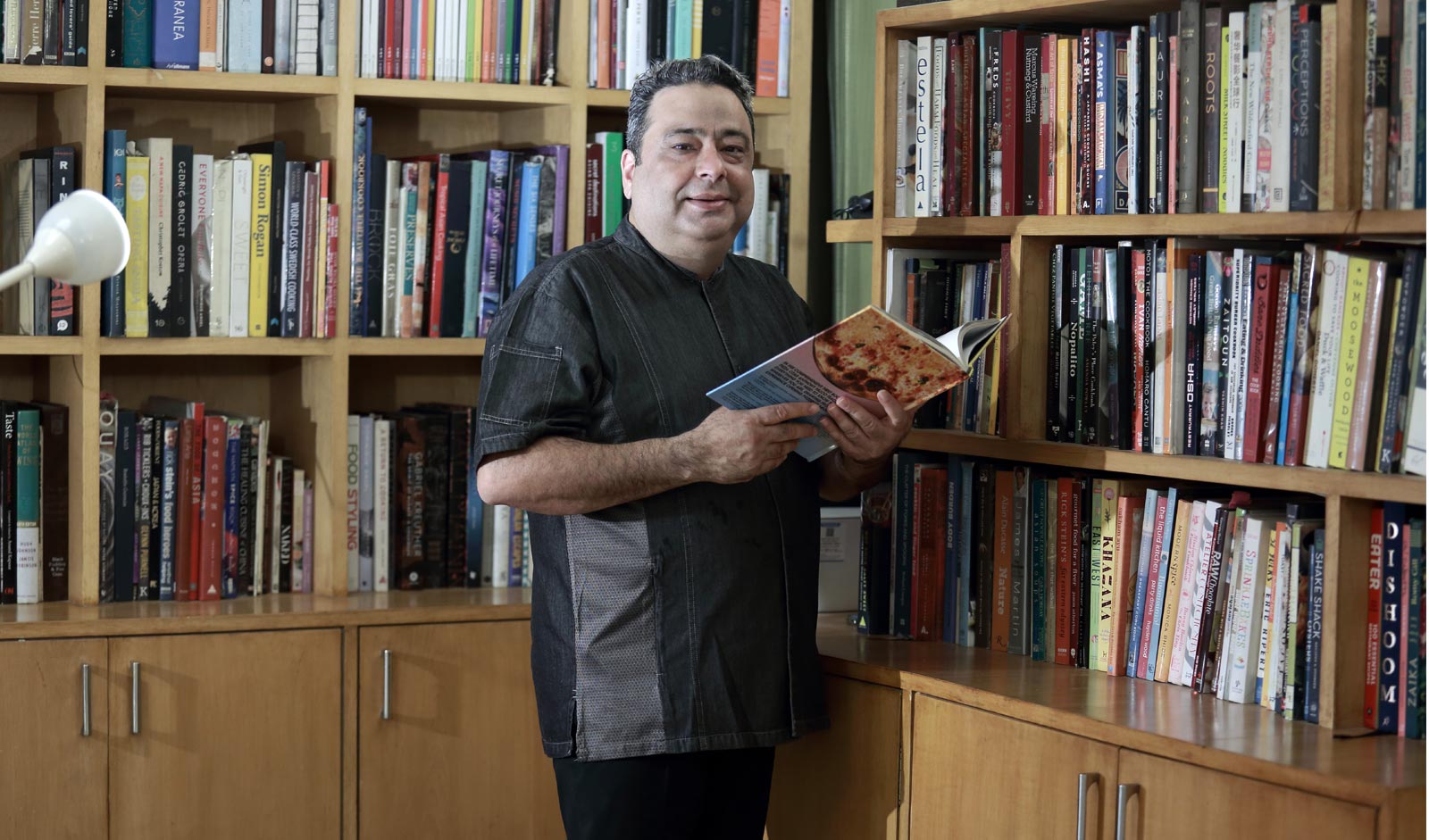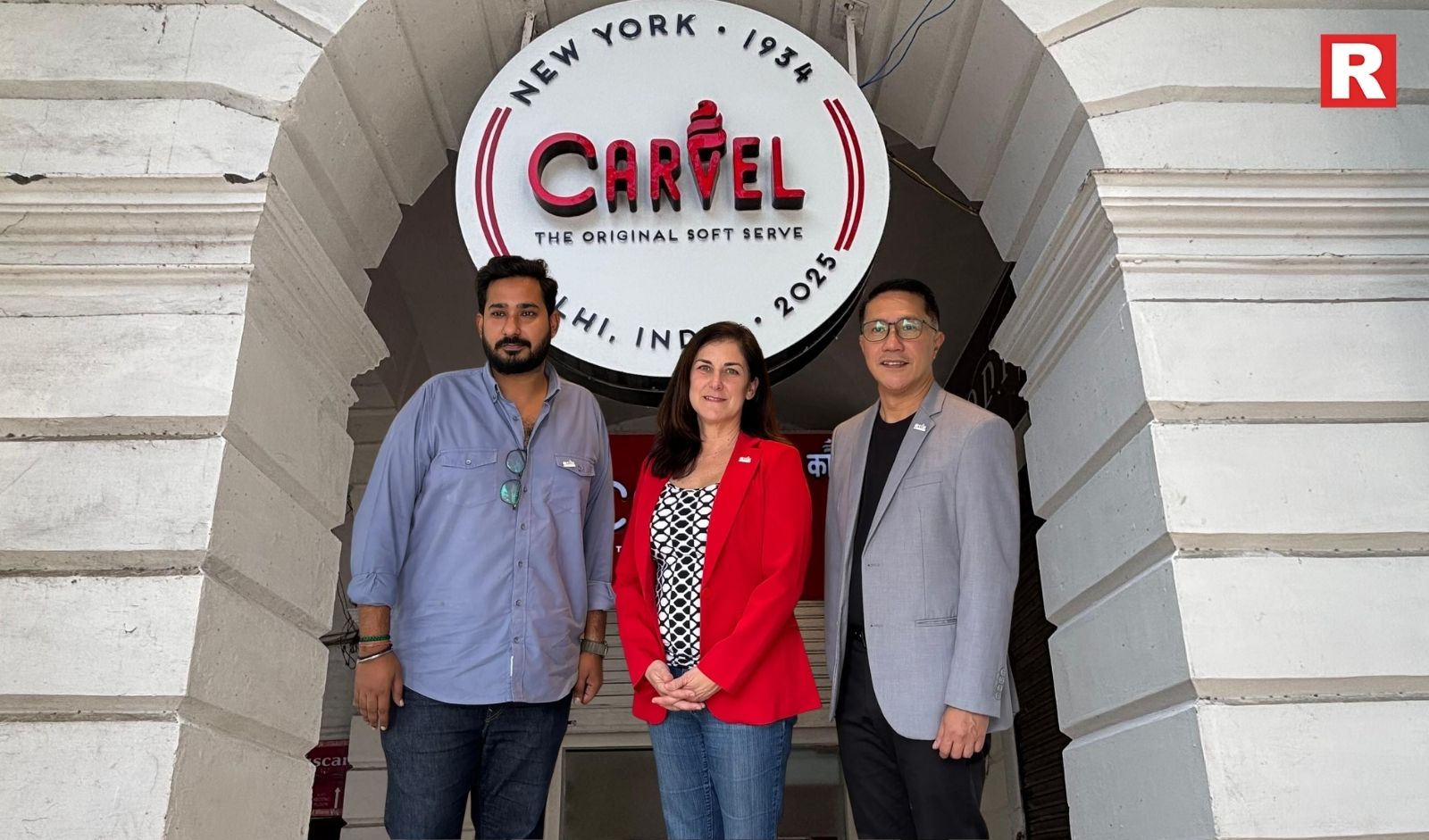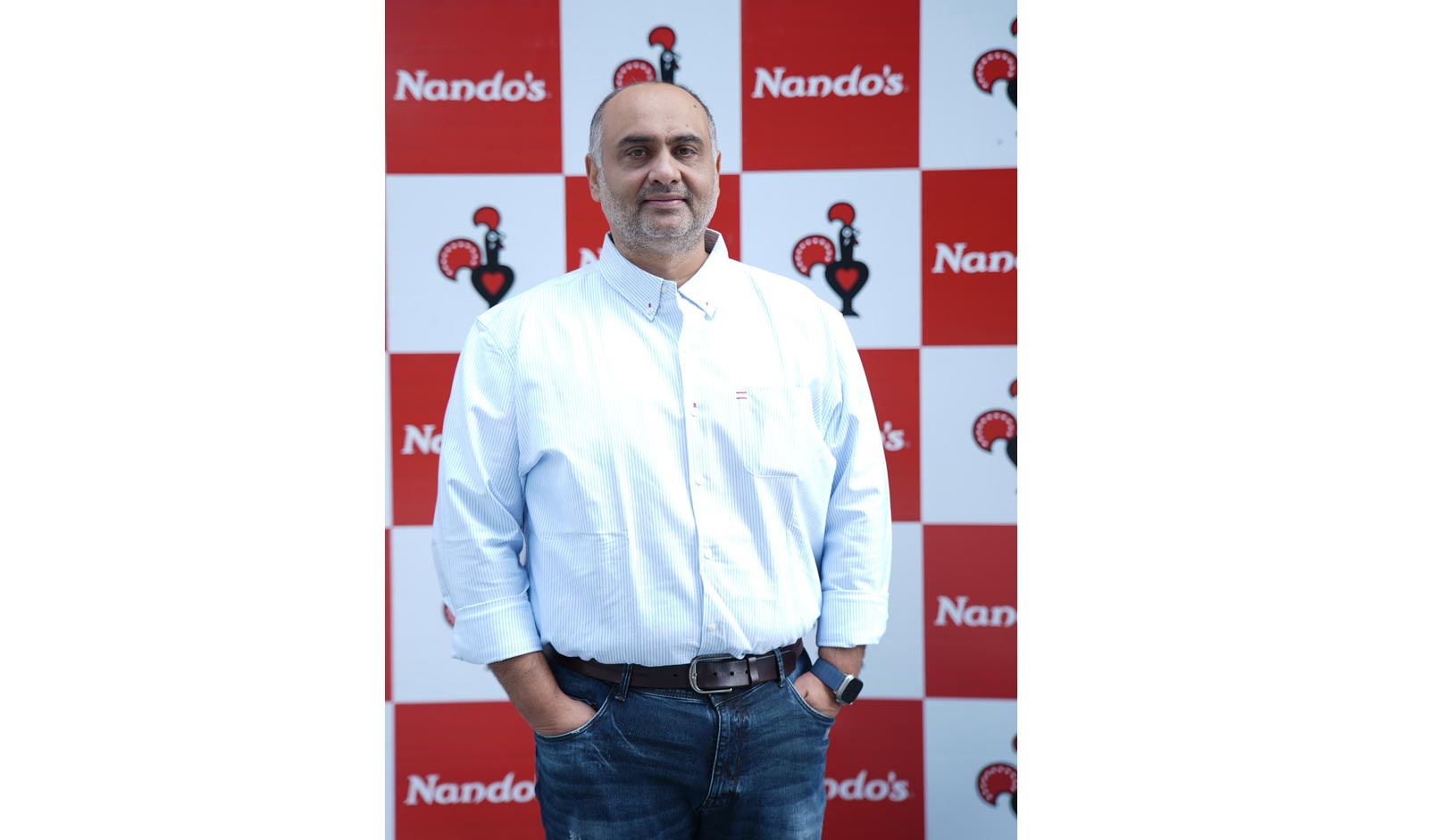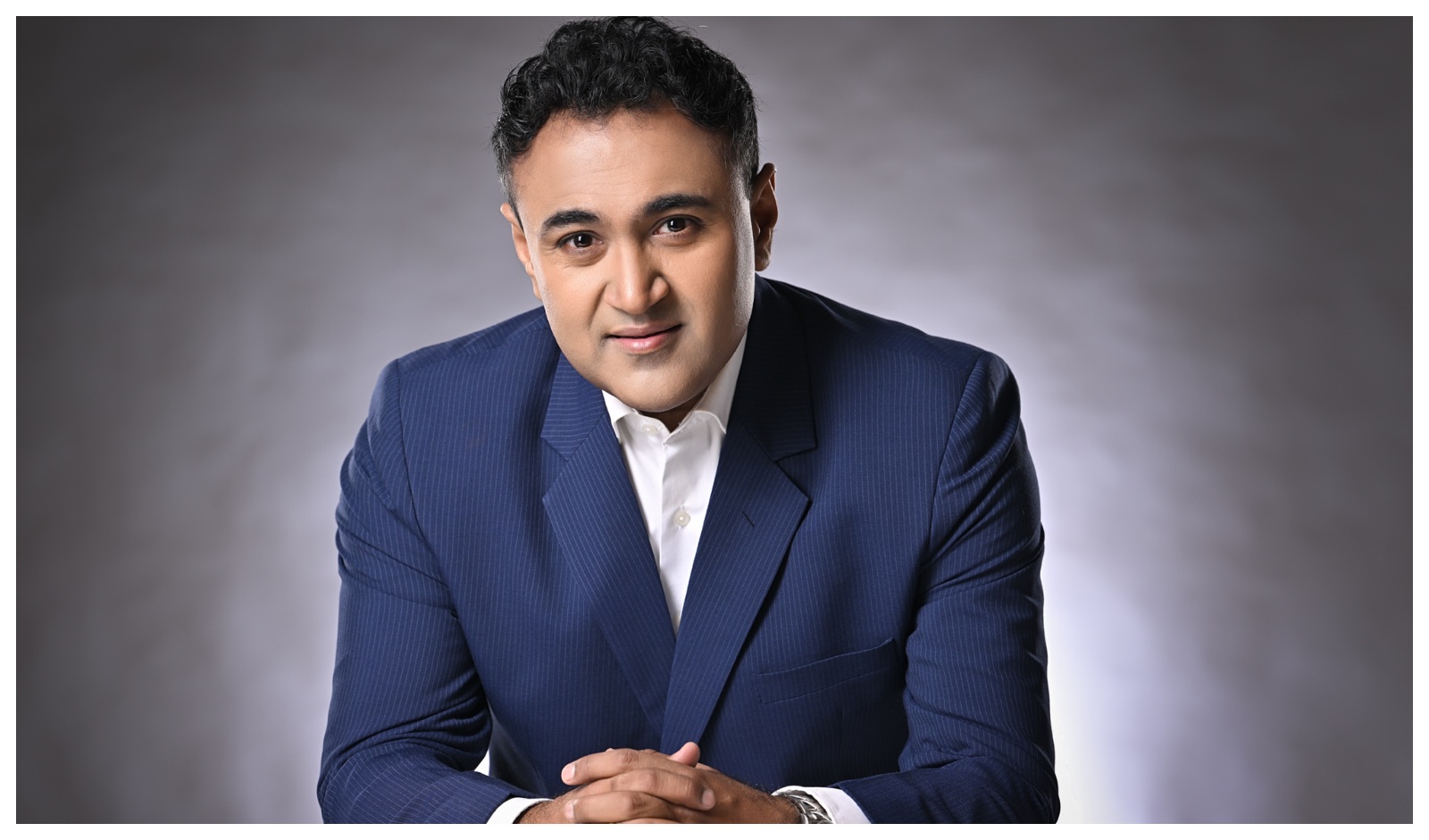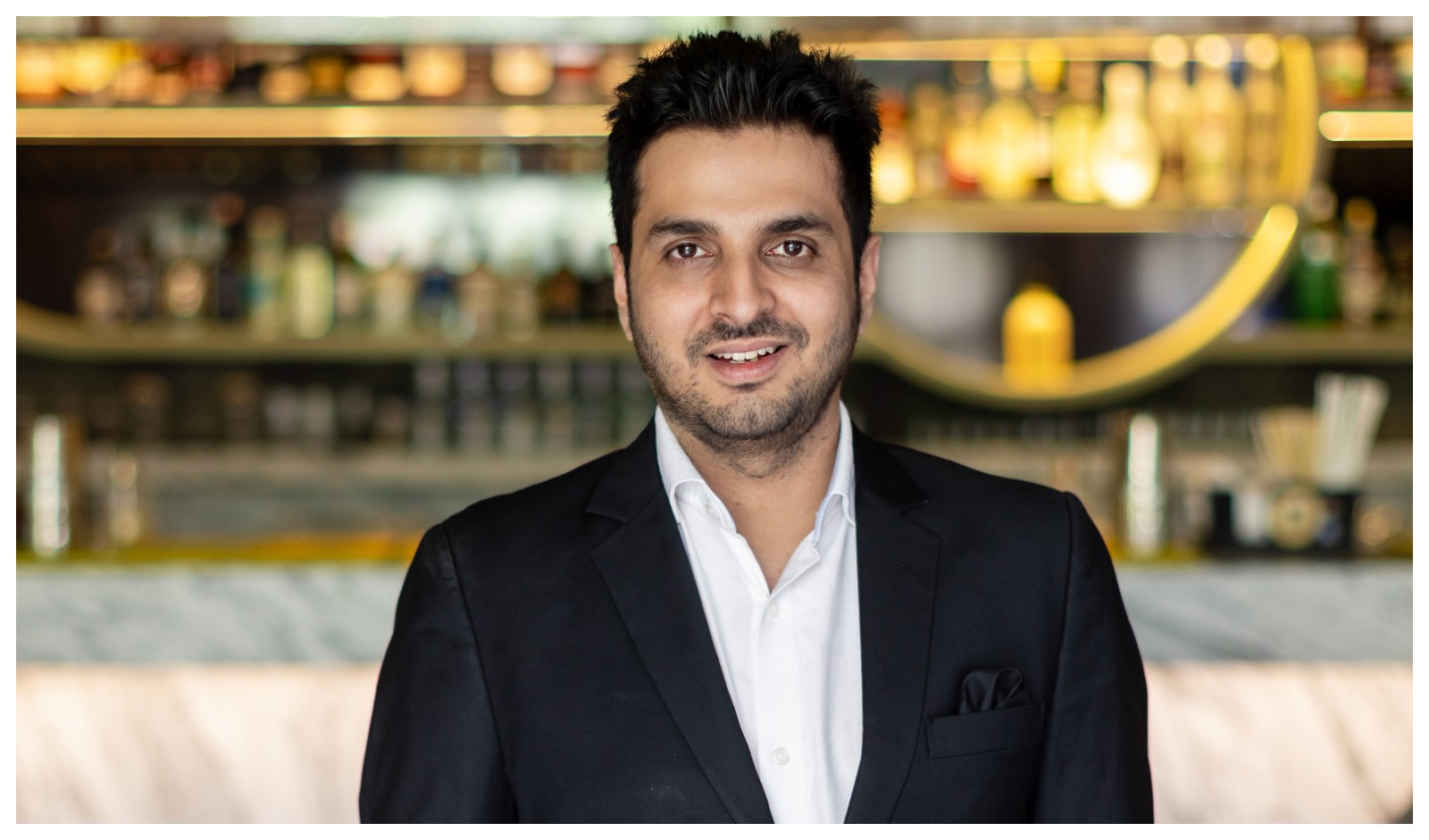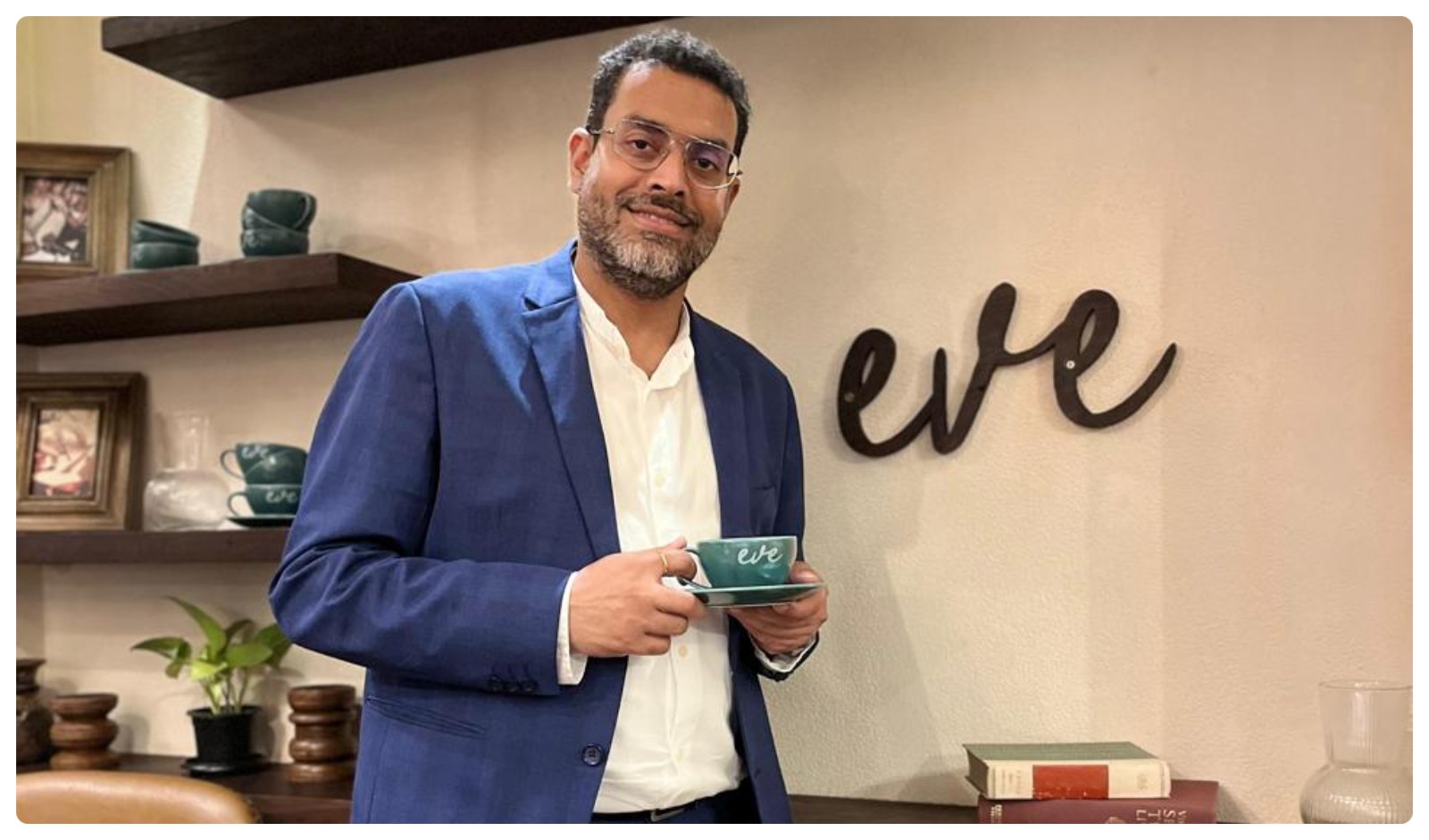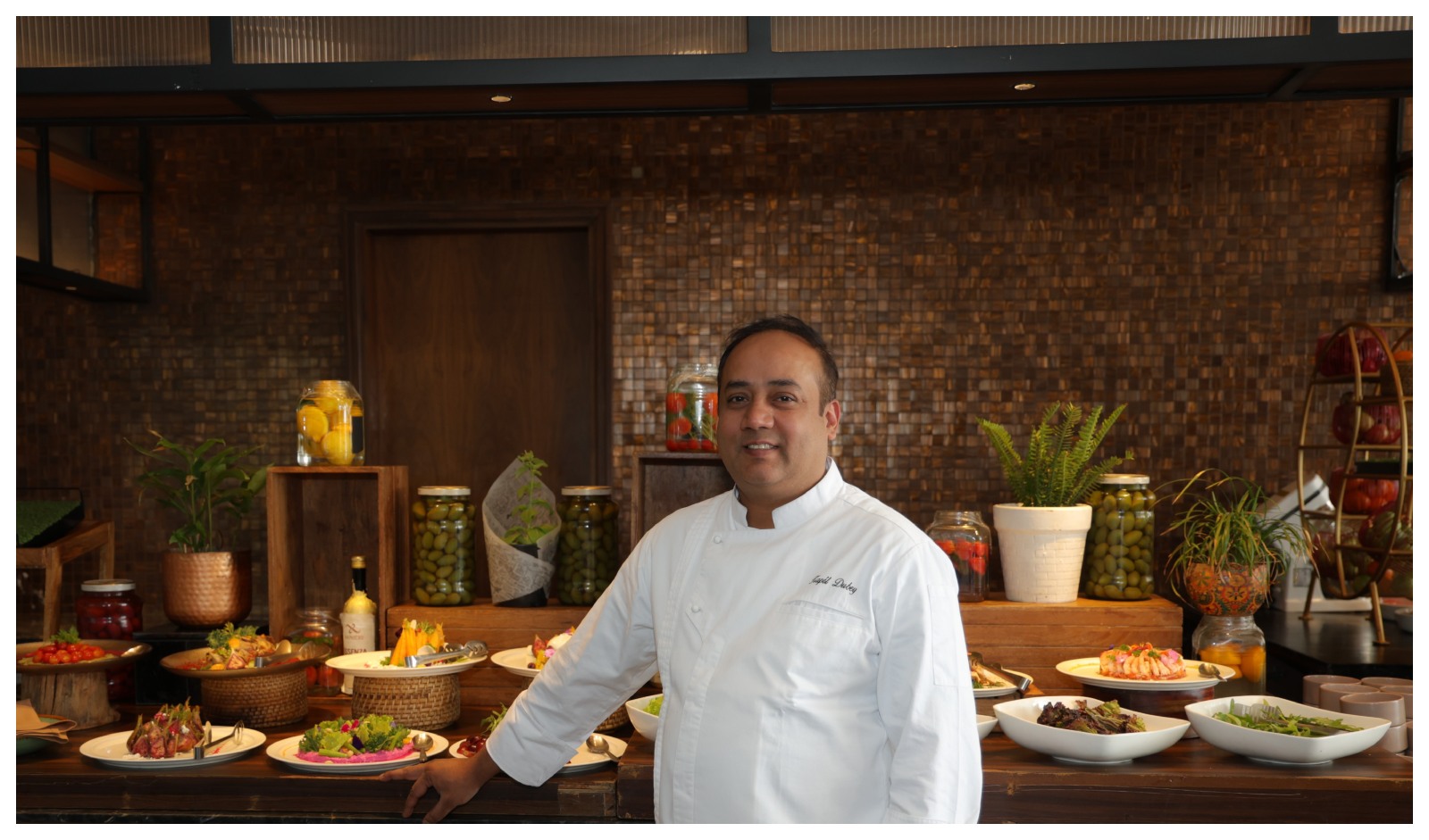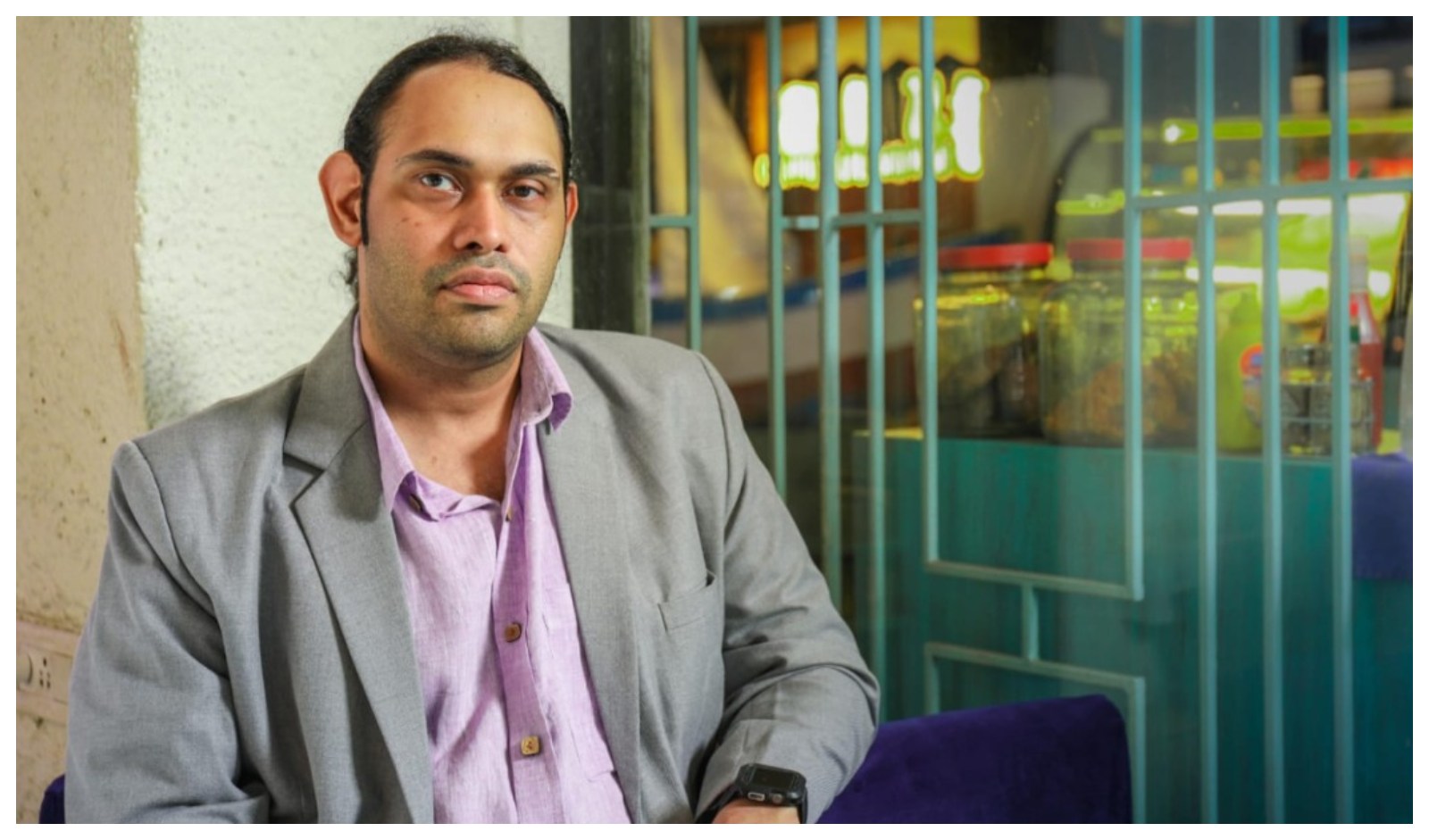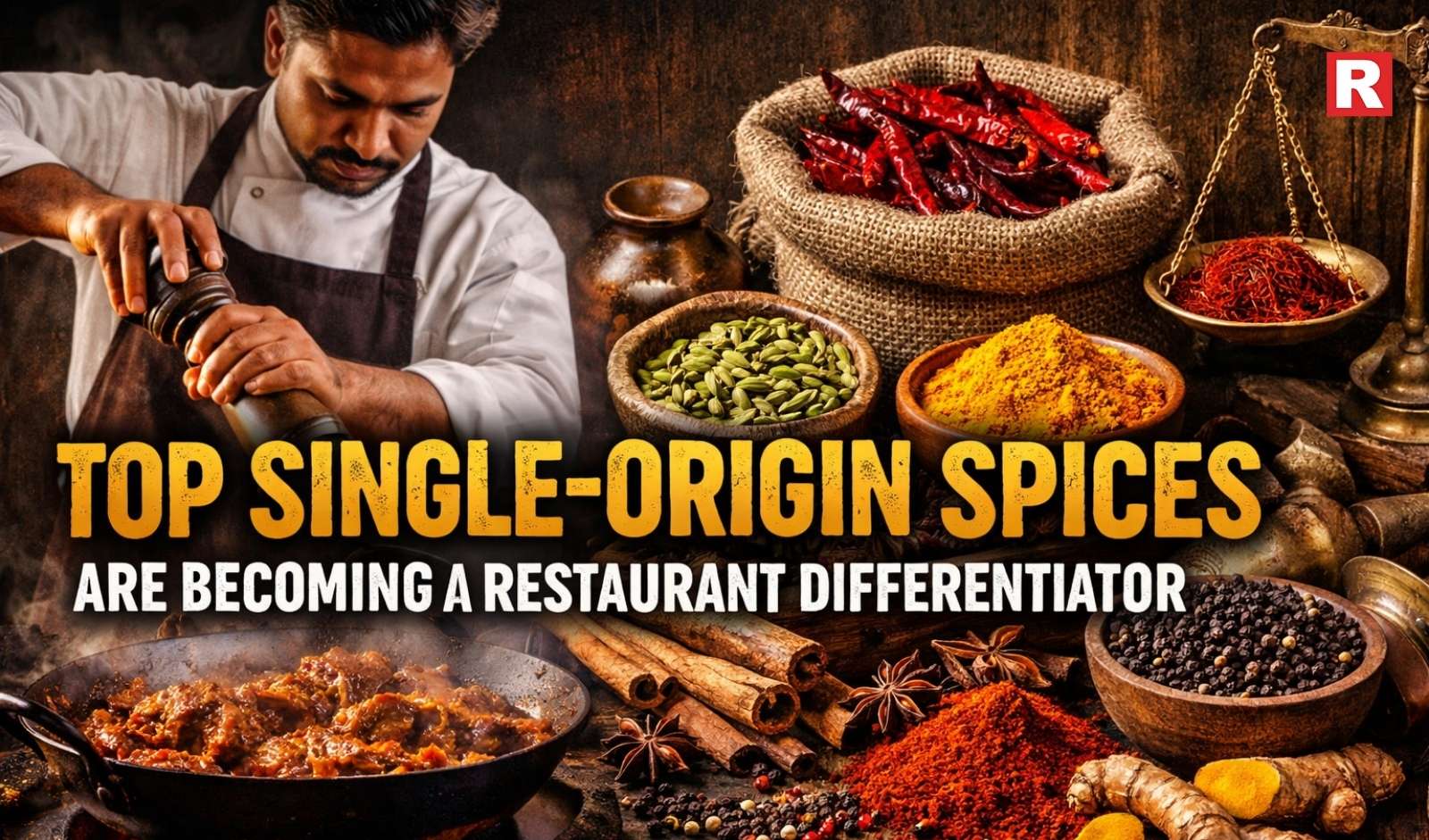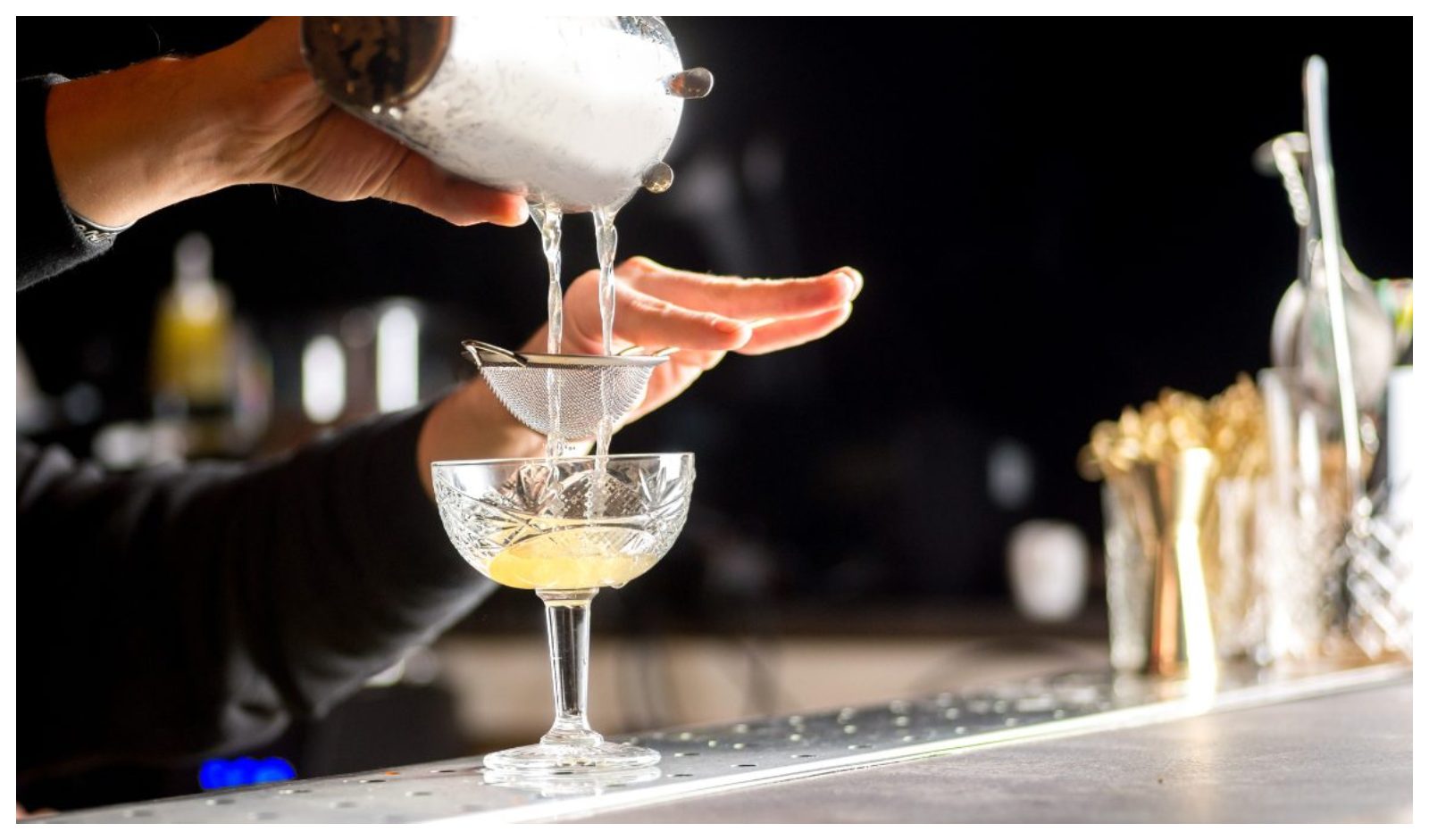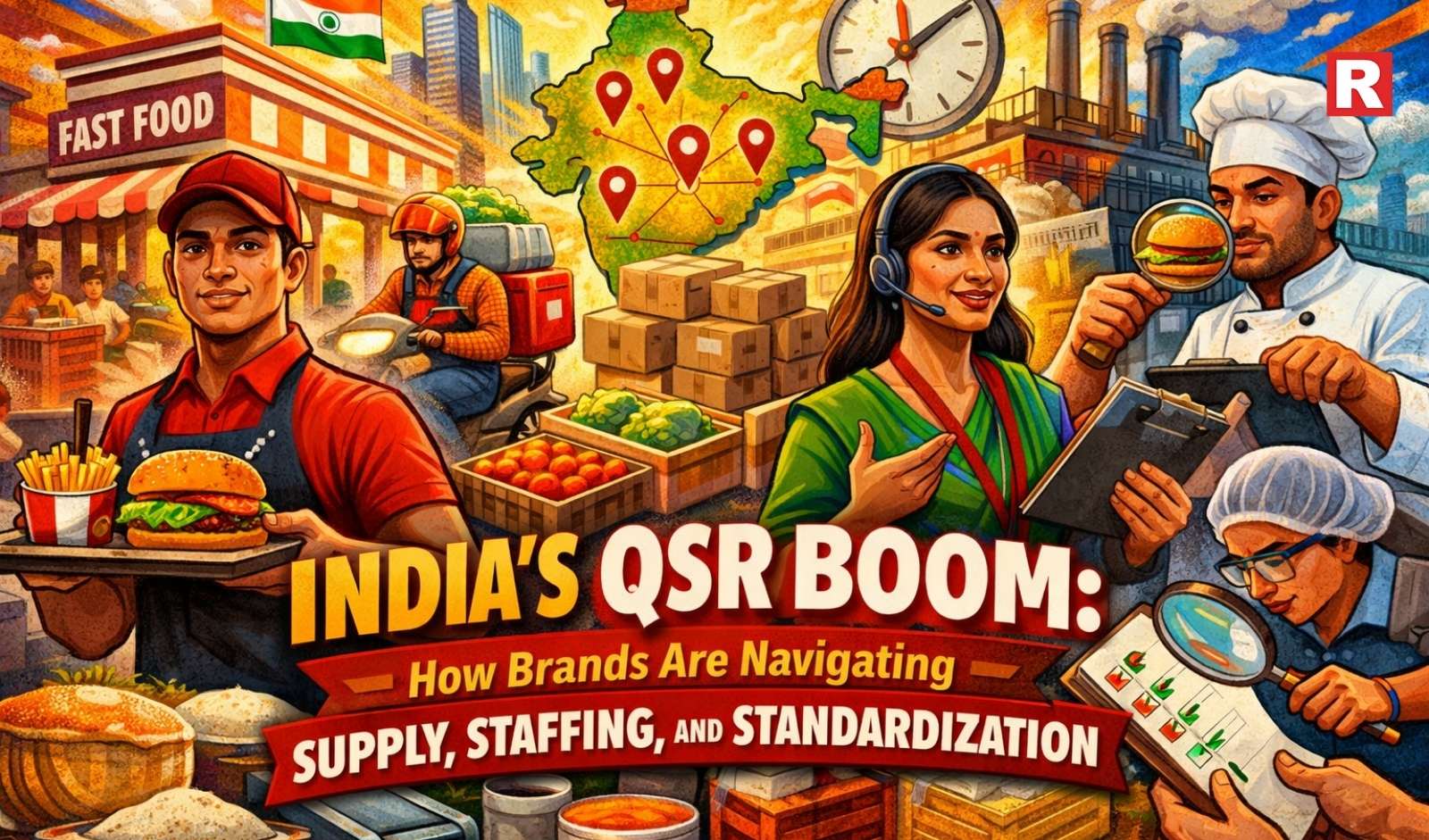
It all started from a hostel room where Sudeep Sabat, COO, Mukunda Foods and Eshwar K Vishwa, CEO, Mukunda Foods would dream of building a McDonald’s of Indian foods just like many aspiring entrepreneurs. That's when they started with their first venture, a QSR, and their customers would love their Dosas and Idlis. It was going all well till they scaled up and opened few outlets. “We could not match the food consistency across the outlets, which affected our customer base. This was our encounter with the market reality of F&B business that scaling is tough, but maintaining consistency and controlling operational costs are tougher,” shared Vishwas by adding that the incident made the engineers in them awakened, and that’s when they started working on a solution to it. “Finally, we came up with World's first fully automatic Dosa-making machine, and we decided to be a catalyst in the making of McDonald’s of Indian Foods,” he pointed proudly. Read more about his story:
Overcoming the challenges faced
It starts with the basic question of the challenges faced by F&B business, then the research and development take around a year or a little more than that before we finally get these products in the market. For instance, be it a cloud kitchen & QSR, they struggle with perfect cooking of Rotis, Parathas, Kulchas; therefore, there is a need for a solution that cooks these items more efficiently and quickly. Our latest product E-Pan bridges this gap, and it comes with an intelligent system for puffing, requiring minimum human intervention. In addition to this, With F&B businesses back-ending their flatbreads, Patties, and Parathas into frozen food, E-Pan helps them serve these frozen items that taste like freshly cooked food items.
Driving the automation quotient
So far, Restaurants use to thrive on social gatherings, but pandemics changed how it works. As a result, we can see the shift from dine-in to delivery, and the customers seem to be happy with this change. However, the delivery model also comes with its own set of challenges like aggregators would hardly give you 10-15 mins for meal prep, which puts an additional load on your staff, and you might require hiring skilled staff. Maintaining food consistency also becomes another concern with a high dependency on human intervention. This is where Mukunda's automation solutions help them address these concerns and smoothen their operations.
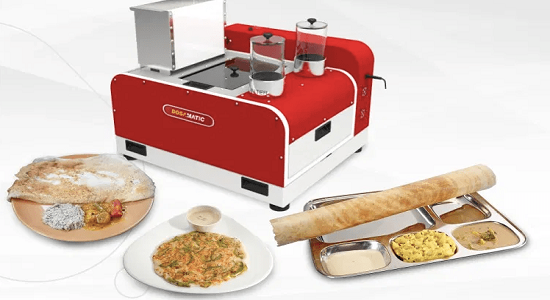
We have automated 14+ processes that can help restaurants maintain consistency, reduce dependency on skilled labor and gain operational efficiency. Here are our four most celebrated products:
Wokie: A fully automated cooking station for Asian and Wok-based recipes.
Eco-Fryer: Automatic fryer for perfect crispiness and frying that also helps save oil and energy.
E-Pan: Makes wraps, Parathas, flatbreads effortlessly with its intelligent puffing system.
Dosamatic: Easy to operate machine that pulls of the absolute crispiness and flavors of a dosa.
Who are some of your clients? Are there any revenue-sharing fees or something?
We have clients from a different set of F&B businesses like Cloud Kitchen, QSR, Hotels, Corporates, etc., and to name some of them, we have Rebel Foods, JFL, Chayoos, Swiggy, Ola Foods, and ITC. Our standard revenue model is pretty simple, where every product has a fixed cost attached that the clients pay while purchasing the machine. However, while launching our latest product, i.e., Combi-Oven, we got a common suggestion from the market of having a rental model. This product tops the list of essentials for commercial kitchens, but the upfront CAPEX investment becomes a concern for QSRs and small business owners. Therefore, we have come up with a rental model that works well for the clients.
It is believed that with tech playing an important role, centralized data plays an important role in making business more automated. Why so? And, how are you helping with the same?
The centralized data and IOT help automations work at their best of capabilities and give decision-makers a lot more control over their businesses. At Mukunda, our machines are IOT enabled, so clients will have full control over setting up the recipes based on their Sops, and they can also modify it from the central location whenever they want. They also get to see a daily report like which are the highest selling food item all the locations, which are preferred in specific locations and these kinds of insights help them make decisions. To put it in simple words, the client will have control over wherever the machines are installed.
This helps them achieve consistency, and their staff can also multitask as the machines follow the sops anyway.
How have you made machines automated for cuisines? How much time did it take in research and development?
Our domestic kitchens have different cookware set for different kinds of cuisines as it largely impacts the final food. The same logic goes with commercial kitchens; most of the time, challenges faced by them are cuisine-specific. For example, tossing Chinese food might not sound like a tedious job, but it requires skilled labor, and the attrition rate is too high in the F&B services business. Wokie from Mukunda is a solution to these challenges, and it can cook any toss-based recipes as per the standard Sops. Similarly, Eco-Fryers solves the problem of under and over-frying fried items. Ideally, the research and development take around a year, including market validation and product trial at actual commercial kitchens.
Going with the trend
India took a comparatively little longer to adapt, whereas countries like Australia, Canada, and United States were more open. However, Indian Restaurants became more receptive to technological advancements in a post-Covid situation since there was a concern of skilled staff and labor because of the migration. In addition to this, hygiene and safety became a priority, and Kitchen automation solutions could easily bridge these gaps. To put it in context, Mukunda signed up three times of customers compared to FY 2018-2019. So, I would say kitchen automation emerged as a stronger player during the Pandemic in India and is expected to get stronger in the coming times.
What's your global presence? What's the expansion plan?
So far, we have helped automate 2000+kitchens across 22 countries, but we haven't made conscious efforts to penetrate the international market. There is a fairly decent demand for automated kitchen equipment for Asian Foods in Australia, Canada, United States, and the UK. There is also a demand for solutions that are more functionally and operationally efficient than aesthetically. So, with nine amazing products in our kitty, our focus will be to penetrate these markets as we are finalizing some global distribution partners.

With extensive experience in scaling Korean food brands across global markets — including the Middle East, Seung Hoon Lee (Sean Lee), Founder of Seoul Dak, has been instrumental in taking authentic Korean cuisine to international audiences. Now, he is channeling that expertise into building Seoul Dak as a global brand rooted in real Korean flavours, starting with India. In an exclusive conversation with Restaurant India, Lee speaks about the brand’s vision, expansion strategy, authenticity, and more. Excerpts:
What inspired you to start Seoul Dak, and why did you choose the Indian market?
When I first visited Mumbai in 2022, I noticed many restaurants claiming to serve Korean food. By my second visit, Korean menus and instant noodles were everywhere, yet the flavours felt far from authentic. That gap sparked the idea behind Seoul Dak.
India was clearly embracing Korean culture through music and dramas, but I felt consumers hadn’t yet experienced real Korean flavours. Fried chicken became our entry point because it’s universally loved and one of Korea’s most iconic dishes.
When did you launch the brand, and how was the initial response?
We launched our first store in January 2025 inside Food Square in Mumbai. The response was explosive from day one. Over the last 12 months, we’ve expanded to Bandra, opened two outlets in Pune and one in Bengaluru. It’s been a hectic but exciting journey.
As you expand, how do you cater to diverse Indian taste preferences?
Authenticity is non-negotiable for us. We don’t alter the DNA of Korean flavours, even though many suggest we should “Indianise” the menu. The only adjustment we’ve made is increasing the spice level slightly to match India’s higher heat tolerance — without changing the core flavour.
Instead of changing recipes, we adapt by carefully selecting menu items that Indian consumers can connect with. For example, seaweed is extremely popular in Korea, but it didn’t resonate strongly here, so we removed it.
What does the name Seoul Dak represent?
“Dak” means chicken in Korean, and Seoul is the capital of Korea. The name immediately signals that we are a Korean brand. Even if someone isn’t deeply familiar with Korean cuisine, seeing “Seoul” helps them connect the dots.
What differentiates Seoul Dak from other Korean brands in India?
Ingredients matter. Even if it’s the same chilli, Korean chilli tastes very different from Indian chilli. We import our sauces and spices directly from Korea and source only the chicken locally. That ensures authenticity at the core — and that’s where we stand apart.
Has the brand identity resonated with Indian consumers?
Yes, absolutely. Even people who haven’t tried us recognise us as a Korean brand. I’ve personally heard people say, “I’ve seen that Korean restaurant in Bandra — I want to try it.” That recognition itself is a strong sign.
How important is consistency while scaling a QSR brand?
Consistency is everything. We chose the QSR format to make Korean food affordable and accessible. We centralise sourcing in Mumbai, process ingredients at our Pune facility and control distribution internally. Extensive staff training ensures that the experience remains the same across cities.
What were some of the biggest operational challenges?
I wasn’t familiar with the Indian market, so everything — from real estate to hiring — was a learning curve. Finding managers who align with our culture was tough. Training is ongoing, but we are building a strong Seoul Dak culture that reflects what it means to be part of the brand.
How important is storytelling for the brand?
My primary job is to deliver real Korean flavours. But storytelling has become important to educate consumers, especially when many brands misrepresent what Korean food actually is. We want people to understand what authentic Korean flavours truly taste like.
How has consumer perception of Korean cuisine evolved in India?
Korean flavours are now everywhere — in malls and on quick-commerce platforms. Interestingly, many consumers are choosing imported Korean noodles over Indian-made “Korean-style” versions. That shows a growing demand for authenticity.
Who is your target audience, and what about pricing?
While many of our customers are young and socially active, our real target is all of India — from students to families, aunties to grandmas. Our pricing is consistent across cities to maintain clarity and accessibility.
Has K-drama and K-pop influenced this trend?
Absolutely. It’s a global K-culture movement. Through music, dramas and food, people experience what it’s like to be Korean — and food plays a big role in that.
What role will delivery and cloud kitchens play?
We haven’t started delivery yet. For now, we’re focused on dine-in to ensure quality and authenticity. We plan to launch delivery later this year once we’re confident that we can maintain the experience.
What are your expansion plans?
We aim to reach 25 outlets by the end of this year and 50 by next year. All outlets are company-owned and bootstrapped because maintaining authenticity is difficult in a franchise model.
Long term, we want to be present across India and are also exploring markets like Dubai and Saudi Arabia.

After earning his Hotel Management diploma from IHM Hyderabad, Kush Kapoor began his journey at the very grassroots of hospitality—as a room boy at The Trident Udaipur and Trident Cochin. It was here, on the hotel floors rather than in boardrooms, that he developed a deep understanding of service, discipline, and the finer nuances of luxury hospitality. Over the next 23 years, Kapoor steadily rose through the ranks, shaping his leadership style across some of India’s most iconic hotel brands, including The Oberoi Group, The Taj Group, and The Leela Group. Each role added to his perspective on operational excellence, brand building, and guest experience.
His entrepreneurial vision culminated in the launch of Roseate Hotels & Resorts in India—a brand that has since carved a niche in the country’s luxury hospitality landscape. Today, as CEO, Kapoor leads the group with a strong focus on innovation, expansion, employee engagement, and sustainability.
In an exclusive conversation with Restaurant India, Kapoor reflects on his remarkable journey from the hotel floor to the corner office, sharing insights into leadership, growth strategies, and the evolving future of luxury hospitality. Excerpts:
The Roseate is positioned as a niche luxury brand. How do you define “luxury” today?
Luxury means different things to different people. In hospitality, I believe luxury is about delivering genuine value to the guest. If you are able to provide meaningful returns on what a customer invests in you—whether through service, comfort, or experience that is true luxury.
What is your long-term vision for The Roseate Hotels & Resorts in India and globally?
From the beginning, we were clear that we did not want aggressive expansion. We prefer to remain a mid-sized luxury brand, growing steadily while maintaining exclusivity and uniqueness.
Currently, we own and operate eight five-star luxury hotels across India and the UK. We are in discussions to expand in Dubai and parts of Europe, adding 2-3 hotels annually. Beyond hotels, we are expanding into Ayurvedic spas outside hotel properties and launching experiential mithai boutiques. Every new venture undergoes extensive R&D to ensure long-term uniqueness. The Indian market today is mature and ready to invest in luxury experiences.
How do you balance luxury with changing guest expectations around value, sustainability, and personalisation?
Technology plays a major role but we design it according to our needs. Our proprietary apps and systems are exclusive to Roseate. We use AI-generated calls and structured feedback systems aligned with our brand standards.
Importantly, we do not view technology as a replacement for people. Instead, it is a tool that empowers our teams to spend more time engaging meaningfully with guests. By developing our own systems in-house, we remain agile and can quickly adapt to evolving guest expectations.
How do you evaluate new destinations before entering?
Location is always our first priority. We are currently exploring expansion in key metros like Mumbai and Bengaluru, as well as major pilgrimage destinations such as Ayodhya, Varanasi, and Tirupati. We are open to partnerships in these markets but only with the right collaborators who align with our brand philosophy.
How do you balance cost optimization by maintaining luxury standards and supporting employee welfare within your organisation?
We maintain costs at an optimal level without compromising guest satisfaction or employee well-being. In luxury hospitality, every detail from service to food quality must remain exceptional. For example, we allow employees to purchase groceries once a week from the same vendors who supply to our hotels. They receive premium-quality products at significantly lower prices, helping them save 30–40% monthly on groceries. This initiative supports employee welfare while maintaining supplier consistency.
Roseate has introduced innovative employee engagement initiatives. Could you elaborate?
Employee retention has been a priority. We ensure work-life balance, for example, female employees are not assigned late-night shifts. We provide 24x7 pick-and-drop facilities for employees living beyond a 20 km radius. Work hours are strictly monitored to ensure no one works beyond 9–10 hours a day. This is tracked digitally and considered during appraisals. Training is conducted online, supported by a mobile HRMS system. Feedback mechanisms ensure responses within 24 working hours.
We also conduct a monthly three-day ‘Happiness Program’ in collaboration with Art of Living for 25–30 employees at a time, focusing on emotional well-being.
What kind of leadership culture are you building within the organisation?
We foster an open culture—no personal cabins for senior management, and employees can approach leadership anytime. Our philosophy centers on the three E’s: Emotions, Experience, and Education, guiding both staff and guests in evolving hospitality standards.
What trends will shape India’s luxury hospitality sector over the next five years?
Experience and transparency will define the future. Today’s customers are well-travelled and informed. If they are paying for luxury, they expect more than standard service. Hotels must avoid taking customers for granted and should clearly communicate what they can and cannot offer. Transparency builds trust and long-term loyalty.
What advice would you give young professionals aspiring to build long-term careers in luxury hospitality?
This is a golden era for India’s hotel industry. Young professionals should focus on innovation, quality, and creativity. Success cannot be measured by a fixed benchmark. If you can improve even slightly from what you did yesterday, that itself is meaningful progress.

Actor Mona Singh rose to fame with her iconic television role in Jassi Jassi Koi Nahi and has since remained active across television and films. She was last seen in Anurag Singh’s Border 2 (January 2026), Aryan Khan’s directorial debut The Bads of Bollywood (November 2025), Laal Singh Chaddha and Munjya. In 2025, she ventured into hospitality with her Mumbai restaurant Kona Kona, and has now expanded the brand with a second outlet in Andheri.
In an exclusive interview with Vijetha Iyer, Mona Singh speaks about the new launch, expansion plans, the menu and more. Excerpts:
You’ve had a versatile career across TV, films, and OTT. What inspired you to step into the restaurant business with Kona Kona?
My idea was always simple; to feed people. I’ve always loved Indian food in all its diversity and wanted to celebrate it. Opening a restaurant or café had been on my mind for a long time, but the real moment came during a casual conversation with friends who asked if I’d be interested in doing it for real.That felt like the right time and opportunity to step into hospitality and learn along the way. Everything then fell into place organically from the name Kona Kona to the menu. The restaurant is located on a kona, or corner, and the food represents flavours from every kona of India.
Kona Kona is a celebration of food—a friendly neighbourhood bar, a familiar go-to spot where people can come together over nostalgia, music, and comforting meals. In hindsight, it feels like it was always meant to happen.
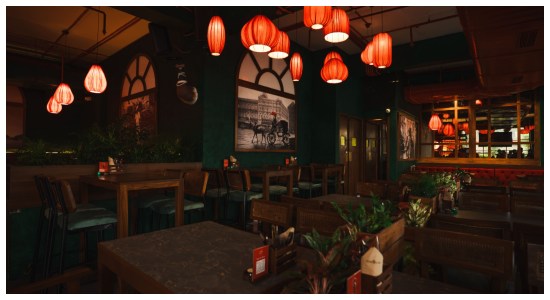
Kona Kona has a distinct vibe. How much of your personality and taste is reflected in the restaurant’s concept and menu?
We wanted the space to feel unmistakably Indian, yet familiar, easy, and welcoming. I’m deeply involved in curating the menu. Having travelled across the country while my father served in the army, food became my way of connecting with different regions. That journey shows up on the menu, which brings together flavours from across India—from Jhol Momos and Himachali Siddu to Punjab ki Chikar Chole, a dish especially close to my heart as it’s my mother’s recipe. We consciously included dishes that feel personal, making the menu a collection of memories rather than just a list of dishes.
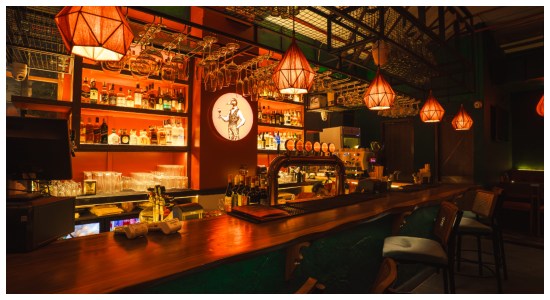
Acting and entrepreneurship are both demanding. What has been the biggest challenge in balancing the two?
I’ve been clear about surrounding myself with the right people to handle the day-to-day operations, as I’m still learning the business side. My role is to support and promote the brand and enjoy the space with friends. When I’m shooting, I can’t be at Kona Kona every day, but I’m never disconnected. Most decisions are discussed and finalised over Zoom, which helps us stay aligned even when I’m not physically present.
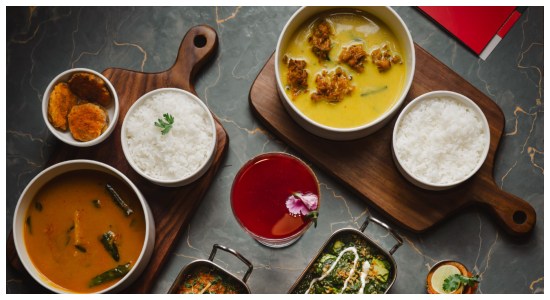
Has being an actor helped you in running a restaurant, whether in branding, storytelling, or connecting with people?
My personality reflects in Kona Kona through both the décor and the menu. Being an actor has also helped with visibility and promotion—friends from the industry, including Farah Khan and Chef Sanjeev Kapoor, were happy to visit, shoot, and support the space. That kind of goodwill and storytelling has definitely helped Kona Kona connect with a wider audience.
Looking ahead, do you see yourself expanding Kona Kona further?
Yes, we’re already expanding—this is our second outlet, and the plan is to keep growing. We want to move beyond Mumbai and eventually take Kona Kona across India and globally through franchise outlets. On the acting front, I’m focused on reinventing myself, taking on new challenges, and staying relevant across films, OTT, and all mediums.
Mumbai has an incredibly competitive food scene. What sets Kona Kona apart?
I think it’s a mix of our service, staff, food, ambience, music, and drinks. Our duck logo reflects the fun concept—there’s a saying, “Drink like a duck.” We also host pop-ups featuring different regional cuisines, with guest chefs showcasing everything from Manipuri to Lucknowi dishes. These pop-ups help us celebrate and promote the diverse flavours of India, even from smaller regions.

With over 24 years in the hospitality industry, Chef Deepak Dandge is the Director of Culinary at Pullman Chennai. He is a graduate of the Institute of Hotel Management (IHM) and has worked with several leading hospitality brands, including Sofitel BKC, Marriott, Taj, Westin, amongst others.
In an exclusive interview with Restaurant India, he talks about his journey, culinary experiences and much more. Excerpts:
Culinary philosophy
Chef Deepak Dandge’s culinary philosophy blends tradition with innovation. Whether learning from highway dhabas near Mumbai during his student days or exploring the science of food through gastronomy books in his spare time, Chef Dandge's approach is grounded in curiosity and authenticity.
“I have worked in different locations till now. But every location has different taste palate and the cuisine they prefer may differ as well. For Eg: In Chennai, every place has their own style of making sambhars and chutneys, the spice level and the ingredients they use differ as well. But if we compare the food we get in South vs North, the taste is completely different, the spices are different,” he said.
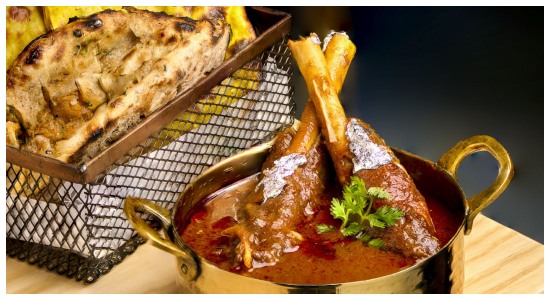
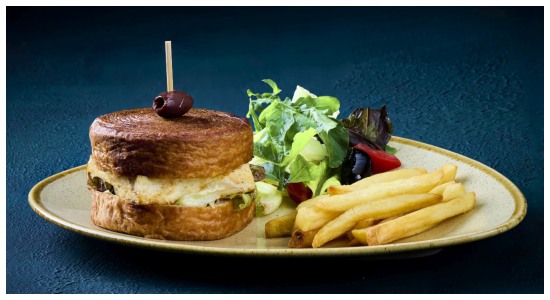
Involvement of 5 senses
The guest experience starts when a guest enters the hotel/ restaurant. What they see, smell, eat, hear and touch, all of them have to be perfectly aligned.
“We have to ensure that the seating arrangement, menu ordering, plating is perfectly taken care of. Food should be eye-catchy and ambience should please them. Guests should be welcomed with warmth, and their preferences have to be taken in consideration with suggestion of more options from the server/chef’s end,” added Chef Dandge.
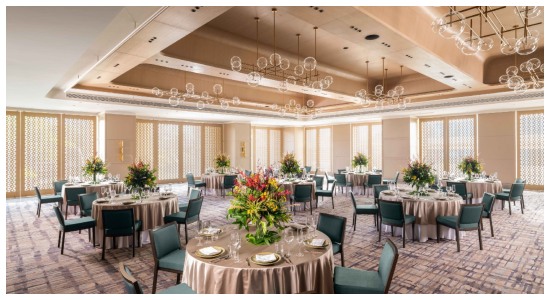
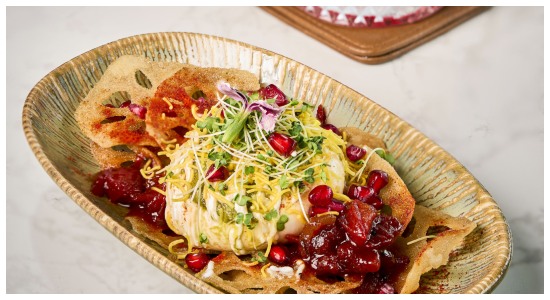
Training/staffing
Training, staffing and retention are one of the major challenges in the industry. If there is a room to grow, then staff stays, otherwise they tend to leave for more growth opportunities.
“Growth eventually slows, so people may switch roles to grow faster. It’s important to talk to your staff, understand what they want, and recognize the opportunities they’re getting. The right knowledge helps you grow in life,” said Chef Dandge.
Menu development
Innovation plays a major role, and guests need consistency in what they eat. While catering to various cuisines, authenticity and consistency matters.
“The most important thing is selection of your team as I believe that they make it or break it. You need to train them about your expectations,” he added by pointing that for menu development, what helps for longer run is storytelling and understanding about what to focus and what not to.
Optimizing food-costs
If you are wisely using any product, then the food cost can be controlled. But it should not hamper the quality you serve to the guests. “We have ‘Control Policy of Wastage’ and we have a machine which we use to see how much wastage is there. This helps in identifying the waste and to reduce them. It is chef’s duty to control the wastage and how he guides his staff to curb them,” mentioned Chef Dandge.
One need to understand the cooking style for buffets, kitchen and for various occasions. If you can control the costs, then you can elevate the experience in buffets as well.
Preparing team for high-volume events
“We have different kitchens for restaurant and banqueting. We also get chefs from outside to cater to bigger events. The team should know the quality of food you serve,” he added as for him preparation is a must for any event.
Rise of Regional cuisine
Regional cuisine is the key. It’s all about how you cook the South-Indian food and how you cater them. For Eg: Biryanis in south is pretty different from what you consume in other locations. The spice-level, ingredient differs a lot. Guests are curious to know about the authenticity of the dish and want to learn about the story behind it.
Dining Trends
• Focusing on guest preferences is important
• Innovation in Chaat items
• Health cuisine, buffets are trending
• Zero-waste, in-house sourcing, options in small portions menu are more.

Started by Zaid Haroon Sait in March 2018, Zed The Baker was born out of the idea of creating a premium artisan bakery that delivers high-quality, preservative-free baked goods to Indian consumers. What began as a single boutique bakery-café in Bengaluru quickly resonated with customers, paving the way for steady expansion across the city.
This success was followed by the launch of Le Melt last year, a brand that celebrates indulgence and innovation, and the upcoming debut of Le Chocolat, set to open in Bengaluru later this year. Today, under the umbrella of Advanced Baking Concepts Pvt. Ltd., Zaid leads a growing portfolio of brands, with Zed The Baker expanding into a chain of over 14 outlets in Bengaluru, redefining the city’s artisan baking landscape. Excerpts:
What is the core concept behind Zed The Baker?
The brand is built on authenticity, from-scratch baking. We focus on craftsmanship, consistency, and high-quality ingredients—areas we felt were missing in the premium bakery space. By combining artisanal techniques with tech-driven processes, we’ve created a brand that delivers freshness and quality at scale.The key difference lies in our approach. We use better ingredients, follow strong SOPs, and rely on technique rather than shortcuts. While traditional bakeries focus on volume, we focus on clean labels, slow fermentations, and natural flavours.
Was scalability part of the plan from the beginning?
Yes, absolutely. The concept was designed to scale from day one. We operate with a central kitchen that supports multiple outlets. Along with retail cafés and café-restaurants, we also work in the B2B space, supplying premium hotels and offering catering services.
Why did you decide to reduce the menu size so significantly?
Maintaining quality and consistency across a very large menu is challenging. We reduced our offerings from 384 SKUs in 2018 to 87 today, with a goal of reaching 40 SKUs by April 2026. A focused menu allows us to perfect best-sellers and scale more efficiently.
What kind of experience do your cafés offer?
Zed The Baker operates as a European-style café. Each outlet offers an experiential dining journey inspired by different parts of Europe. Innovation is central to our identity, and once the menu reaches its optimal size, we plan to introduce monthly special menus curated with international chefs. For us creativity must have a purpose. Every idea should enhance flavour and improve the customer experience. We’re a product-oriented business, so creativity is meaningful only when it adds value, especially in dine-in formats.
How have consumer preferences influenced the brand?
Indian consumers today are well-travelled and increasingly quality-conscious. They value experience as much as the product. Our philosophy is simple—let the ingredients and technique speak for themselves. Our pricing ranges from ₹80 to ₹300, making premium baking accessible to a wide audience.
How do you engage with customers and gather feedback?
We’re a tech-driven company with a loyalty program called Relo. We’re also launching a one-year membership priced under ₹2,000. Members will get exclusive access to tastings of new products, and their feedback helps us decide what stays on the menu and how it evolves.
What challenges has the brand faced?
Skilled labour is one of the biggest challenges in the industry. We address this through detailed SOPs and semi-automation. Another challenge was maintaining consistency across a large menu, which led to our decision to streamline SKUs.
What’s your expansion plans?
We plan to open 50 Zed The Baker outlets by 2027, along with 10 Le Melt ice cream cafés and five Le Chocolat outlets. We’re also exploring international expansion in London, Saudi Arabia, and Dubai, and will open 10 more outlets in Bengaluru by the end of this year.

Chef and food influencer Kriti Dhiman who was last seen in MasterChef India Season 8, has recently opened her restaurant ‘Namma’ a modern celebration of the iconic Benne Dosa in Chandigarh. What began as a personal passion has today evolved into Namma, a South Indian restaurant rooted in comfort, authenticity and family. In an exclusive conversation with RestaurantIndia, Kriti Dhiman, Founder of Namma talks about her journey, new restaurant and much more.
The Philosophy: Simple Food, Deep Comfort
The cooking philosophy is simplicity. Food does not need unnecessary drama, it needs honesty. At Namma, the idea is straightforward: the food should speak for itself, feel comforting, and taste unmistakably good.
“The name Namma, meaning “ours,” reflects the deeply personal nature of the journey,” shared Dhiman whose family has been involved at every stage of building the brand, making the restaurant a shared dream rather than a solo pursuit. “Every dish aims to recreate the warmth of ‘ghar ka khaana’ food that comforts the gut as much as the heart. We want people to come back again by giving good quality food and by maintaining consistency,” she added.
Focusing on the menu, she added, “The menu focuses primarily on South Indian cuisine, with a special emphasis on Benne Dosas.” She also added that the team is constantly exploring ways to strike a better balance between indulgence and health, without compromising taste.
Rethinking Authenticity
Authenticity is not rigid. South Indian food itself changes every few kilometers in each state, region and household as each one of them have their own version. Authenticity, therefore, is less about fixed recipes and more about the comfort food provides.
“If the food brings the same warmth and satisfaction, small changes in technique or flavour are acceptable and that belief allows room for evolution while staying emotionally rooted in tradition,” mentioned Dhiman who launched Namma, seeing a clear gap in markets like Chandigarh, Delhi.
Balancing Flavours, Textures and Presentation
Presentation at Namma remains deliberately minimal. “Textures should feel right with every bite and flavours should complement rather than compete and ingredients must be handled with care,” she pointed.
Menu Planning, Sourcing and Consistency
Running a small restaurant has taught the power of focus. “Instead of an overwhelming menu, Namma keep things tight and intentional. A shorter menu ensures better quality control and less confusion for guests.All masalas are prepared in-house.
“Ingredients are sourced locally wherever possible, while certain essentials are brought in from the South to maintain authenticity. The chef personally monitors quality, fully aware that inconsistency is one of the biggest reasons restaurants fail,” Dhiman mentioned.
Three key trends
• Sustainability
• Small plates
• Conscious reduction of food waste
Wearing Two Hats: Chef and Influencer
Balancing life as a restaurateur and a chef-influencer comes with its own learning curve. While in the online platform, the audience is largely young students and first-time cooks who are curious about recipes and techniques. At the restaurant, the demographic spans all age groups. Dhiman mentioned that real-world guest interaction is irreplaceable. Conversations with diners help fine-tune dishes and menus in ways social media never can.
The Challenges
The biggest challenge in opening Namma has been building the right team. “Hiring, training and trusting people required the chef to unlearn habits and let go of complete control. Another major shift was moving from a health-focused approach to fully embracing a cuisine known for indulgence,” shared Dhiman.
Signature Creations with Familiar Roots
Innovation at Namma often begins with familiarity. Two standout dishes reflect this approach:
Garlic Dosa – Inspired by the universal love for garlic naan, this dosa bridges comfort across cuisines while retaining its South Indian soul.
Mushroom Truffle Dosa – Created out of a personal love for mushrooms, this dish brings depth, aroma and indulgence together without overpowering the dosa itself.
Advise for aspiring chef entrepreneurs
To aspiring chefs dreaming of opening their own restaurant, the advice is clear: start small, keep your menu focused, never compromise on quality, be ready to unlearn and adapt.

Dushyant Singh’s entry into the food and beverage world was neither planned nor guided by formal hospitality training. He entered in hospitality back in 2018 and today he runs four brands with 8 outlets that includes OTH, Rustic, Llama and Coffee Sutra in Jaipur.
“I’m not a trained staff, nor have I done hotel management,” he said. What he dreamt was a doing something meaningful in his own city. Fifteen years ago, this ambition led him to start his journey in F&B.
“In 2013, after running a joint venture with a friend, I launched my first independent restaurant: OTH, an all-day American diner that became one of Jaipur’s most iconic dining destinations,” he remembered as it introduced Jaipur to its very first standalone breakfast culture. Until then, breakfast was a five-star affair. From that first milestone, Singh expanded with a mix of cuisines and concepts: Excerpts:
The Birth of Coffee Sutra: A 360-Degree Coffee Company
It was during his global culinary explorations that he realized coffee was evolving into a lifestyle product worldwide not just a beverage. Although his restaurants served coffee, none of them were coffee-first concepts. That gap fuelled the creation of Coffee Sutra, envisioned as a full-circle coffee ecosystem with in-house coffee roaster, B2B and D2C coffee bean supply and hotel consultancy related to coffee operations. “We pick our beans directly from farms, roast them, train our baristas, and run our cafés. It’s a 360-degree model,” he shared smiling.
Why Jaipur?
“I’m a Jaipurite. And there’s no city as charming as Jaipur,” he shared as he believed Jaipur is a rare blend of heritage, modern aspiration, and well-travelled consumers. With lower rentals yet similar business potential compared to metros, Jaipur offers the perfect ground for experimentation and growth. When Coffee Sutra was launched, Jaipur was predominantly a tea-consuming city. But Singh witnessed firsthand how India’s palate was shifting.Tier 2 cities, especially, began embracing coffee as more than a drink, it became a social catalyst. From corporate meetings to college hangouts, coffee now bridged the gap between work, leisure and community moments.“Coffee is a reason for people to come out and connect,” he added.
Dine-in Over Delivery
While many brands chase delivery revenues, Singh shared, “I believe in creating experiences, and experiences cannot be created in delivery.”
Across his brands, 80% of business comes from dine-in, and he plans to keep it that way. Delivery is available, but never the priority.
Customer at the Centre
Over a decade, Singh’s restaurants have built a loyal community what he calls a tribe. These are customers who trust his food, hospitality, and brand ethos.“When we launch a new concept, our tribe is already waiting. This deep-rooted trust fuels every expansion and experiment,” he proudly mentioned.
What Sets Coffee Sutra Apart
Singh acknowledges that many brands serve great coffee. But Coffee Sutra differentiates itself through farm-level sourcing, in-house roasting, deep training and education for baristas, homemade desserts created to pair with coffee and warm, inclusive community-driven space. “We make sure we know exactly what we’re serving. The customer today is very educated,” he said. Every year, Singh’s team travels to Karnataka during the harvest season to inspect farms personally.
“Everything begins at the farm,” he emphasized. From picking the right beans to roasting and barista training, authenticity is a step-by-step commitment.
Expansion Plans
With Jaipur largely saturated, Singh is ready for the next chapter. “We will be opening Coffee Sutra café in Delhi (early next year). We are also exploring markets like Udaipur, Jodhpur, Ahmedabad, and beyond. Tier 1 is saturated. Tier 2 is booming,” he commented.

Narayan Poojari’s story didn’t begin with a business plan or an investor deck. It began with a small kitchen, a big dream, and a simple promise to feed his customers with love, honesty, warmth, and care. That was the entire business model. “One day, a customer walked up to me and said, “Why don’t you start pav bhaji? I want to eat it here. I smiled and said, let’s do it,” shared Poojari who has created a legacy with Shiv Sagar ruling hearts of Mumbaikars and Indians for its lip-smacking pav bhaji.
“I was running an ice cream parlour then, but I had spent 13 years working in canteens and hotels. I knew pav bhaji. I knew flavours. And I knew customers,” he shared as he worked on the dish, experimented, and worked day and night until he perfected it. “That pav bhaji counter changed the direction of my life. From there came South Indian, Mexican, North Indian, Italian, each cuisine opening a new door,” he smiled.
There are questions we ask the world, and then there are questions we ask ourselves.
“For me, the most important one has always been: How do you scale a brand without losing its soul?,” he shared.
From a Small Shop to a Big Vision
Poojari started his dream project at a small shop in 1999. A year later, he knew it was time to scale. “My mentor and partner, Mr. Bhagubhai Patel, stood by me, and together we opened our second outlet—right opposite The Dream Restaurant at Churchgate,” he proudly shared as he is now thinking to take the brand on the global stage.
For him, this business was about manifestation, consistency, and a bit of stubbornness. As a 13-year-old working in a canteen and attending night school, he would walk past that restaurant every night, whispering to himself about opening one like it someday.
Today, Shiv Sagar Group has evolved into multiple brands across multiple cities. Every concept is different, but the heart is the same. Indian hospitality- the guests.
Learning from Each Concepts
Every brand has its own journey, its own personality, its own lessons. “I have learned something or the other from each brand. And every concept has a completely different journey. It comes with its own thinking,” he shared as Shiv Sagar taught him discipline, recipe, and identity. Mahesh Lunch Home, where he is one of the partners, taught him to respect the sea—its freshness, its tradition. At Butterfly High, built together with his daughters Nikita and Ankita, taught him the joy of building as a family and of course, the newest baby, Kyma, the café-and-bar concept, taught him how the next generation thinks.
“We never chased numbers. We chased experiences as scaling, for me, is not a race. It is like cooking a biryani—slow flame, patience, and soul,” he smiled as he took Kyma and Butterfly to other markets like Hyderabad where both the daughters spent their time at the college.
The Real Secret of Scaling
Young entrepreneurs often ask: “How do we scale fast?,” he laughed by adding that he always tell them, scaling is easy, maintaining the scale is the real challenge. Every single day, the same warmth, the same taste, the same discipline—that is the real test.
People think consistency means control. But consistency doesn’t come from control. Consistency comes from care. And part of care is hygiene. “I tell my team to keep the place clean as if your family is coming for a feast.” But at the heart of it all a restaurant’s real product is not food. It is people. “Our chefs, our managers, our servers are the heartbeat of the brand. Guests might forget the dish they ate. But they will never forget how they made them feel,” he mentioned.
A long-Lived Legacy
After 35 years in this industry, I want to share four truths- Consistency is more important than creativity, don’t chase trends as trends fade but trust remains and never scale a problem—fix it first. Always, treat staff like family, but don’t turn the business into family drama. And, the biggest secret ingredient is presence as the brand grows based on what the owner sees on the floor and in the kitchen. “And our mission is simple to take Indian flavours and Indian hospitality across the world. We don’t want to export only food. We want to export Indian warmth. Our aim is to build a legacy of taste, tradition, and heart—one that travels across continents,” he concluded proudly.

For Chef Nikhil Nagpal, the story of taste began long before he donned his first chef’s coat. Growing up in an army family, his father’s postings across the length and breadth of India became an education in geography, culture — and most importantly — flavour. “Travelling around the country helped me train my taste buds to admire varied cuisines and flavours,” he recalls. “The disciplined lifestyle instilled punctuality, perseverance, and the ability to handle pressure with calm and composure.”
Where Rhythm Meets Cuisine
Avartana is a rhythm, iteration, mysticism. For Nagpal, it’s more than a name; it’s the philosophy behind every plate. “Each dish at Avartana is unique,” he explains. “The flow of dishes across the menu is designed like a symphony — an interplay of flavours, textures, and playful elements that create a seamless multi-course experience.” Each course is deliberate yet dynamic, much like the recurring cycles of music the name evokes — every repetition revealing a new nuance.
Innovation Anchored in Tradition
In a culinary era obsessed with novelty, Avartana stands apart by reimagining, not reinventing, tradition. Nagpal’s creative process begins not with imported truffles or liquid nitrogen, but with the local soil. “The ethos of Avartana has always been to keep the flavours and ingredients rooted to the southern Indian peninsula,” he says. “The selection of regional ingredients is the key first step in creating any dish.”
What follows is the transformation — traditional tastes elevated through international techniques, refined plating, and inventive textures.
Balancing Indulgence and Intention
In an age where diners seek both satisfaction and sensibility, Avartana’s multi-course menus are engineered for precision — portion, cost, and conscience. “Over the years, calculated estimates combined with intelligent culinary insights have helped us balance costs, guest expectations, and food waste,” says Nagpal.
Sourcing the Soul of the South
Avartana’s commitment to authenticity runs so deep that even basic ingredients like tamarind or pepper are sometimes transported to other Avartana outlets to maintain consistency. “Each ingredient is carefully sourced from trusted and reputed partners who undergo stringent checks,” Nagpal explains. “Once approved, that quality is maintained through the year for consistency.”
Sustainability: Beyond the Kitchen
At Avartana, sustainability is not a buzzword — it’s a business model. From intelligent water and energy management to waste segregation and local sourcing, ITC Hotels’ green philosophy shapes every decision. “Seasonality and regional biodiversity play a huge role,” Nagpal affirms. “We ensure efficient use of water and energy, minimal food waste, and support for local ecosystems — all of which align with ITC’s broader sustainability commitments.”
The Tightrope of Innovation
For an award-winning chef, the challenge is constant: how far can you push creativity without losing cultural authenticity? “The menus stay grounded to Avartana’s initial ethos — rooted in South Indian ingredients and flavours, yet presented in a modern avatar using global techniques,” he says and that’s why an Avartana experience feels futuristic without being foreign. The innovation is in the details — in a familiar flavour presented with unexpected elegance.
Scaling a Standard of Excellence
With Avartana expanding beyond Chennai, maintaining consistency is both art and strategy. Nagpal reveals that the process begins with people. “Every new Avartana team trains extensively at Chennai before opening elsewhere,” he says. “Detailed checks and balances ensure uniformity in cuisine and service. Even the décor — colours and design elements inspired by the region — maintains a familiar rhythm across cities.”
A Universal Palate
From Chennai to France, Nagpal has noticed one reassuring truth: good flavour transcends borders. “Today’s diners are well-travelled and open-minded,” he notes. “The food at Avartana is universal — relatable to locals and revelatory to international guests.”
Culinary Consciousness and Future Dreams
Health-conscious dining is another frontier Avartana is already addressing. “Our menus display dietary indicators with approximate calorie values, helping guests make informed choices,” Nagpal says. And what lies ahead for him personally? His answer is grounded and characteristic: “Avartana is about consistent efforts — the hero has always been the food and will always remain.” As for inspiration, it comes from everywhere — books, travel, art — but most of all, from the collective energy of his team. “We share ideas and inspirations constantly. That collaboration keeps creativity alive.”
In Sanskrit, Avartana means repetition — not redundancy, but refinement. For Chef Nikhil Nagpal, every service, every dish, every day is another iteration in pursuit of perfection. The rhythm continues — disciplined, inspired, and deeply, deliciously Indian.

From its modest beginning, Hatti Kaapi has expanded into a 110-outlet network across India and overseas, including its first international store in London. The timing aligns with a broader consumer shift: India’s domestic coffee consumption touched approximately 91,000 tonnes in 2023, and the café market, valued at USD 380.8 million in 2024, continues to grow at double-digit rates. “When we opened in Bengaluru’s Gandhi Bazaar in 2009, it was a 30-square-foot shop serving 3,000 cups a day,” recalled US Mahender, Founder, Director and CEO of Hatti Kaapi. “That little store propelled us to scale, and we didn’t look back.”
Sixteen years later, the South Indian filter coffee, has become a global talking point. And one of the brands most responsible for taking filter coffee into the mainstream café market. “For Hatti Kaapi, the timing couldn’t be better,” Mahender shared. Excerpts:
How it Began
Mahender credits his coffee instincts to his roots. “We come from Hassan, a coffee-growing region in Karnataka, and coffee is in our DNA,” he said. He and co-founder ML Gowdaji hail from families deeply tied to the Western Ghats plantation belt, like Coorg, Chikkamagaluru, and Hassan, regions that produce nearly 90 per cent of India’s coffee.
After years spent trading coffee, Mahender felt the need to build something of his own and for his late VG Siddhartha, the visionary behind Café Coffee Day was the inspiration. “He brought change to the Indian coffee industry. But Café Coffee Day focused on the western version of coffee. I grew up with filter coffee. So, we thought, let us offer something affordable and true to our palate,” he added.
That decision to make an authentic, milk-based South Indian filter coffee scalable shaped the brand.
Hatti Kaapi’s Growth Story
The next turning point came when Bengaluru Airport offered them a space. The store became a landmark. Today, Hatti Kaapi brews 2,000-2,500 cups a day at the Bengaluru airport alone. With Kempegowda Airport crossing 31.9 million passengers in FY23, this strategic placement amplified brand visibility exponentially. The airport model was soon replicated in Chennai, Hyderabad, Kolkata, Delhi, and Mumbai. Hatti Kaapi intentionally adopted a multi-touchpoint model, ensuring consumers encounter the brand across daily routines at airports, IT parks, malls, hospitals, hotels, and corporate events. While the brand stays loyal to filter coffee as its identity, Hatti Kaapi has expanded its café format.
“We’ve learned from global formats: while Starbucks sells an Americano, we focus on offering the best Indian coffee experience. We use quality machines and techniques, but the heart of our menu is true Indian filter coffee,” he pointed.
With growing demand, the brand’s model has also evolved its food menu, including mini idlis, Maddur vadas, rice rotis, upmas, croissants, vada pavs, and more. This positioning resonates in cosmopolitan cities where consumers expect native flavours alongside café culture. In line with this growth, the brand is also expanding into major metro markets, with new stores opening soon in Delhi, Chandigarh, Mumbai, Pune, and Hyderabad.
Rising Coffee Demand
India may be a traditionally tea-dominant country, but the coffee wave is rising, particularly among Gen Z and millennials.
“Earlier, coffee was a luxury. Now it’s a statement,” said Mahender, adding, “Today’s generation prefers coffee destinations to work from Café as the new workspace.” South Indian filter coffee recently secured the No. 2 position on TasteAtlas’ list of the ‘Top 38 Coffees in the World’, an acknowledgment that mirrors the rising popularity of India’s homegrown brew.
Global supply disruptions in Brazil and Vietnam have raised prices internationally, indirectly boosting Indian growers, who are now earning their best rates in recent years. Meanwhile, India’s annual coffee exports continue to stay strong between USD 1–1.2 billion.
“Looking ahead five years, every year is exciting. If domestic consumption rises from 40% to even 60%, it will be a great win,” Mahender mentioned for whom the next goal is to expand its presence into Tier-2 and 3 cities across India. “We want to move into tier-three towns and villages, put up small touch shops, give people a job or a franchise. They deserve a quality cup of coffee, too,” Mahender pointed.
Growing Global Presence
Hatti Kaapi already brews in London, and upcoming locations include Amsterdam, the United States, Dubai, and other parts of Europe. “The brand of Karnataka started from serving Rs 5 filter coffee at 5 AM, and now we have touchpoints across cities and countries. It’s a proud moment for us,” Mahender proudly shared by adding that he believe Indian coffee has a unique flavour that isn’t always claimed on the global stage, even though many international brands buy Indian beans.
"The time has come to say Indian coffee is among the best. We’re seeing international interest, brands coming to India and opening stores here, which shows strong potential for coffee. “Our mission is to offer true Indian filter coffee, everywhere,” he asserted.

In an exclusive interview, celebrated chef Manish Mehrotra of MMCA challenges culinary labels, urging a shift in perspective—from ‘Modern Indian Food’ to the authentic, evolving cuisine of modern India, focusing on trends, his plans and expert advice to fellow chefs…excerpts:
After over a decade shaping Indian Accent and championing Indian cuisine globally, what inspired you to start fresh with MMCA — and what’s the core idea behind it?
I've been part of the hospitality industry for almost 30 years now. I joined hotel management school in 1993, graduated in 1996, and have been working ever since. After three decades immersed in this world — creating, learning, gaining, and yes, losing along the way — I felt it was time to pause. I needed a break, a moment to step back and reflect. Thirty years is a significant stretch, and I had reached a stage in life where I needed to reassess what came next. With my daughter, off to pursue her own paths, it felt like the right time to stop, breathe, and consider what truly excited me now.
That break eventually led to MMCA. It’s not just another restaurant — it’s a more personal, layered journey into culinary expression, experience, and community. It's a space that reflects where I am today, creatively and personally.
What’s the vision behind MMCA, and how does it go beyond just being a restaurant venture?
MMCA is an F&B company I founded to bring multiple concepts to life — starting with restaurants. I'm currently developing four key formats: a fine-casual concept, a high-end fine dining space, a Thai cuisine-focused restaurant, and a vibrant chaat-inspired concept. Alongside these, I plan to expand into events and catering. But MMCA is more than just food concepts — it’s also about building people. Over the years, I’ve worked with many chefs who’ve gone on to achieve great things, and I want to give back through a mentorship program. It’s not an academy — at least not yet — but a hands-on, on-the-job training initiative aimed at nurturing the next generation of chefs and F&B professionals. That’s the heart of MMCA: creating spaces, experiences, and future leaders in the industry.
How have you seen Indian cuisine evolve over the years, and what role do you feel today’s generation of chefs — including those you’ve mentored — are playing in that journey?
I consider myself fortunate to have worked with many talented young chefs over the years — including people like Himanshu Saini. While I may have been a small part of their early journey, their success is entirely their own. It’s their vision, dedication, attitude, and sacrifices that have taken them where they are today. I was just a stepping stone — the rest is all their hard work.
It’s incredibly rewarding to see so many of these chefs making a mark globally, and that’s what motivates me to continue mentoring. I want to help shape more such professionals — not through a formal academy, but through real-world, on-the-job mentorship. That’s how true learning in this industry happens. As for Indian cuisine, it has come a long way and is finally receiving the global recognition it deserves. Chefs like Himanshu, Gagan, and many others around the world are presenting a new narrative — one that reflects the India of today. But here's something I feel strongly about: we should stop calling it “modern Indian” or “progressive Indian” cuisine. India has already progressed. Our cuisine has evolved. What we’re seeing now is simply the food of modern India — not a version in transition, but a confident, contemporary expression of who we are today.
When you started MMCA, was there anything you consciously chose to leave behind from your Indian Accent journey?
I wouldn’t say I left anything behind. Indian Accent was a defining chapter — I helped build it, worked with some incredible people, and grew immensely through that journey. Those years taught me a lot.
With MMCA, it isn’t about moving away from the past, but about creating something new. I have a wider canvas to experiment and express — to shape things differently, both in spirit and in approach. It’s a fresh chapter, but every learning from before continues to guide me.
What are five dining trends you believe will redefine how we experience restaurants in the coming years?
1. Experience Starts Before Arrival – Dining isn’t just about food anymore. If guests battle traffic or feel stressed before even reaching, the experience is already compromised. Accessibility and overall ease matter.
2. Relaxed Fine Dining – The new wave of fine dining is elegant but not intimidating. It’s about comfort, not stiffness. People want sophistication without feeling like they’re in a rulebook.
3. Effortless Hospitality – Service should feel intuitive, not performative. Guests appreciate warmth and attentiveness over formality.
4. Smart Casual Over Dress Codes – Today’s diners are aware. We no longer need to enforce rigid dress codes — most people know how to present themselves. When needed, we can always guide politely.
5. Holistic Design – Ambience, acoustics, seating, lighting — everything contributes to how a space makes you feel. The trend is toward creating environments that are both beautiful and calming.
In short, the future of dining is less about rules and more about thoughtful, human-centric experiences.
What’s your advice to young chefs entering the industry today?
I’ve said this from the beginning — hard work is a given in any field, but in this industry, it’s a different kind of hard work. It’s not just mental, it’s physical too. You’ll find yourself doing tasks you may not expect, sometimes even things a helper might do. And that’s okay. Dignity of labour is key. Nothing is beneath you in a kitchen. If you embrace every part of the job with humility and joy, you’ll grow — not just as a chef, but as a professional and a person.

Dishant Pritamani is a restaurateur driven by instinct and purpose, not convention. He founded The Daily Bar & Kitchen in Mumbai in 2013, creating a space that blurred the line between neighbourhood bar and cultural hub. Since then, he’s built a portfolio of distinct, experience-led venues from The Daily All Day and Tsuki in Pune to The Second House and Café Lento in Goa, each rooted in creativity, community, and conscious design. He plans to open Café Lento in Mumbai and Pune.
In an exclusive interview with RestaurantIndia, Dishant Pritamani, Founder of Luna Hospitality talks about his journey, AI-based restaurant, customer loyalty, sustainability and much more. Excerpts:
Handling Multi-Brand Venture
I believe work should bring joy and you can’t fake passion,” said Pritamani. “Each brand I’ve created reflects who I was at that point in my life. The goal is to stay authentic to myself and to the guests.”
When launching a new restaurant, he immerses himself in the process by spending over a year on-site to understand operations, team dynamics, and customer expectations. “I work alongside my team to ensure everything runs smoothly. Once they have been part of the journey from day one, they know how to carry it forward.”
While his brother oversees the Pune outlets, Pritamani continues to guide and visit each brand personally. “Being in the restaurants, facing a guest that’s where I find my happiness. If you empower people, you will be shocked to know what they can hold on.”
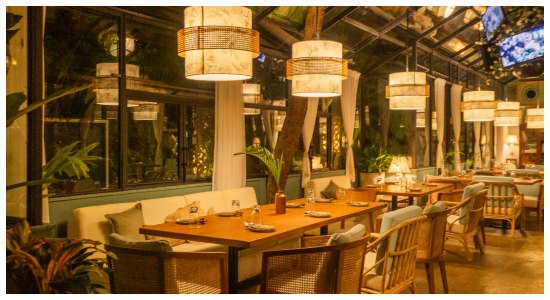
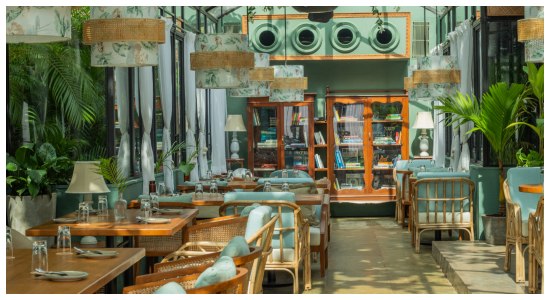
The Foreseen Challenges
We started with 12 core team members who’ve been with me since the beginning. When we expanded The Daily to Pune, six of them moved there - a decision that made all the difference.
While many chase rapid growth, I focused on growing steadily, which helped us build a stronger brand with a stable, committed team. Most of my senior and middle management have been with us for years, and that continuity shows in everything we do.
Identifying Locations
For me, it’s all about understanding the consumers, their preferences, spending habits and what concept fits the location. Before opening The Second House in Goa, I spent nearly a year living there and researching every detail.
The site we chose was offbeat, and many advised against it, but we saw its potential. The lower rent allowed us to invest more in design and technology, turning the space into a unique strength rather than a challenge. I believe every restaurant should have its own distinct identity, shaped by its surroundings and audience.
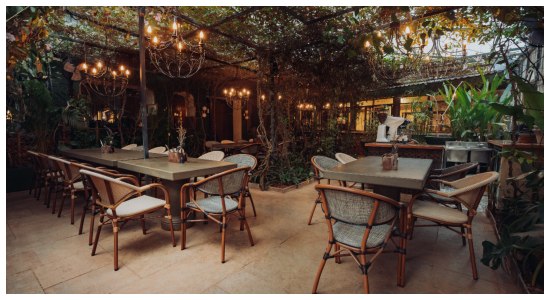
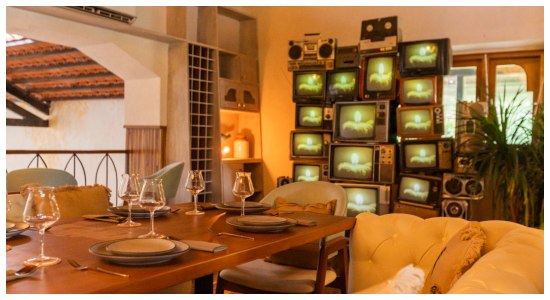
The AI Designed Restaurant
For The Second House, Pritamani reunited with Ayaz Basrai of Busride Design Studio, who had earlier designed The Daily All Day in Mumbai, a decade ago.
Basrai, who has designed and teaches “AI Meets Design” across colleges, turned this project into a real-world example of how artificial intelligence can reshape architecture. The team researched the property’s history by studying who lived there and poring over vintage photo albums from 60–80 years ago. Using AI, they extracted architectural details from old images to precisely recreate elements like pillars and facades from the 1940s.
Even the lighting at The Second House was custom designed through AI, refined with multiple prompts to achieve the perfect look. The team is now developing a light-and-smoke installation, set to launch by January 2026, where warm air will suspend smoke at chest level - an experimental fusion of design, technology, and science that defines The Second House’s futuristic spirit.
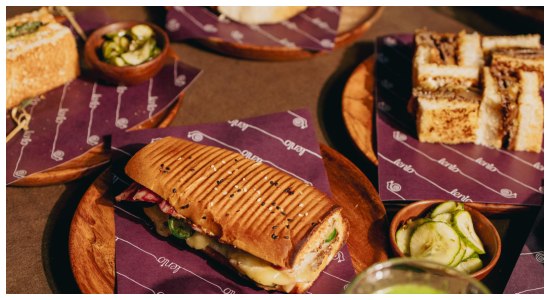
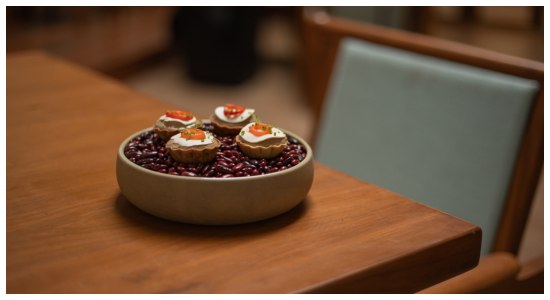
Interiors & Ambience
When launching a restaurant or café, it’s crucial to have a clear concept that ties together the brand name, menu, interiors, and consumer experience. A well-defined vision ensures long-term relevance, with interiors playing a key role in drawing audiences.
For example, at Café Lento Goa, the design celebrates nature as we are growing trees inside the space instead of cutting them down. The name Lento, meaning “slow” in Portuguese, reflects the idea of slowing down with nature. The next Café Lento will open in Koregaon Park, Pune, where each outlet will have a unique design interpretation by the designer.
Meanwhile, Tsuki, our Pan-Asian Japanese restaurant in Pune, operates on a solar-powered, self-sustained terrace. Rather than following trends, our goal is to set examples combining creativity, sustainability, and thoughtful design.
Nurture Creativity & Innovation in Staff
Allow them to make mistakes, as long as the mistake is new, correct it. If the mistake happens again, be stern and not mean. Involve them in processes so they will understand about the work. Be open to learning from everyone. Appreciating staffs works.
The Sustainability Factor
Chef Jyoti, Culinary Director tells the team to use the skin of fruits and veggies in various items. For Eg: We are using watermelon skin in cocktails/mocktails. We have a small farm outside The Second House, Goa from where we use veggies and fruits for cooking.
In Goa, where water scarcity is common, we have built small but meaningful water conservation systems at The Second House. We recharge our onsite well with rainwater, use purification processes to ensure sustainability and even created a glasshouse water tank that stores purified rainwater. During shortages, this stored water supports our operations making the restaurant both eco-conscious and self-sufficient.
Dining is Growing
Experiential dining is increasing a lot and that people are shifting more towards dine-in.
“We are more focused on dine-in than deliveries. After Covid, people are coming back to experience the dining, and restaurants are making their mark by ensuring that customers keep coming back. It’s all about giving the customers unique lasting experiences which stays for long run.”
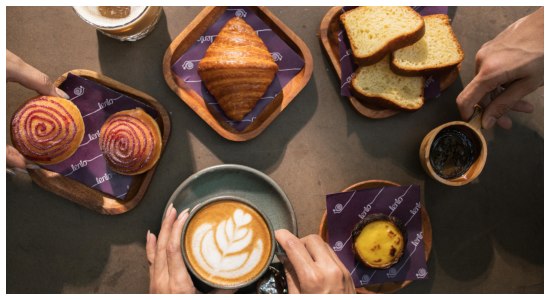
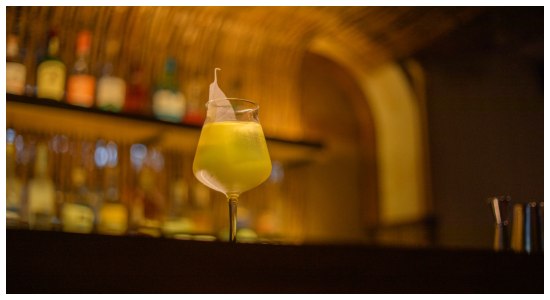
Menu Development for Each Brands
New menu is not trending base for us. At Lento, Chef is planning to re-image Besan Chilla. “We are working on things that give us nostalgia. We want people to enjoy the comfort food in a unique way. We are using AI to push flavor combination that doesn’t come to the Indian minds. And we are trying the combinations to ensure which flavor-combos work."
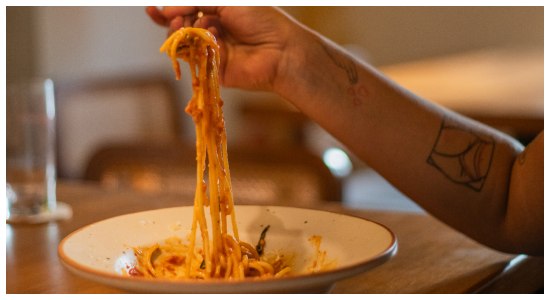
Customer Loyalty
Don’t let your staff keep changing. If a person feels welcome, they will keep coming and be your regular customer or a loyal customer. Customer retention comes from employee retention.
Message for New Restauranteurs
Do for right reasons. It’s not easy if you aren’t crazy. If you don’t take risk, so you will never know.

Sustainability at The Orchid Hotel isn’t just a practice — it’s part of the luxury ethos. As one of Asia’s first eco-certified hotels, the brand has blended responsible hospitality with refined comfort. From energy-efficient design and solar power usage to sophisticated water recycling and zero-waste initiatives. Even the smallest details — from eco-friendly amenities to sustainable décor — are thoughtfully curated. In an exclusive interview with Restaurant India Ravi Rai, GM, The Orchid Hotel Mumbai talks bout building a world-class hospitality.
With over two decades in hospitality, Ravi’s journey has been shaped by a passion for creating meaningful guest experiences and nurturing strong teams. Starting at the operational level, which gave him a deep understanding of hotel dynamics and the importance of service excellence. Over the years, he has worked with leading hotel brands across India, gaining valuable insights into diverse markets and evolving guest expectations. Leading The Orchid Hotel, Mumbai — India’s first Ecotel-certified five-star hotel — is a proud milestone. “My focus remains on strengthening its legacy of sustainable luxury while driving innovation, guest delight, and a people-first culture,” he shared. Excerpts:
Leading with Empathy, Purpose
For me, leadership is built on integrity, teamwork, and empathy. I believe in leading by example and fostering an environment where every team member feels heard, valued, and inspired to give their best. When people are motivated, exceptional guest experiences follow naturally. My goal is to cultivate openness, innovation, and accountability—guiding a team united by a shared purpose: to deliver outstanding experiences while upholding our commitment to sustainable and responsible hospitality.

People First
I truly believe that our team is the heartbeat of everything we do. Over the years, I’ve learned that a motivated, happy team is what creates memorable guest experiences. I focus on building a culture rooted in trust, mutual respect, and open communication. Every team member is encouraged to take ownership and share ideas — because innovation often comes from the ground up. I make it a point to recognize efforts, celebrate wins, and ensure that everyone feels seen and valued. When people feel connected to a common purpose, the energy and warmth naturally flow through to our guests.
Happy Teams, Happier Guests
Absolutely — a happy team creates happy guests. I keep my team motivated by fostering purpose, pride, and empowerment.
Regular training, recognition, and open communication keep them engaged and confident. When every member feels valued and trusted, they naturally deliver experiences that meet the expectations of today’s well-travelled guests
Experience at the Centre
At The Orchid Hotel, we believe true hospitality lies in the details — in the warmth of our people, the flavours on the plate, and the moments that make guests feel genuinely cared for. Food is at the heart of every experience here — from our award-winning restaurants to our regional dining concepts that celebrate India’s rich culinary heritage. Our team goes beyond service; they create connections with guests through thoughtful gestures and personal touches. Whether it’s remembering a guest’s favourite dish or anticipating their preferences, our focus is always on creating experiences that feel authentic, soulful, and deeply memorable.
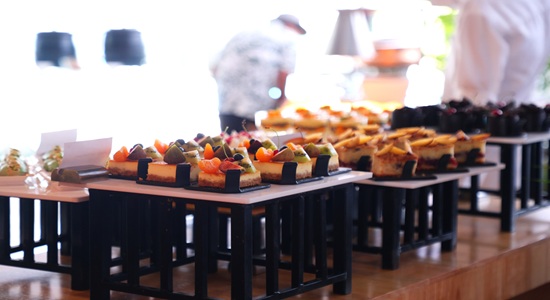
Promoting Responsible Tourism
In a city as dynamic and diverse as Mumbai, hospitality has the power to shape how travellers connect with the destination. At The Orchid Hotel, we view our role as curators of responsible tourism — blending the city’s vibrant energy with conscious luxury. Through sustainable operations, locally rooted culinary experiences, and meaningful community initiatives, we aim to offer guests a deeper, more authentic connection to Mumbai. It’s about inspiring travellers to experience the city thoughtfully — celebrating its culture and spirit while treading lightly on its environment.
The Tech-Play
Technology enhances every aspect of our operations and guest experience — from smart check-ins to data-driven personalization and sustainable resource management. Yet, while innovation drives efficiency, it’s our people who bring the warmth, empathy, and authenticity that define every stay.
Authenticity at the Table
Our culinary philosophy is rooted in authenticity, creativity, and a deep respect for ingredients. We take pride in offering distinct dining experiences — from the coastal richness of South of Vindhyas and the global flavours at Boulevard to the open-air charm of Mostly Grills, where gourmet dining meets a relaxed rooftop ambiance. Our chefs focus on fresh, locally sourced produce and craft menus that balance innovation with comfort. What truly sets us apart is the soul we bring to every meal — warm, intuitive service and a genuine passion for hospitality.
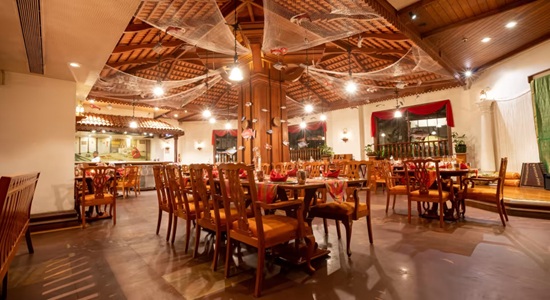
Creating a Culinary Landmark
Our restaurants are key to positioning The Orchid Hotel as a true culinary destination. With distinct venues like South of Vindhyas, Mostly Grills, and Boulevard, we attract a strong non-resident crowd. Through curated events, food festivals, and digital outreach, we’ve built each restaurant as a standalone dining experience in Mumbai’s vibrant food scene.
Trends to Watch
Personalised services, Sustainable Luxury, smart technology, local and authentic dining options and warm hospitality.

Carvel, the iconic American brand credited as the inventor of soft serve, is making its highly anticipated entry in India. With a Rs 40 crore investment planned over the next five years, the company aims to open 100 stores across key metros and tier-2 cities. But rather than merely replicating its international model, Carvel is taking a carefully localized approach to carve out its space in India’s competitive dessert market.
“In a QSR ice cream business, we need to have the right ratio of localization while still ensuring that the heritage is adapted and executed,” said Sumer Sethi, CEO & Founder at UNIFY Foodworks, who has partnered with the brand for India expansion. Excerpts:
Localisation as Key
The thought process has gone into who the consumer is while still retaining the heritage, international DNA of the brand. In India, if you do not have anything with gulab jamun or Indian filter coffee or a kasata, we felt it was an incomplete offering. This localization strategy comes to life through innovative menu offerings that blend Carvel’s signature soft serve with Indian flavours. Some of the highlights include Indian Filter Coffee Dasha, Kasata Dasha, and a Gulab Jamun Lava Sundae.
Heritage Meets Innovation
India’s quick-service dessert segment has witnessed rapid growth in recent years, with both homegrown and international players vying for market share. Carvel’s strategy hinges on leveraging its heritage, product defensibility, and offline experiential strength. I look at competition in a very positive way. Competition means the category is growing. It’s very difficult to imitate our product. We also saw that there were a lot of B2C brands coming up online, but there were not enough offline players trying to elevate the offline experience. By focusing on physical retail experiences, Carvel aims to stand apart in a market where many dessert brands are heavily digital-led. We are the ones innovating in the offline space where everyone else is innovating on the digital side of things.
Consistency in focus
To maintain consistency across multiple cities, Carvel has invested significantly in supply chain integration and logistics infrastructure. We’ve invested heavily in core logistics, backend integration of supply chain to ensure that this product comes to life in the store with this texture, consistency and price. Human capital is another key pillar. The company aims to create over 1,000 jobs through its store network and has developed digital SOP training modules from the outset. There’s a lot of investment that has gone into creating a digital SOP training module that will be translated into service and the product experience.
Road Ahead
Currently self-funded, Carvel is open to institutional funding as the brand scales. The business would require institutional funding at some point in time. When is that time and what scale will differ from person to person. Right now, we’re self-funded and we’re good to go with that. The brand also plans to build a strong digital presence through heritage-led storytelling and loyalty programs. Carvel’s India entry isn’t just about bringing an American dessert brand to new consumers—it’s about thoughtfully adapting a heritage concept to local preferences while maintaining global standards. By combining flavour innovation, operational discipline, and strategic expansion, Carvel aims to redefine how Indians experience quick-service desserts. With its heritage as its backbone and India’s evolving dessert culture as fertile ground, Carvel seems poised to create a unique niche in the market.
Carvel’s India expansion will focus first on metros like Bengaluru, Hyderabad, Mumbai, and Delhi before entering tier-2 cities. The brand has earmarked Rs 40 crore to set up 100 stores over the next five to six years, signaling a steady and strategic rollout.

Sameer Bhasin is a seasoned hospitality professional with over two decades of experience in the food and beverage industry. As CEO of Nando’s India, he has played a pivotal role in expanding the brand’s footprint across the country, combining global standards with local tastes to drive sustainable growth. In an exclusive interview with Restaurant India, Sameer Bhasin, CEO of Nando’s India, discusses the strategies behind building a strong casual dining brand in India. He emphasizes innovation, customer experience, and localization as key drivers of success in the competitive F&B landscape. Excerpts:
How does Nando’s uniquely position itself between QSR and casual dining in India?
We take pride in leading the flame-grilled peri-peri chicken space — a healthier, spicier alternative that delivers bold, fiery flavor. As an international brand, we’ve built strong consumer loyalty over time by staying true to our no-fluff philosophy: real, high-quality chicken, flame-grilled to perfection, never fried, and packed with 100% protein.
Our offerings come with generous accompaniments, creating a wholesome meal experience that sits just below the casual dining segment in terms of pricing — about 40% more value-efficient when measured by APC. While we don't compete directly with casual dine-in brands, we offer an elevated experience at a significantly lower cost. We’ve also reimagined what QSR means in the Indian market. Today’s consumers are aspirational — they want to move beyond functional food to something more experiential. That’s exactly where we come in. With prices starting just 20–25% above traditional QSR, we guide our customers up the value chain through a thoughtful, experience-led journey.
Customer at the Centre
We’ve invested deeply in understanding our customers. Every restaurant we’ve opened has been shaped by consistent consumer feedback. Over time, we've built a loyal following — guests who return regularly for their Nando’s fix.
But we also asked ourselves: how do we widen the funnel? That led us to a deeper study of the QSR landscape. We recognized that while QSR consumers are value-conscious, they’re also increasingly aspirational. They’re looking for better quality, better experiences — but without the sticker shock that often comes with full-service dining. So, we designed our offering to hit that sweet spot. Take our burgers, for example — they start at around ₹180–₹190. For just 15–20% more than typical QSR pricing, customers get premium flame-grilled food (not fried), a beautiful ambience, and attentive table service — all hallmarks of a more elevated experience.
Menu Designing
Our Indian menu actually offers more variety than the international one — not by regionalizing or altering the core Afro-Portuguese identity of Nando’s, but by thoughtfully curating additions that resonate with the Indian palate. We’ve introduced certain dishes, ensuring they align with local taste preferences without compromising on the brand’s global essence. Take our rice bowls, for instance — the flavor profiles include elements like cashew-based gravies that feel familiar to Indian consumers, yet the foundation remains Afro-Portuguese. This approach allows us to stay true to Nando’s heritage while offering something that feels both exciting and approachable. Indian diners are incredibly discerning when it comes to food — they’re deeply attentive to flavour, quality, and authenticity. That’s worked to our advantage.
Health on the Card
Another growing trend we’ve tapped into is the increasing focus on protein-rich diets in India. Our flame-grilled, protein-forward offerings have found strong appeal among health-conscious consumers looking for meals that are both nutritious and full of flavour. It’s become a strong driver of repeat visits. We’ve seen a noticeable affinity from health-conscious consumers, particularly in locations near gyms and fitness hubs, where gym-goers regularly choose Nando’s as their go-to post-workout meal. It’s not just about great taste — it’s about food that fits their lifestyle, and that connection is strengthening our brand’s appeal within this evolving segment.
Key traits do you look for hiring or maybe developing a future leader at Nando's?
Nando’s is built on a unique and deeply people-centric culture — it’s not just about the chicken, it’s about the people who make it. We see ourselves first and foremost as a people brand. Our focus is on creating a workplace where our teams feel valued, supported, and inspired. At the heart of our culture are core values like courage, family, pride, and passion. These aren’t just words on a wall — they guide how we hire, lead, and grow. When we bring new people into the business, we look for those who naturally embody these values: individuals who treat the restaurant like one big family, who have the courage to do what’s right, who take pride in being part of the Nando’s journey, and who are genuinely passionate about growing both the business and the people within it.
We believe culture drives performance. That’s why we invest in developing leaders who act as cultural champions. When those values are lived at the top, they cascade down through every part of the organization — creating a consistent, people-first environment that fuels our success.
What are the three core pillars of the Nando’s brand, and how does each one help create a memorable customer experience?
At Nando’s, our brand stands firmly on three core pillars — People, Product, and Place.
First, our people are at the heart of everything we do. We’re incredibly passionate about those who work with us — they bring the energy, the culture, and the soul of Nando’s to life every day. Second, our product — the iconic flame-grilled peri-peri chicken — is something we’re truly obsessed with. Our unique flavour comes from authentic peri-peri chillies grown in the Southern African region, and our signature sauces are crafted from the same source. It’s this commitment to quality and origin that gives our chicken its unmistakable taste. The third pillar is our restaurants, or as we call them, casas. Each casa is uniquely designed to reflect the vibrant Afro-Portuguese heritage — colourful, warm, and full of character. We also feature open kitchens, allowing guests to see their chicken being grilled fresh, right in front of them. It’s an immersive experience that engages all the senses — from the aroma of the flame grill to the sizzle and sight of freshly prepared food arriving at your table.
How does Nando’s demonstrate its commitment to sustainability through its operations and sourcing of peri-peri chillies?"
As an organisation, Nando’s is deeply committed to sustainability, with a global focus on achieving net zero. This vision drives numerous initiatives across all our markets, including India, where we’re actively working to conserve natural resources and reduce our carbon footprint. From energy-efficient operations to the sustainable materials we use — even our furniture choices are backed by thoughtful, science-driven decisions.
A great example of our sustainability and quality ethos is found in our most iconic ingredient — the peri-peri chilli. Grown in the Southern African region, these chillies thrive in specific climatic conditions and rich sunlight, which give them their signature heat and flavour.
Once harvested, the chillies are turned into our signature sauces at a dedicated facility in Johannesburg, South Africa, and then distributed to Nando’s restaurants around the world. These sauces are made using fresh, natural ingredients — no artificial colours, no additives — which is a key reason why they are so distinct and hard to replicate. It’s this tightly controlled, fully natural process that not only delivers the bold, authentic flavour Nando’s is known for but also aligns with our broader mission of promoting sustainability and responsible sourcing across the business.
What is Nando’s approach to expanding across India, and why is consistency and profitability prioritised over rapid growth?
Our goal is to establish Nando’s as a national brand across India. While we do aim to expand into multiple cities, we’re not in a rush. What matters most is ensuring that every part of the business remains profitable and sustainable as we grow.
That’s why we’re focused on selecting the right locations, investing heavily in our teams to deliver a consistently high-quality guest experience, and strengthening our product and supply chain.
With this strategic and deliberate approach, we’re entering new cities gradually — making sure that every Nando’s restaurant delivers the same exceptional quality, no matter where it is. Ultimately, our success lies in growing sustainably, with consistency and profitability at the core

In today’s hospitality landscape, the focus has evolved beyond simply serving great food—it's about curating experiences that spark emotion and leave a lasting impression. Ankita Poojari, Director and second-generation entrepreneur at the Shiv Sagar Group, shares insights into how the iconic Indian brand has sustained its success over the past 35 years by redefining what it means to dine out. This blend of nostalgia and novelty perfectly reflects the journey of Shiv Sagar; a brand that has been a household name for over three decades, now stepping into a new era under Ankita’s leadership.
“In many ways, Shiv Sagar is not just a restaurant—it’s part of Mumbai’s cultural fabric,” Ankita reflects. “Our pav bhaji and dosas have been staples for generations, but today, we’re reimagining how people connect with food. Legacy is our foundation, but innovation is our language.”
Honoring a Legacy
Founded by her father, Narayan Poojari, Shiv Sagar began as a humble eatery that quickly grew into one of India’s most trusted vegetarian dining chains. Over the last 35 years, it has become synonymous with family gatherings, festive celebrations, and comfort food. For Ankita, growing up around the brand instilled lessons that shaped her leadership today.
“Consistency, quality, and trust were ingrained in me early on,” she says. “I saw firsthand how my father-built relationships with customers, not just a business. That’s what gave Shiv Sagar its soul.”
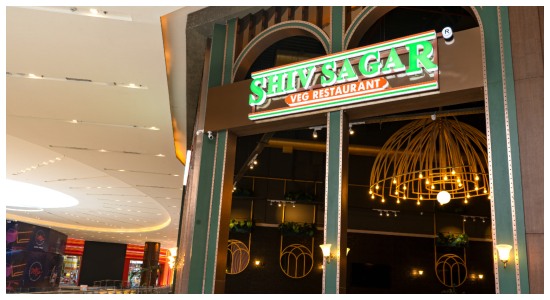
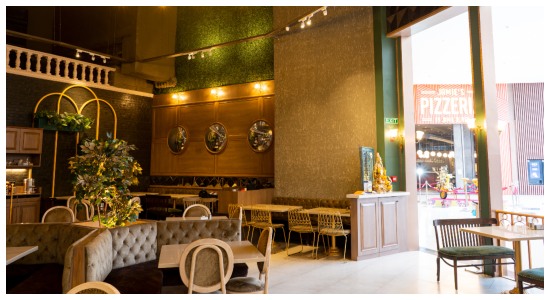
While Narayan focused on tradition and community, Ankita brings a modern lens-data-driven insights, structured growth, and global influences. “My corporate experience gave me a wider perspective, which I now use to modernize the brand without losing its roots. Every challenge is an opportunity to improve,” she adds.
Legacy Meets Modernity
Each brand under the Shiv Sagar umbrella begins with a deep understanding of its core identity and the value it brings to guests. From food trucks to experiential events, and from interactive menu elements to carefully crafted ambience, every touchpoint is designed to resonate with a specific audience—blending timeless traditions with contemporary tastes.
From Food Trucks to Cafés: A New-Age Spin
Innovation is at the heart of Shiv Sagar’s evolution. The brand has expanded its portfolio with fresh concepts designed for today’s diners. The Shiv Sagar food truck at One BKC, for instance, introduced the brand to a younger, on-the-go audience. “Every detail, from menu curation to execution, balances our legacy with innovation,” Ankita explains.
Another example is The Big Small Café, which blends big and small plates in a stylish, contemporary setting. Designed with consumer insights, it caters to both first-time diners and loyalists. Interiors are minimal yet warm, with curated playlists and plating that invite Instagram snaps while staying true to taste.
“Across our portfolio, every concept is tailored to its demographic. We aim to keep our loyal patrons engaged while also appealing to a new generation that craves comfort with novelty,” she notes.
Dining in the Age of Experiences
Ankita points out that young consumers today are driven as much by experiences as by taste. “It’s not just about food anymore; it’s about how the ambience, presentation, and storytelling come together. People want to feel something when they dine.”
This has led Shiv Sagar Group to experiment with everything from zero-proof cocktails addressing a rising trend among Gen Z—to themed events such as Halloween nights, festive specials, and even playful ‘fake sangeet’ evenings. Collaborations with chefs and brands keep offerings dynamic and fresh.
According to industry reports, India’s dining-out market is projected to grow at over 10% annually, with millennials and Gen Z leading this surge. “We track these shifts closely,” Ankita says. “Being agile and data-driven helps us anticipate consumer needs and stay ahead of the curve.”
The Next Chapter: Ankita’s Vision
Taking charge of operations, branding, and expansion, Ankita brings a next-gen perspective to Shiv Sagar. With a background in marketing and hospitality, she is focused on refreshing the brand’s identity while preserving its heart.
“Our diners are evolving,” Ankita explains. “They don’t just look for taste; they want ambience, presentation, and an experience worth sharing. My role is to ensure Shiv Sagar feels as relevant today as it did when it first opened its doors.”
From revamped interiors with brighter, Instagram-worthy settings to seasonal menu innovations, Ankita is modernizing without losing the warmth and nostalgia people associate with Shiv Sagar.
Innovation on the Plate & Beyond
While Shiv Sagar has always been synonymous with South Indian staples and North Indian classics, the menu now also experiments with global vegetarian flavors and healthier twists. At the same time, Ankita is bringing in digital-first practices from online reservations and delivery-friendly menus to partnerships and campaigns that extend Shiv Sagar’s reach to younger audiences.
The operational backbone of the restaurant is also being refined. Many team members have been with Shiv Sagar for decades, forming the silent strength behind its consistency. “Our staff are like family. Their loyalty is what ensures every plate feels like home,” Ankita adds.
Beyond Food: Building a Brand Experience
Ankita is also conscious of the larger ecosystem Shiv Sagar Group operates in. From eco-friendly packaging to experimenting with sustainable kitchen practices, she is introducing small but meaningful changes. Plans are also in motion for community initiatives around food and nutrition, continuing her father’s ethos of hospitality as service.
The Generational Bond
For many, dining at Shiv Sagar is tied to memory first college outings, post-movie dinners, family celebrations, or simply a comforting dosa after a long day. That emotional resonance is something Ankita treasures.
“People often walk in and say, ‘I used to come here with my parents, and now I bring my kids.’ That’s the true reward of building a legacy brand,” she says with a smile.
High on Expansion
In the next five years, I see Shiv Sagar continuing to be a household name while also evolving to meet the tastes and expectations of newer generations.
We aim to expand nationally, bringing our legacy and trusted flavors to more cities, while exploring innovative concepts like food trucks and experiential dining to connect with younger, urban audiences.
At the same time, we are focusing on sustainable growth whether it’s in operations, menu innovation, or customer engagement, ensuring that every venture we launch adds value and strengthens our brand’s relevance. Ultimately, we want to honor the 35-year legacy of Shiv Sagar while building a portfolio of modern hospitality experiences that resonate across generations.
Looking Ahead
For Ankita, this journey is not just about running a restaurant. “It’s about carrying forward my father’s dream, while making sure the next generation feels the same sense of belonging when they walk into Shiv Sagar.”

Over the past 15 years, Chowman has grown from just being a Chinese restaurant to growing steadily with its sister brands, Oudh 1590 and Chapter 2. Founded in 2010 by Debaditya Chaudhury, who is also the Founding Member of the iconic Bangla rock band Lakkhichhara, Chowman brings the authentic Chinese cuisine to neighborhood fine dining.
It was during the pandemic in 2020 when the brand entered Bangalore by opening its cloud kitchen venture. Today, they operate 37 outlets and commands a strong presence with 8 outlets in Bangalore, 4 in Delhi-NCR, 2 in Hyderabad, and 2 in Mumbai. In an exclusive interview with Restaurant India, Debaditya Chaudhury, Managing Director of Chowman, Co- owner of Oudh 1590 & Chapter 2 shares about his journey, delivery models, challenges and much more. Excerpts:
The Vision Behind Chowman
The idea was simple: bring authentic Chinese cuisine to neighborhood dining spaces without compromising on quality or experience. Back in 2010, diners faced challenges in either high-end fine dining or street food. Chowman was created to bridge this gap by building a space where authenticity meets comforts, much like music connects people across cultures.
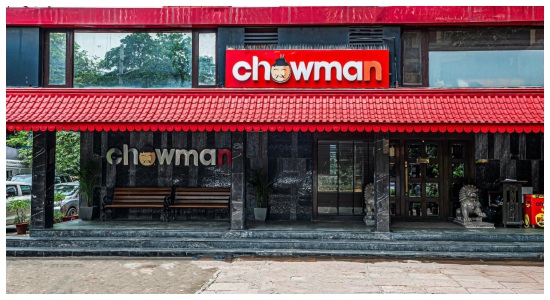
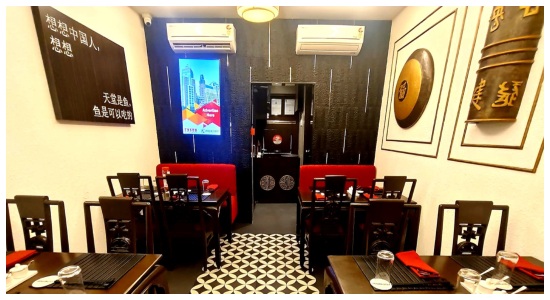
What Sets Chowman Apart
Chowman goes beyond food, we built a culture. While Chinese cuisine is our foundation, we have expanded into Korean, Japanese, and Thai dishes, offering something for everyone. Sustainability is key, with eco-friendly packaging and conscious operations. We invest in people: annual walkathons, kickboxing classes for female staff, and collaborations with St. Xavier’s University for affordable hospitality courses. Technology is another pillar; our Chowman App and largest delivery fleet among Chinese chains ensure a seamless customer experience.
Balancing Authenticity with Local Palates
Authenticity means respecting the roots of Chinese cuisine while making it approachable for Indian tastes. We fine-tune flavors to suit local preferences without losing the essence of wok-tossed dishes. To me, authentic Chinese food is an experience like the aroma, the communal sharing, and the respect for centuries of culinary tradition.
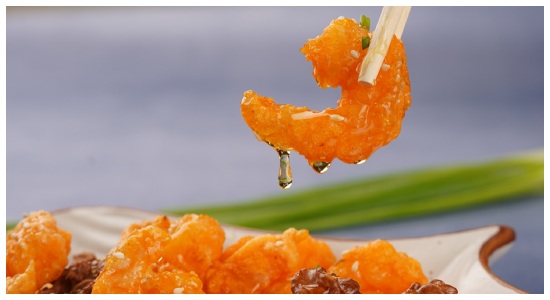
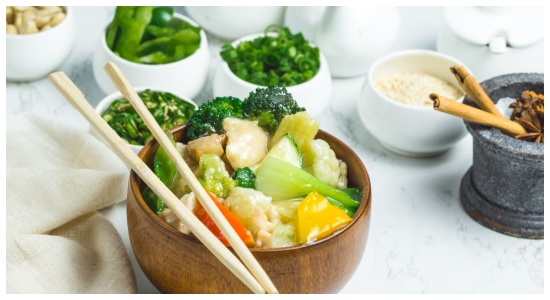
Sourcing & Kitchen Philosophy
We import sauces, condiments, and tools from Thailand, China, and Japan, while sourcing fresh produce locally. Efficiency never compromises tradition like wok-tossing techniques and balanced flavors are central to our cooking.
Creating the Complete Dining Experience
Ambience, music, décor, and attention to detail make a Chinese dining experience immersive. Health-conscious trends are reflected in lighter, less oily dishes without compromising flavor. Authenticity meets modern lifestyle need to be maintained seamlessly.
Innovation & Signature Flavors
Chowman’s in-house secret sauces maintain authenticity while adapting to Indian tastes. Kolkata-style dishes, rooted in Indo-Chinese heritage, remain popular. Innovation is ongoing like seasonal menus, festival specials, and nostalgia-driven dishes keep the menu fresh yet familiar.
Expansion Plans
With 37 Chowman outlets and over 45 in the F&B group, the brand aims for 100+ outlets across metro and tier-2 cities like Chandigarh, Pune, Chennai, Ahmedabad, and Lucknow by 2030.
For us, consistency is key with centralized supply chains, production units, and rigorous training we ensure that our customers receive same experience across India.
The Future of Chinese Cuisine in India
Chinese food in India is evolving. Regional flavors like Sichuan, Hunan, and Cantonese are gaining traction, while fusion and health-conscious versions are becoming popular. At Chowman, we aim to balance authenticity with accessibility, offering Thai, Korean, and Japanese dishes alongside Chinese staples.
Advice for Young Entrepreneurs
Passion is the foundation, care for your team fuels growth. Small gestures build culture, respect, and trust. Passion plus strong relationships equal sustainable success.

Over two decades in the business, Nikhil K. Rochlani has watched India’s dining landscape shift from price-driven choices to experience-led destinations. He is Founding Partner of Butterfly High, Kyma, and The Bigg Small Café + Bar. For him, today’s success rests on customer insight, constant reinvention, and sharply defined brand identity. Recognised for his consumer-first approach and innovative event-led formats, Nikhil continues to mentor entrepreneurs and shape India’s dining culture across multiple cities. In an exclusive interview with RestaurantIndia, he talks about his experience, various concepts, expansion, challenges and much more. Excerpts:
Tailored to Taste
Hospitality brands succeed when they truly understand their audience. You can’t replicate the same concept, venue or marketing strategy everywhere. Success lies in tailoring each brand to its geography, audience preferences, and spending culture. Even within categories like cocktail bars, very few thrive because success depends on deep market understanding and creating a niche that resonates.
Creating Experience-led Spaces
The vision for both Kyma and Butterfly High was to create a perfect balance of quality, quantity, and price. We don’t chase margins—we focus on delivering value. Today’s customers don’t just pay for a dish; they pay for the entire experience. That’s why we emphasize a 360-degree ambience with great food and drinks, thoughtful design, and memorable service, so that guests leave with more than just a meal, they leave with an experience.
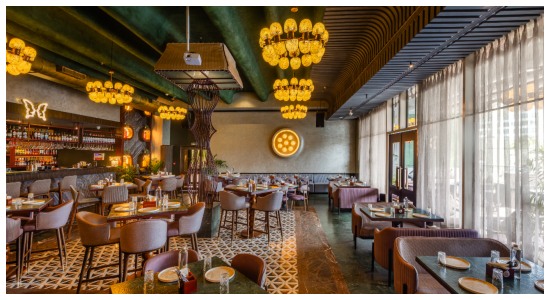

Building Culture
Operations are the backbone of hospitality. First, have quality people than quantity people. Our retention policies and employee are very strong. We are very employee-friendly and are very approachable. The retention rate is very high. We guide them on how to run the restaurants.
If you manage to retain the right talent, then I think you won. Many of our employees are there with us since we started. As we are growing, the 10-12 employees who are there since the start are heading on to different locations. I believe ‘Right people and Right culture is the key.’ Customers are never wrong and take the constructive feedback from all. Our goal is to serve the customers.
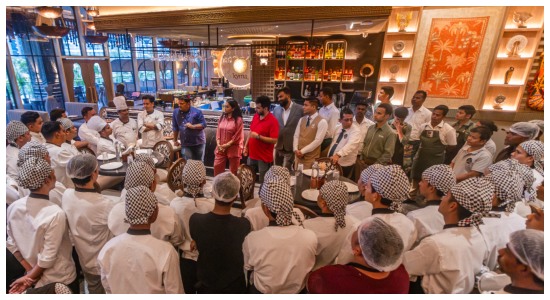
Comfort never Changes
Comfort food evolves, but it remains same. Fusion is on trend, but classics are still the same. You can change the presentation and plating, but you can’t change the soul of the dish.
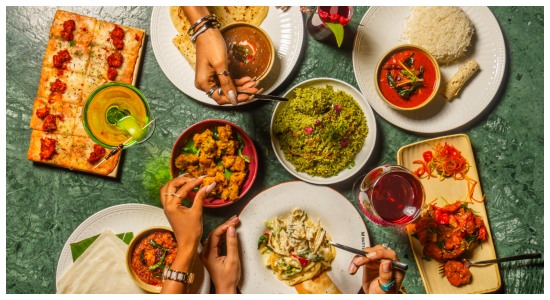
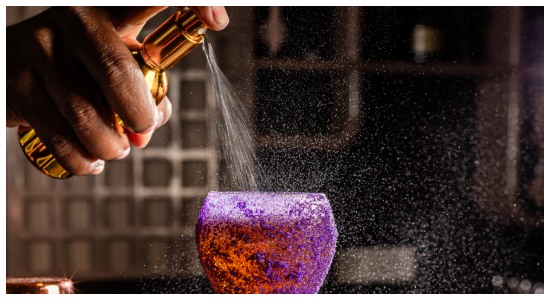
Overcoming Challenges
We need to ensure that our employees are happy, so our guest is happy. The biggest challenge in this industry is attrition and understanding how to prevent it. The second biggest challenge is no matter how good you are, there are lots of disruptors in the market who don’t understand the industry as they don’t know how to survive. While, aggregators are commercial-minded, but with the rising costs, they are passing on the costs to customers and us. The major challenge is coping with the increased costs, while not being able to increase our selling price.
Perfection in every detail
The core philosophy is that guests should be happy when they walk out. The five senses should please the customers and everything has to be optimally done. We believe that how greet your guests and the hygiene, service, food, drinks, music, interiors and washrooms everything has to be perfect. There should not be any rough surfaces. Everything has to be balanced out.
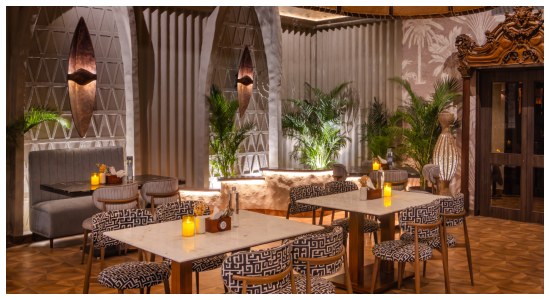
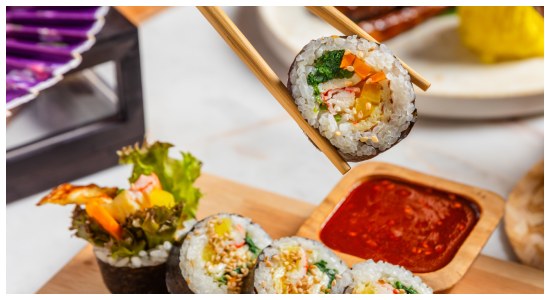
Expansion Plans
We are opening a new Butterfly High in Powai, adding to the couple of units we launch every year. Beyond bars, we’re also working on café concepts. Our five-year vision is to go pan-India, including Tier-2 and Tier-3 cities where people are increasingly aspirational and eager to try new experiences.
As we scale, we adapt menus to local tastes—Thane has its own specials, Hyderabad features unique cocktails with spicier profiles. Every city has its own preferences, and we embrace that. And looking ahead, we believe rum is the next tequila in India.
Advice to youngsters venturing hospitality
If you really love F&B, then join us. It’s a passion driven business. You may have to forget the important occasions to make some other’s occasions special. If you are in the space for a right reason, you will do really well.
Future of Indian hospitality
This is the golden phase of Indian F&B because the dining out culture is going to pick up further. A lot of developers have started experimenting with cutting out kitchens, tying up with cloud kitchens, healthier meal options are common. The scope is endless for next 10 years. The more you give and understand what the need of the hour is, the more you grow. If you stay stuck on your ideals, the way you should run a restaurant, you have to keep reinventing the wheel. You have to unlearn and relearn things again.

Founded by Sumit Govind Sharma, Monarch Liberty Hospitality Pvt Ltd has launched some successful restaurants in Mumbai such as EVE, Que Sera Sera and TAT. With 5 restaurants in Mumbai, the brand is set to grow with new concepts. In an exclusive interview with RestaurantIndia, Sumit Govind Sharma, Founder, Monarch Liberty Hospitality Pvt Ltd talks about his journey, brands, expansion plans, sustainability and much more. Excerpts:
How it All Began
My journey began in branding, working with global names like Mercedes-Benz. Despite success, I felt something missing — a real human connection. Hospitality drew me in because it creates spaces that make people pause, feel, and remember. Eve Bombay was born from this intent, not trends. From there, Monarch Liberty Hospitality grew, each outlet crafted with the same emotion and care.
What’s in the Name?
• Eve represents elegance and new beginnings.
• Que Sera Sera captures a carefree, flow-with-it vibe
• TAT draws from the coast, reflecting its essence.
For us, names must carry meaning, not just marketing appeal.
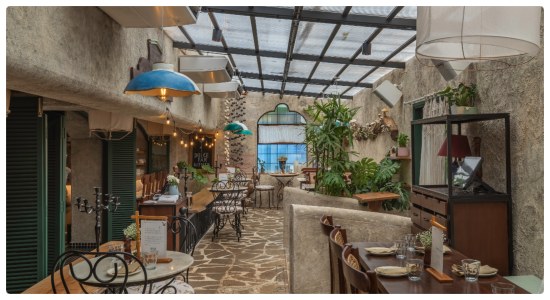
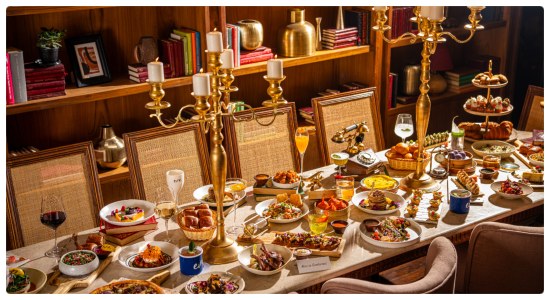
Managing multi-brands
When a restaurateur has multi-brand restaurants, it might be challenging for some while for others it’s fun to come up with new concepts and work on it. Managing them means giving each brand its own voice, team, and rhythm no one-size-fits-all. "We have executive chefs in different restaurants. One chef who handles all the outlets of Eve and the other two restaurants has different executive chef."
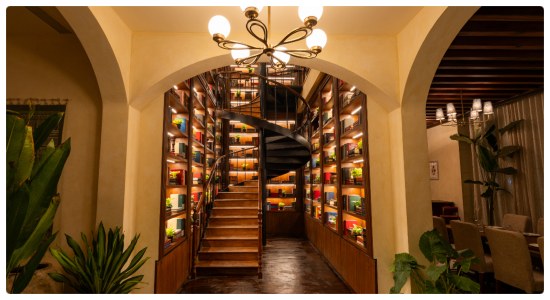
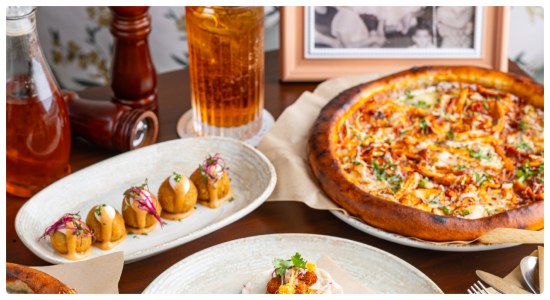
Challenges in Scaling
The biggest challenge is protecting the originality of each brand as it grows. It’s easy to lose detail when you scale. Whether it’s the lighting at Eve, the plating at TAT, or the coffee at Que Sera Sera, we’ve had to stay close to every single layer.
Another big focus has been hiring and training teams who understand that hospitality is emotional. “It’s not just about following SOPs — it’s about care, memory, and presence. For us, lean time is training time. We use it to upskill our teams, revisit brand protocols, and strengthen the culture behind the scenes, so we’re always ready to deliver when the room is full.
Standing out in Mumbai’s Market
Differentiation comes from clarity. Eve is known for the elegance and emotion. Que Sera Sera is all about everyday comfort and familiarity. TAT is known for its depth, tradition, and legacy-driven food. We don’t try to be everything for everyone as each brand has its own personality.
The Business Strategies
We run brand-first operations. Decisions always align with concept identity. Expansion is measured, focused on guest experience over numbers. We invest in long-term people and believe in chefs who value consistency and tell authentic stories.
We are strong with the aggregator platforms and social media. We don’t do deliveries for the EVE. While 95% of business in Que Sera Sera comes from dining. The food gets compromised during deliveries and we are more of experiential dining, so we are focused more on dining than deliveries.

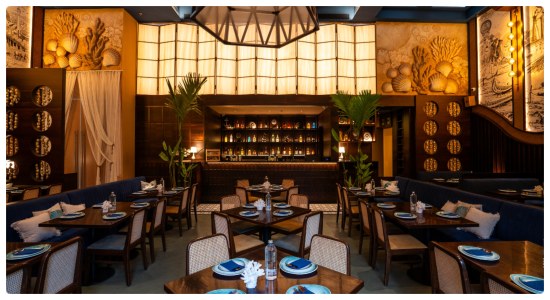
Ensuring Quality & Consistency
Consistency is built into systems and people. Protocols cover everything like playlists, plating, lighting and tone of service. Training goes beyond the “what” to explain the “why.” We remain hands-on, believing real consistency comes from involvement, not automation.
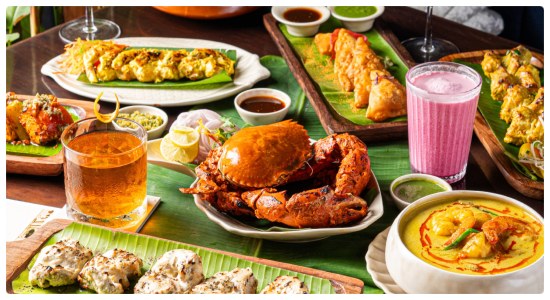

Approach to Sustainability
For us, sustainability means balance.
• Menus designed for mindful consumption and reduced waste.
• Plastic-free packaging.
• Greenery woven into every space.
True sustainability is about building brands that last without endless reinvention.
Role of Technology
We use tech where it helps improve efficiency. Inventory, feedback systems, guest analytics-all of that runs through digital tools. But when it comes to hospitality itself, we still believe in the power of people. No system can replace the warmth of a well-timed recommendation or a team member remembering your name.
Expansion Plans
We have plans to open new concepts restaurants by end of this year and to expand Eve in Mumbai. We will be opening 3 outlets by end of 2025.
Future Dining Trends in India
Dining is shifting from volume to value. Guests want stories, not just Instagram-worthy meals. Regional food is resurging. Cultural authenticity is in demand. We can see that personalized experiences, smaller menus, and intimate spaces are shaping the future.

With a distinctive perspective shaped by diverse global influences, Kapil Dubey views the kitchen as an ever-evolving canvas were consistency dances with creativity. He honed his craft at Park Hyatt Goa before expanding his repertoire at renowned establishments such as One&Only Resorts Dubai and Four Seasons Maldives, followed by tenures at JW Marriott and Ritz-Carlton. A graduate from the prestigious Starwood Career ExCom Track Program, he has also led kitchen operations at Sheraton Hyderabad and earned notable recognition as Times Food Awards Chef of the Year during their time at The Leela Gandhinagar.
By using locally sourced seasonal ingredients, the chef will refresh the resort’s menus with dishes that celebrate Uttarakhand’s local produce while offering surprising flavors. In an exclusive interview with Restaurant India, Chef Kapil Dubey, Executive Chef of Hyatt Dehradun focuses on immersive journeys that transport guests through flavors and techniques while maintaining an unwavering commitment to personalized service. Excerpts:
The Innovations
We are doing experiment with local ingredients, millets and prefer using cage-free eggs. We also have home-grown garden and herbs and spices. We cook with guests in mountains to give them unique experiences and prefer vegetarian cooking in mountains. We do lots of live cooking and it’s all about excitement that keeps us going. We are experimenting with Bhang chicken and curry with pahadi salt which gives a unique flavor.
Talking about the sustainability part, Chef Kapil said, “We are helping the local vendors by using local honey, helping the community who does honey farming for us. We don’t use any plastics in kitchen.”
On Kitchen Operations & Innovation
"For me, kitchen operations are at the heart of everything. Whenever we launch a new menu or concept, we invite people to try the dishes, gather their feedback, and discuss flavours in detail. This exchange often sparks fresh ideas and leads to continuous innovation—whether it’s tweaking spice levels, swapping vegetables, or customizing dishes based on guest preferences. People are curious about ingredients, and their inputs help us refine our offerings," pointed Dubey.
On Team Development & Positive Culture
Post-COVID, motivating kitchen staff has become more challenging. Today’s Gen-Z and millennial workforce values a healthy, non-toxic environment over monetary incentives. If the culture feels negative, they’re quick to move on. To retain and inspire them, we focus on flexibility, learning opportunities, and teamwork.
We encourage collaborative cooking, hold brainstorming sessions, and offer cross-training. Team members are sent for pre-openings at other hotels, supported in participating in pop-ups and events, and are exposed to visiting chefs for skill exchange. This approach keeps them engaged, adaptive, and constantly learning—making the kitchen not just a workplace, but a creative hub.
Retaining staff
We keep engaging them and one should not feel stuck. Learning is important and that's how you can retain them now. If someone will move around with a hotel, then they learn a lot. That's what we do by sending them to the different properties to move and see what is happening there and understand the roles and what's new happening around them.
Reducing food wastage
We call it a zero-waste cooking where we use the trimmings of veggies or whatever coming in the kitchen like the roots, peelings which we try to utilize it in other recipes. So that's how we're trying to reduce the wastage. Also, we have a program where we have every kind of wastage from every buffet or any kind of preparation. We try to educate the people and try to do the centralised cooking where we do the bulk cooking. We ensure that the quality is maintained even during portion size cooking.
Challenges in the industry
It’s quite difficult to retain a skilled chef, where people are very much demanding and it’s very difficult to find a very good skilled chef. We try our best to motivate and retain them. I mean, we try to give them learning and growth within the company.
Culinary philosophy
I do a lot of different kind of dishes experimentation, which is one of the parts of our higher values. Also, when you know a lot of things, always being a leader in the market where people follow you.
Approach on Customization & Plating
Customization is really high as people are well traveled and are more aware about the allergence. We have allergen policies in our place. We also have mentioned the allergies in the menus and on the buffet and in the buffet tags we are putting allegeries. So, we always have time to customize, and we have to take top priority and top hygiene precautions for our day-to-day cooking. We are ISO certified, where we are falling with international standards of ISO, and we are taking care of all the allergens and all the dietary preferences from the guest.
Plating and presentation for me secondary, firstly the quality is very important and taste should be exactly how we want. These days, around 40% of the people eat or try out that particular food for the presentation. There are people who come to try more of a mystical food where we always send some kind of thing or gimmick on the table. People start taking the video and they post on social media platforms, so we are also getting more reach. We have to be very cautious while balancing in terms of the new trend of presentation and the quality.
Three tools in Kitchen
Fire, ladles and spoon
Signature dishes
Bhang Potatoes and Bhang Chicken
Ongoing Trends
- Many are focused on sustainability
- People are exploring the healthier options.

Le Sutra Hospitality is a distinguished name in the hospitality industry, known for its innovative concepts and commitment to exceptional service. With acclaimed brands like Café Out of the Blue, Le Sutra, Anglo-Indian by Out of the Blue and The Blue Gourmet, Le Sutra Hospitality continues to drive social impact by supporting initiatives like DEEDS’ vocational ice cream-making program in Dehradun—empowering specially-abled youth with skills and employment opportunities.
Rahul Bajaj, Director of Le Sutra Hospitality and a second-generation entrepreneur, is the visionary behind Café Out of the Blue’s transformation from a modest 30-cover eatery into a 185-cover culinary landmark, which had celebrated its 25th anniversary in November 2024. Beyond the plate, Rahul is deeply committed to community upliftment, partnering with NGOs like DEEDS to support hearing-impaired artisans through projects like Silent Bakery.
In an exclusive interview with RestaurantIndia, Rahul Bajaj, Director at Le Sutra Hospitality talks about his newest venture, expansion plans, all about his brands and much more. Excerpts:
The Brand philosophy
Rahul’s philosophy of “sell the idea, don’t tell the idea," creates a personalized and welcoming experience for every guest, whether they arrive in formal or casual attire. The brand’s tagline is ‘Something always happening.’
The USP
Go ahead of customer satisfaction and delight is our USP. People should be happy with what they consume. We have 20-30% of healthy menu.
How has Brand evolved?
Commenting on the same, Rahul Bajaj said, “We were the first place to start mini sizzlers with indianised taste buds with italian flavours. We have innovated alot over the years. We improved a lot in desserts and breads, icecream. Out of the Blue was famous for mini sizzlers. We have done wine fest, swiss food fest and many others over the years.”
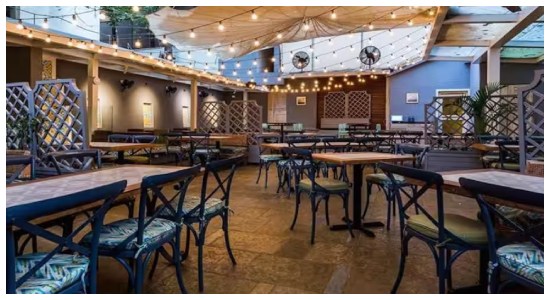
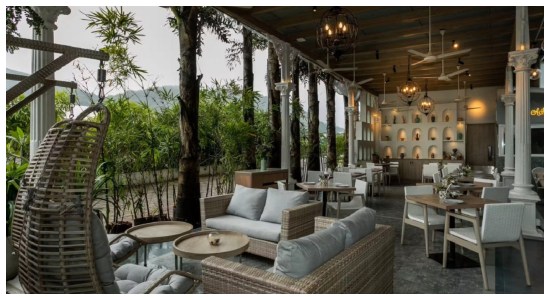 (Cafe out of the blue) (Cafe Anglo-Indian)
(Cafe out of the blue) (Cafe Anglo-Indian)
The Signature Items
Driven by Rahul’s passion for quality and creativity, the menu features standout dishes like Chargrilled Pesto Chicken, Penne Masala Mafia, Desi and Vegan Cheese Fondues, and the Homemade Pasta of the Day—rounded off with indulgent desserts like Boozy Brûlée and Lotus Biscoff Ice Cream.
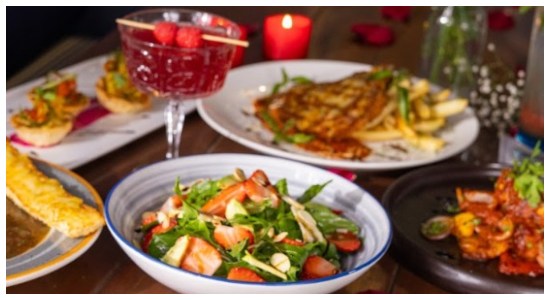
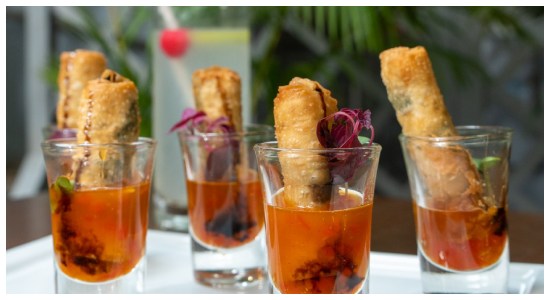
Target audience
At Out of the Blue, we cater to guests aged 20 to 65, with 80% of our business coming from dine-ins and 20% from deliveries. We regularly host workshops to keep the space dynamic and engaging. Over the years, we’ve evolved—from hosting Delicacie by Bunty Mahajan to launching our own line of breads and desserts, which quickly became customer favorites.
Bajaj noted, “We should be trend setters rather than followers. We have seen people copying our ideas in trendsetters.”
The Challenges
People grow with the brand, so creating space for development is essential. We train our staff two to three times a week and have a dedicated counselor to support employee well-being. Led by Executive Chef Rajesh, our culinary team spans multiple locations. Notably, we were among the first restaurants to receive the ISO 9001:2000 certification.
Marketing Strategies
Our focus has always been on creating vibrant, engaging experiences—ranging from live music and food festivals to art exhibitions, Wednesday lunches, and unique elements like tarot and palm readers. We were also the first pet-friendly restaurant in Bandra. Both Out of the Blue and Anglo-Indian offer special veg and non-veg treats for dogs, along with services like pet healers and pet spas. Anglo Indian features a distinct menu, setting it apart from Out of the Blue. With this, we gained a large chunk of customers and gained profits.
The Launch of ‘The Blue Gourmet’
Expanding his entrepreneurial vision, Rahul launched The Blue Gourmet—a confectionery brand born from his childhood dream of owning a chocolate factory. Partnering with a cacao farm in Kerala, he ensures high-quality couverture chocolates that are both premium and accessible.
The brand offers handcrafted bonbons, ganache cubes, enrobés, and artisanal ice creams like Smoked Vanilla & Chocolate Chips, available through Swiggy, Zomato, and at Café Out of the Blue, Bandra.
Partnering with DEEDS
In a powerful step toward inclusion, DEEDS Public Charitable Trust and Le Sutra Hospitality have launched a vocational ice cream-making program at Silent Bakery, a food truck in Dehradun, and empowering specially abled youth with the required skills, confidence, and career paths in hospitality. This is a major initiative by Bajaj, who is leading the way by boosting their confidence.
With expert support from Café Out of the Blue and The Blue Gourmet, students craft innovative ice creams like Buransh Sorbet and Cheesecake, using a high-end machine donated by the brands.
Hands-on training continues through Silent Bakery’s food truck, with a second truck and Silent Café which was launched in March 2025. DEEDS have already placed 2,000 specially abled individuals in inclusive venues like Mirchi & Mime and Ishaara.
This community-driven brand welcomes support via donations, volunteering, or job placements under Schedule VII of the Companies Act 2013. They are set to launch their third restaurant in Dehradun.
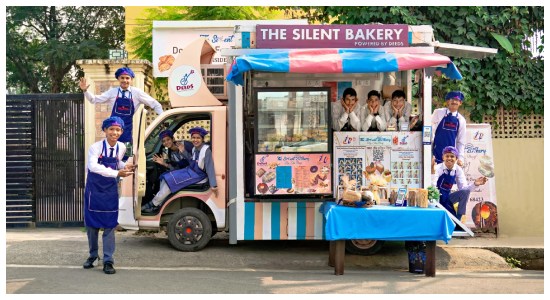
Expansion Plans
Anglo Indian Cafe by Out of the blue is a resort, where we are coming up with South Indian fusion restaurant called ‘Bean Garu.’ We are coming up with unique food like Appam with fondues, Pesto Cheese dosa among others. Earlier, Anglo Indian Cafe was a separate entity. Now, it will be under the resort should start by September. It is an 80-room resort.
We may come up with Café Out of Blue in Lonavala. We have 65 room resorts coming up where we will have banquets, 3 restaurants, and dessert and ice-cream store.

Sushaan Nath is a second-generation restauranteur and CEO of Passion Cuisine who is driving Passion F&B to the new heights with his creative ideas. Following his father Bhupendra Nath’s footsteps, who is the director of Passion Cuisine, Sushaan is the visionary behind 10/10 Burgers. He introduced the trendsetting concept to Dubai, catering to a youthful and modern audience.
Sushaan has also been instrumental in expanding Passion F&B’s reach, bringing Zaatar W Zeit from Lebanon to Mumbai and conceptualizing fresh, trend- focused QSR concepts. In an exclusive interview with RestaurantIndia, Sushaan shares about his journey, food business, expansion, views on Indian and international markets and much more.
Venturing into food business
Growing up in a family business, conversations around food, restaurants, and hospitality were always part of daily life. It naturally shaped my passion for the industry. But as I entered my mid to late teens, I wanted to explore my own identity and take a path that offered some distance from the family legacy, at least initially.
It kept me connected to the Fnb space I truly care about, while allowing me to build something independently—something rooted in community, driven by my own vision. For me, it’s always about the opportunity to shape its success in new markets while still staying true to what you loved.
Handling Multi-Brand Venture
When you love what you do, it doesn’t feel difficult. Sharing his views, Sushaan said, “Ever since we started Tresind in 2014, I knew this was the space I wanted to be in. Of course, there are challenges, especially with Zaatar W Zeit, as it’s the first Lebanese QSR of its kind in the Mumbai market, but it makes the journey exciting,”
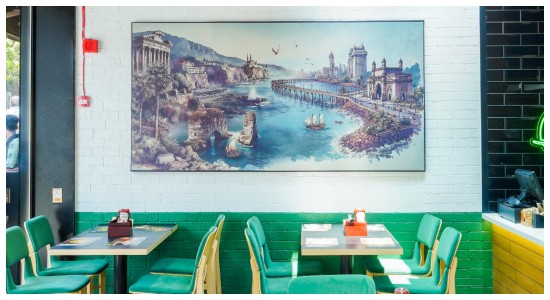
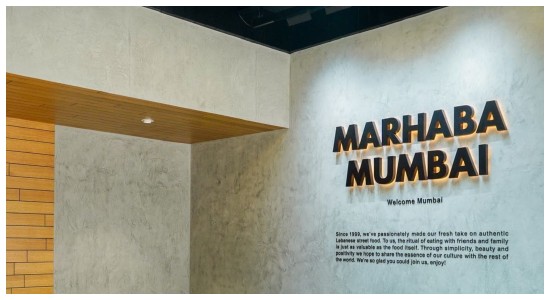
The Major Challenges
We have faced challenges in educating consumers about authentic Lebanese cuisine and how it stands apart from what's commonly available, along with some logistical hurdles. “But for me, it's all driven by passion. I see these challenges as opportunities to innovate, elevate the brand, and push it beyond expectations. Every day is a chance to build something bigger that’s what I believe in.” pointed Nath.
Views on QSR Space
The QSR space seems so appealing to bring to the Indian market. They try to bring in a large number of customers at a low-ticket price. And so, that's why bringing a QSR to India was something that I really wanted to do.
Differences in Indian and UAE Market
The biggest difference between Dubai and India lies in scaling and operations. "In India, you're catering to a larger audience with lower price points, aiming for broader reach. Dubai, on the other hand, tends to be more niche. But both markets share a deep passion for food. Mumbai has lot of food lovers, but franchising here made us realize on how seriously people take their food and flavours here," added Nath.
Operationally, India is more complex. We have launched three outlets along with a central kitchen in Mumbai, which came with challenges—from managing deliveries across the city’s traffic to navigating the dynamics of India’s highly active delivery platforms. Despite the differences, the shared love for food in both markets makes it all worthwhile.
Expanding in Indian market
We have expansion plans in South Bombay as we have got a lot of customer feedback as well that they want this to be brought to a grid in South Bombay. So, in terms of immediate expansion plans, we have these plans and as we are not in malls, we would like to have our presence there.
Opportunities for us are quite endless. Certainly, New Delhi is something that we've looked at. Right now, we are focused more on Mumbai and want to make it a success. For eg: Kala Ghoda in Mumbai is the place that we've been looking to open up an outlet for a long time as it could attract many consumers.
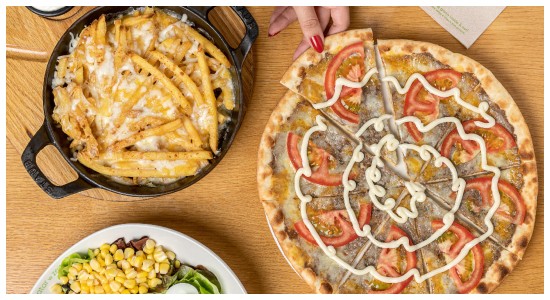
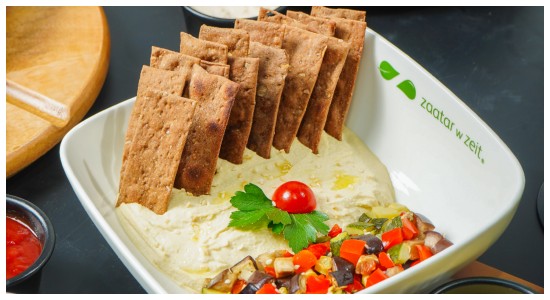
The Trends you foresee
Delivery dining has grown massively over the last decade. What was once secondary is now a key channel—especially in cities like Dubai, where a significant share of our orders come through deliveries. We’re constantly reimagining the dining experience, whether in-house or at home, ensuring exceptional quality and service across both. Health-conscious dining has increased over the years. Our USP lies in offering authentic cuisine. We serve clean and healthy ingredients—without compromising on taste.
Dine-ins and delivery ratio
The brand has recently opened for the deliveries. "We want to sort of educate our customers on before we opened for the same. People should visit and experience of our food. Because a lot of people may have heard about our brands, there might not be a lot of people that have actually tried our brand. And so, to give them the most authentic experience, we have to focus on delivery with utmost care as well, " mentioned Nath.
Views on Authenticity of food
To me, authenticity in food means staying true to and respectful of the culture it comes from. One of the biggest surprises I faced in India was the lack of authenticity in Lebanese cuisine. I once visited a so-called Lebanese restaurant that had biryani on the menu—that was a clear red flag. Biryani simply doesn't belong in traditional Lebanese cuisine
At Zaatar W Zeit, all our ingredients, spice mixes, and recipes come directly from Lebanon. Our R&D is rooted there, and every dish reflects the flavours and traditions of Lebanese cuisine. We honour the culture by serving food that’s been thoughtfully developed by a Lebanese team, staying true to its origins in every bite.
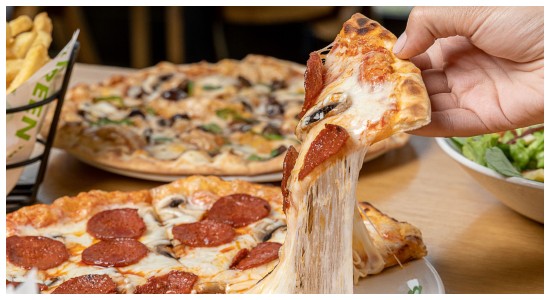
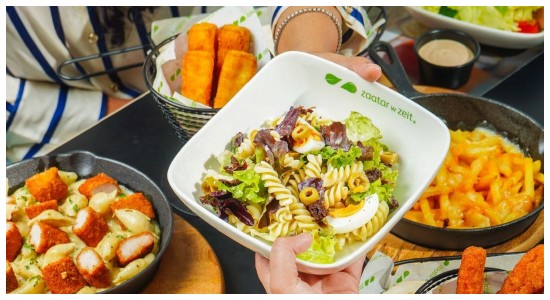
Views on Winning Three Michelin star
It was a great moment for all of us. It’s not only just the representative of food, but representative of an entire nation within our food, being the first Indian restaurant to do this, to change the perception, the global perception of Indian food, which is what we set out to do initially when we started that was the aim. People can think of Indian food in the same elegance as Japanese or Italian. That was really the goal for us.
This third one really marks a big landmark. Very few restaurants out there to have the greatest honour to possibly receive the third Michelin Star. So, the reaction of finally accomplishing what we set out to do when we first opened up these restaurants was amazing.
Learnings over time
Growing up, seeing dad’s passion on fnb sector and business really motivated me. So, if I can emulate, even at a 10%, it would be something that I would be proud of.
"The way he's super close to his team and able to build a team that is so close-knit, who works so well and efficiently with each other is something I admire of. Especially even operating across multiple countries, the way they communicate with each other and operate smoothly as it’s a skill to look forward to," noted Nath.

Actor-turned-entrepreneur Khushank Arora seamlessly blends his two passions—acting and hospitality. The first chapter of his career was dedicated to the screen, where he took notable roles in popular Indian television series such as Miley Jab Hum Tum (Star One), Behenein (Star Plus), Maan Rahe Tera Pitaah (Sony), Yeh Ishq Haaye (Star One), Santoshi Maa (&TV), and Yeh Hai Chahatein (Star Plus).
In 2019, Khushank made a bold pivot, turning his full focus to the hospitality industry. Despite having no formal culinary training, he embraced the journey as a self-taught entrepreneur, driven by passion and an unwavering commitment to excellence. In an exclusive interview with RestaurantIndia, Actor Khushank Arora, Founder of King Kraft Group discusses about his journey, new project, challenges and much more.
Venturing into Hospitality
Driven by a passion for crafting meaningful dining experiences, Khushank aims to build distinctive concepts that leave a mark in the ever-evolving F&B space. He launched his first venture, ‘Same Place, Same Time,’ in 2019, setting the tone for his journey as a hospitality entrepreneur.
His second project, Zeki was launched in April 2025, located in a modern-day mud house in Andheri West, Mumbai. Zeki offers a refined take on Modern European and Mediterranean cuisines, paired with a bold cocktail-forward bar program. The space reflects Khushank’s commitment to thoughtful storytelling—through flavour, design, and atmosphere.
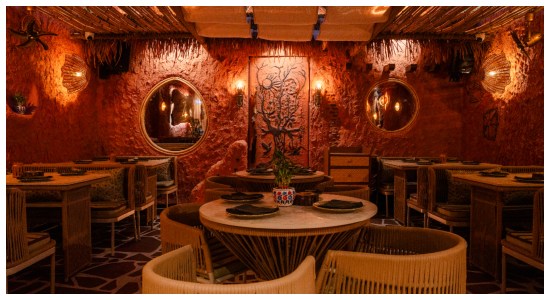
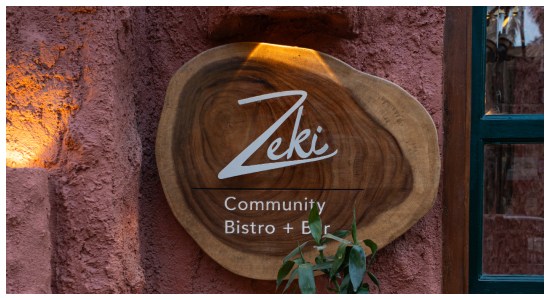
Why Zeki?
Zeki is derived from the Turkish word meaning “intelligent,” “wise,” and “clever,” is envisioned as more than just a bistro and bar—it’s a gathering space with soul. Designed to foster a sense of community, Zeki invites guests to step away from the urban rush and into calm, welcoming haven.
“We are a community bistro bar; our purpose is to bridge people along, tap into their senses and emotions. Our tagline is ‘Gather, Savor’ and belong,” added Khushank Arora.
What’s Unique about it?
The 60-seater space, featuring both indoor and outdoor areas, brings Khushank Arora’s vision of a refined yet functional dining destination to life. “At the heart of the interiors, a striking mural of a ‘mushroom goddess’ symbolizing Earth’s nurturing spirit anchors the room, radiating warmth and wonder. This focal point is complemented by a bar carved from a single monolithic stone, adding a raw, sculptural element to the space,” pointed Arora.
The ambiance is grounded in a soothing terracotta palette, setting the tone for a sensory dining experience. True to its ethos, the space is built using eco-conscious materials such as terracotta clay, rice husk, dried grass, banana fiber and membranes, and Bali cane—all thoughtfully woven into the cob structure and handcrafted furniture, creating a space that’s both sustainable and soulful.
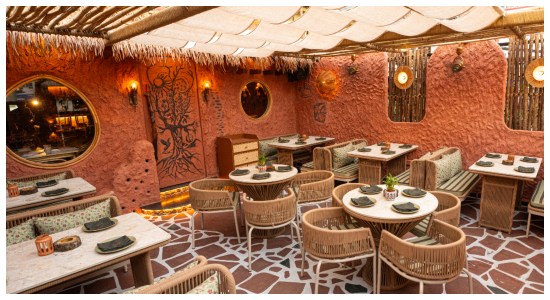
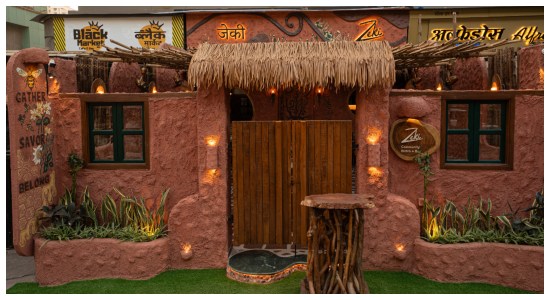
The Target Audience
Our target audience is 20-45 age groups, and we are not targeting above 45yr old. “We are an upscale casual dining restaurant and focuses on being affordable, so the pricing is Rs 1200 for two people. We want to provide sense of value for money,” noted Arora.
What’s in the Menu?
Rooted in European and Mediterranean culinary traditions, the menu is curated by Chef Consultant Vidit Aren. It celebrates the beauty of simplicity with flavour-forward dishes crafted from locally sourced, seasonal ingredients, often rustically roasted or grilled to bring out their natural character. Designed around communal dining, the menu invites guests to share not just plates, but cultural moments and collective experiences at the table.
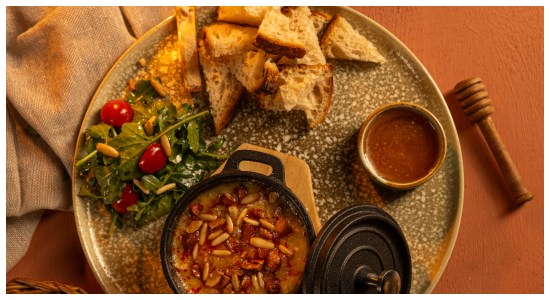
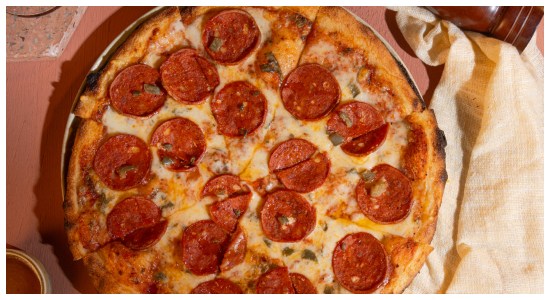
Gather for cocktails
The bar program at Zeki unfolds 10 potent cocktails, crafted with the nuances of modern mixology such as homemade infusions, and clarified and fat-washed derivations.

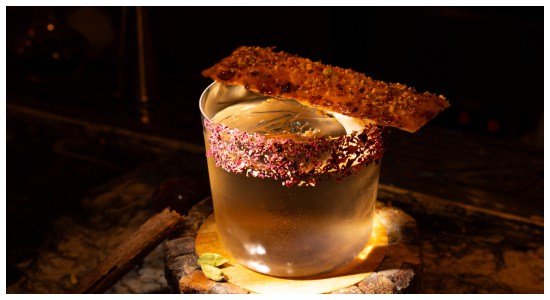
What’s New Coming up?
Arora’s third venture will be Sarabi in Vagator Goa. This is an experiential dining space which will be launched in September. Sarabi is derived from the African continent. Sarabi is a famous name from the movie, ‘The lion king.’ Simba’s mother’s name was Sarabi.
She was the queen of the jungle. While Sarabi means illusion. The menu in Sarabi will be focused on progressive fusion plate and it’s completely different from zeki. Talking about trends, Arora said, “We don’t go by the trends; we want to come up with something new which stays.”
The Challenges
Licensing issues and staffing was one of the challenges. And building a brand to shape up as your vision is a challenge as well.
Highlighting on his views, Arora shared, “If we don’t get someone as same vision in our team, we instilled with the confidence and train them as per that. We have a specific KRA which we follow, it’s there for every employee. We do follow the SOPs and believe in having an equal blend of tech and human both. “
Celebrity favorites in Zeki
Arora’s Favourites is in the menu. Baked Brie, Swiss Cheese Fondue, 2 Days Air Dried Roast Chicken Leg, Community Boards are unique and his favorites. In Bar menu, Citrus Caravan, Earthern Whisper and Mud stone are my personal choices.

With over 20 years of culinary expertise across leading global hospitality brands, Chef Amit Dash has carved a niche in India’s luxury dining scene. As the Multi-Property Executive Chef for The Westin Gurgaon, New Delhi and The Westin Sohna Resort & Spa, he seamlessly blends innovation, wellness-driven cuisine, and operational finesse.
An alumnus of IIHM Kolkata, Chef Dash’s illustrious career includes key roles with Taj Hotels, ITC Hotels, Marriott International, and Atmosphere Hotels & Resorts in the Maldives. His leadership across two distinct properties reflects his strategic vision, commitment to sustainability, and talent for building high-performing teams—continually setting new standards in guest experience and contemporary hospitality cuisine. In an exclusive interview with RestaurantIndia, Dash shared about his culinary journey, technology, authenticity, sustainability and much more.
Consistency and Diverse Cuisine Offerings:
Chef Dash highlighted the diverse culinary offerings across the ten F&B outlets spread between the hotel and resort, each celebrating a unique cuisine. Personally inclined towards Italian and Asian flavours, Chef Dash shared that the hotel features an all-day dining restaurant with global cuisine and wellness-centric options, an Italian restaurant showcasing a seasonal menu crafted by an expat chef, a Pan-Asian restaurant led by another expat chef, a lively bar, and a modern Indian dining space. At the resort, guests can explore a concept-driven Asian restaurant, a multi-cuisine coffee shop, and a bar serving curated small plates.
Zero Waste Cooking Approach:
“We focus on 100% zero waste cooking and are implementing the Vinno system, an AI-based technology to track and reduce food wastage. They also emphasized the following on production charts to control ingredient usage and minimize waste,” noted Dash.
Contribution by Expat Chefs:
Chef Dash explained that the expat chefs collaborate with the team, bringing international experience while adapting to local needs and guest preferences, offering flexibility and customization.
Team Building and Motivation:
“I have 235 staff reporting to me across both the properties and focus is on frequent interaction, team-building exercises like cooking competitions, involving team members in menu creation, a buddy system for new joiners, regular sessions, and an open-door policy to foster motivation and address concerns,” added Dash.
Meaning of Authenticity in Food:
He stressed on the importance of adhering to the original preparation and taste of dishes, citing butter chicken as an example, while acknowledging some blending of cuisines in specific contexts.
Evolving for Experience-Based Dining:
We focus on creating a holistic experience in all restaurants, including decor, service, music, and themed brunches. He elaborated about the authenticity brought by expat chefs, live cooking elements, and the unique ambiance of their open-air restaurant with retro music and modern Indian food, along with pop-up events featuring guest chefs.
Focus on Sustainability:
Chef Dash reiterated their use of the on-site garden and sourcing local seafood and meat within a 50 km radius. He emphasized that their menus in the resort and for in-room dining are largely based on sustainable ingredients, with many dishes having a sustainability-focused story.
Technology in the Culinary:
Chef Dash highlighted multi-sensory dining, conscious indulgence with transparent sourcing, and AI-driven smart kitchens with live cooking as key aspects. He mentioned about the recent launch of a teppanyaki grill as an example of live cooking.
Challenges in Managing Multi-Property:
The difficulty of attracting talent in the remote resort location is a challenge. “Our solution involved hiring local villagers, such as two aunties who make parathas, showcasing local talent and authentic cuisine to guests. For the hotel, stewarding manpower was a challenge, addressed by partnering with agencies for sourcing,” commented Dash.
Popular Trends:
Modern Indian, Modern Japanese, Teppanyaki, and Korean food are the current popular trends.
New Innovations:
Chef Dash mentioned having a diverse martini menu at the resort and offering zero-sugar cocktails, though they are not highly ordered. Western Gurgaon has a "Western Eat Well" concept featuring pest-free, organic, and vegan dishes.
Balancing Creativity and Presentation:
Creativity plays an important role. Thorough training and trials are conducted before launching a new menu, including identifying appropriate crockery ware which ensures creativity and presentation both.
Menu Development Process:
Specialty restaurant menus are changed bi-annually or tri-annually based on seasonal availability and menu engineering analysis, wherein we consider the popularity and feedback of existing dishes. “We prioritize using seasonal and local ingredients, with approximately 50% of Italian products being imported and the majority of ingredients for the Asian restaurant sourced locally and sustainably,” pointed Dash.
Future of Culinary Industry and Talent Retention:
Chef Dash believes that AI is a significant trend but emphasizes the continued importance of practice and patience for young chefs. He stated, "For talent retention, they are reiterated providing opportunities, guidance, and regular feedback, celebrating milestones, and organizing team outings."
Signature Dish Preferences:
Biryani, making stuffed ravioli and a Kolkata Chinese dish called tanga are my signature dishes.
3 Essential Kitchen Tools:
Knife, a tasting spoon, and mobile phone for staying updated on trends

Aavika Chhawchharia, the founder and creative force behind Honey & Dough, turned her dream of opening a cozy neighborhood café into one of Delhi NCR’s most beloved café chains. In an exclusive interview with Restaurant India, she shares about her journey, vision, venturing into new business, expansion and much more.
What’s in a Name
I wanted people to resonate with the name. The ingredients which we use mostly in the cafés are honey and dough. So, we realized why not we keep that as a name. Earlier, it was a bakery concept, which we converted it as a restaurant model. Now, the name is Honey & Dough Café and Patisseries.
The Vision & Goals
It’s simple yet heartfelt: to create warm, inviting spaces where people could relax over a perfect coffee, enjoy comforting bakes, or savour wholesome meals—much like the charming cafés found along the cobbled streets of Paris or Rome. Today, Honey & Dough reflects that vision, growing from a single South Delhi café into a thriving network of vibrant, personality-filled spaces.
What’s your uniqueness?
We are always up with the trends and new concepts. We make everything in-house including sauces as we don’t use any preservatives. We are coming up with labubu coffee soon. We have our own supply chain and have temperature vans that ensure that the quality is as per our standards.

Maintaining Consistency & Quality
Our streamlined operations make expansion seamless. A dedicated Chef Trainer ensures all new chefs meet our standards, while a raw materials checker uses software-backed image uploads for quality control. Each outlet is led by a Head Chef and supported by clearly defined team roles—from hiring to daily tasks—so staff is well-prepared when new locations open.


Challenges
The major challenge is hiring. To get good people on board was a challenge. It took a while to get good people. Once we were established, people approached us. Good location is another challenge as rentals are high, and licensing takes time.
What’s New at the Biz
The brand has launched two new sub-brands¬- Catering by Honey and Dough, Say Cake by Honey & Dough.
Catering by Honey and Dough
We have launched these few months back. All our business is inter-related. We have done 4-5 caterings till now. We saw a gap that there are hardly any caterers who sell in reasonable price for small parties, high tea or anything. We are focusing on box meals to cater to office parties or birthday parties.
Say Cake by Honey & Dough
We have come up with the new brand ‘Say Cake by Honey & Dough’ where we sell customized and personalized cakes. It’s a cloud kitchen model. We are available on Zomato and Swiggy.
Expansion Plans
With our production facility based here, Delhi offers a strong potential for growth. Our focus is to expand within the region—covering areas like Faridabad, Chandigarh, and Greater Noida—before moving into other cities. Expansion will happen in phases, with a goal to open 25 outlets in Delhi before entering Maharashtra. By the end of this year, we aim to launch 5–10 new outlets across Delhi NCR, through a mix of franchise and bootstrapped models.
Trends to see
Matcha is on trend; it’s a booming market. It’s high on antioxidants. There’s a room to grow more in this segment.
Tips for restauranteurs
Be consistent, give your best. It’s a competitive market and you have to be motivated to work more with lots of passion and dedication.

Keish Hospitality, founded by Niketa Sharma and Dilip Rawat in 2021 has quickly become a driving force in Mumbai’s hospitality landscape. Known for its creativity, quality, and vibrant dining experiences, the group is steering Keish Hospitality into its next era - defined by innovation, expansion, and national growth.
With a dynamic portfolio including The Thane Club, Blah BKC & Santacruz, Vivi Italian, South Stories India, Masaledar, and Magna Bar & Kitchen, the brand is now set to unveil an exciting concept ‘Iti’, a bakery brand, focused on hyper-local ingredients. In an exclusive chat with Restaurant India, Niketa Sharma, Managing Director of Keish Hospitality, spills the bean regarding her latest bakery venture ‘Iti’ in Mumbai. Excerpts:
What’s in the Name?
Iti is a common word used in Sanskrit which means ‘wanting more.’ We named as ‘Iti’ because we want people to try more items and want more from our brand. This name will resonate with the audiences.
Why Iti?
Iti is a clean sustainable Indian café, which will be a mix of café and retail gifting concept based on hyper local Indian ingredient-based desserts and savories. Whether it is the French patisseries or bakery or bread or the cookies, we are using modern techniques to redefine the bakery industry. Iti is an Indian farm to fork and clean-eating oriented brand where we are bringing back the Indian flavours in a fusion form.

 (Representational images)
(Representational images)
What’s on Offer?
We have Gun Powder Podi Masala Bagel with Mirchi & Curry Leaves Cream Cheese in it, Magic Masala Bagel with Thecha Cream Cheese in it, 70% Calibu Dark Chocolate Truffles with Filter Coffee Flavor, Parle G Biscuit Crumble with Masala Chai Flavoured Truffles, Triphala and White Chocolate Truffles. We are doing Ukidiche Modak Bapka, the filling for this will be authentic filling of modak, and if you steam this bapka, it will exactly taste like steamed modak, amongst others. We are not using refined sugar; we are using jaggery in our products.
‘Iti’ a creative shift or a challenge?
We have been working to launch this brand for a year now. I have been studying about flavours and told my chefs about this idea. We brainstormed a lot to come up with various dishes and did a lot of tastings to understand how these fusion tastes, works. Right now, we have done 70% of the trials. The packaging will be extremely sustainable like hyper local wood being used; we are focusing on re-usage of things.
What will be the Shelf life of your products?
We are trying not to use any preservatives. The shelf life for buns, breads, croissants will be of 3-5 days, while the hamper-based product will have 15-30 days shelf life. 80% of the products will be vegetarian and 20% will have eggs.
Why Bakery as Biz?
Being a passionate home-baker, I wanted to bring uniqueness to the platter and that’s how Iti came to the picture. We have 15-20 items in sweet section. My target audience will be millennial and Gen-Z and even families.
The Investment
We have invested more in R & D, menu and the branding and we will be investing more in QSRS and other format outlets.We are focusing on 3 models currently. In the phase 1, we will be focusing on Retail and hampers, phase 2 will be QSR, and phase 3 will be Café model. The brand is planning to open their first outlet in July.
Trends you Foresee
- Focus on Seasonal menu
- Bakers are moving towards ingredient focus baking Eg: essence or vanilla beans being added

Chef Balaji Balachander, fondly known as Chef Bala, is a seasoned culinary talent with rich experience across renowned kitchens in India and abroad. A graduate of the Asian Institute of Hotel Management, he began his journey at Taj Coromandel’s iconic Southern Spice, mastering Indian cuisine. He later shaped menus at acclaimed establishments like Benares in London under Michelin-starred Chef Atul Kochhar, and led culinary operations at Meat and Wine, a premium London steakhouse. In 2010, he launched Carom for D&D Hospitality Group, showcasing his refined approach to authentic Indian flavours with a modern twist. In an exclusive interview with RestauarantIndia, Chef Bala shares about his journey, expansion, launching new cloud kitchen brand and much more.
How Salt Started?
Chef Bala returned to India in 2013 to begin a new chapter as an entrepreneur. Teaming up with his friend and fellow Taj alumnus Chef Gowtham Balasubramanian, he co-founded Blue Planet Foods Pvt. Ltd., which led him to start ‘Salt – Indian Restaurant & Grill.’ In addition to Salt, Chef Bala and his team have also developed Pandikadai, a quick-service restaurant specializing in Chettinad cuisine, and Dhishoom, a vibrant, fast-casual dhaba experience.
What’s in a name?
Initially, we thought of keeping ‘Bodhi’ as the brand name but then we realized ‘Salt’ will resonate with the audience as it goes well with the cuisine. We don’t want our restaurant to have the regular Indian restaurant name. That’s why we named as ‘Salt’ as it is easy to remember as well.
The Brand USP
Known for its modern take on authentic Indian flavours, Salt redefined the contemporary Indian dining. We have pan-Indian exposure in our menu. Our menu is flavorful; we use recipes from north, south and west and bring the flavours from there.


Target Audience
80% of our outlets are in malls in Bengaluru. Indians and expats love our menu, be it family audience or youngsters. We have two different concepts – meal box concepts and corporate menu. We have buffet on table experience for corporates. We believe in making ourselves better every time a customer return to us.


The Innovations
Innovation and storytelling go hand-in-hand. We come up with black board specials. We have same menu in all our locations but in Chennai we focus more on South-Indian cuisine. We have come up with promotions for specific dishes and we create a data of which was the most ordered dish in all our outlets or on specific locations which help us in innovating. We change the ala-carte menu once a year.


Venturing in to cloud kitchen
India Canteen is our cloud kitchen brand which we will be launching soon in Orion Mall, Bengaluru. We will be serving Combos, Small plates as the focus is on quick eats. The major target is to expand our cloud kitchen brand in malls.
Targeting Right location
When we started, we weren’t sure of where to expand and where to push ourselves. As we grew, we realized that we targeted the right location which helped us in getting more loyal customers, which helped in maximizing profits. 80% of guests are gained in dine-in format, while 20% of them are in deliveries. Indian food in delivery platform is a huge market. We are exploring on how to increase our deliveries.
The Challenges
Staffing is one of the major challenges. And it is difficult to make them understand about what we do. Our attrition level is good. When we enter a new market, making a name in that city is a challenge as well.
The Business strategies
Marketing plays a major role in promoting the brand. As we are growing, the important focusing is on making the brand identity in various cities. Guest experience and feedback are really important factor to look on. The food you serve is the one they remember for longtime for which they visit us again and connect with us next time.
Expansion Plans
We will be expanding ourselves in various cities like Chennai, Hyderabad, Delhi, Mumbai and Pune. We have plans to open 5-6 outlets by end of this year. The brand has plans to merge with Toscano soon under Red Apple.
Lessons learned/ key takeaways
• You are your first roadblock
• Sometimes, you feel this is enough, and think to give-up easily. Hardly, anyone think with patience. A proper guidance is really needed to grow to give a clearer picture.

Avantika Sinha Bahl is the creative force behind a diverse portfolio of brands, including Kampai, Arigato, Basque, and The Cocktail Collective—Dehradun’s largest cocktail festival, which hosted its successful inaugural edition at Basque in April 2025. Her deep appreciation for global culinary traditions empowers her to curate memorable dining experiences that connect with a wide and discerning audience. In an exclusive interview with Restaurant India, Bahl shares about her journey, expansion, soy sauce project and much more. Excerpts:
The Entrepreneurial Journey
Avantika’s love for Japanese culture and cuisine laid the foundation for Kampai. Inspired by her travels to Japan, she was drawn to the country’s rich traditions, refined culinary techniques, and the depth of its flavours. This connection led her to conceptualize Kampai as an immersive dining experience that brings the authentic spirit of Japan to India. Later on, she launched Arigato and Basque.
All her restaurants offer unique experiences as they operate under different concepts. Basque, in Dehradun is located near the large orchard close to the mountains. On the ground floor, they have 4 kitchens of various cuisines i.e. – Indian, Asian, Italian and Bakery. The restaurant is of two floors. The first floor is a bar where they offer specialized cocktails, curating experiential concept with community-based event and musical gigs. While the name ‘Arigato’ is inspired by a Japanese word which means ‘Thank you.’ It’s a high energy concept so this name was apt for it.




The Brand’s Unique Selling Point
“For us, the major USP is the quality and authenticity of our concept. We are stuck with our concepts since we started,” she pointed by adding that she wants to cater to a multi-dimensional audience. And that’s where the brand stands out. “Our vision is to create unique concepts for each brand. We strive to provide the highest quality,” she further pointed.
Views on Beverage culture in India
I have seen the evolution of beverage over the years. Flavour profile and tech-driven products have increased a lot. Cocktail program really helps, and it is a growing concept. People are conscious about zero-sugar cocktails or low-calorie cocktails. “We are doing 5 course menus where we are pairing it with Sake. We are experimenting a lot in textures,” she said. For Basque it’s all about botanicals as they have done a botanical concept.
The Future of Theme Bars in India
“Today’s diners are increasingly well-travelled and culturally aware. They seek out specific cuisines and are drawn to experiences that feel truly authentic. Immersive dining is in demand; guests want to feel transported, as if they've stepped into an entirely different city. The trend now is clear: focus on a single, well-executed concept that tells a story,” she mentioned.




Soy Sauce Project
“I have built a strong relationship with the Japanese Embassy, and thanks to Kampai, we’ve cultivated a significant Japanese clientele. This connection led us to collaborate with Japan International Cooperation Agency (JICA), to explore the feasibility of producing soy sauce in India,” she added as she has spent 10 days at a small town in Japan, undergoing hands-on training at a traditional soy sauce manufacturing unit. Following this, she launched a 10-month pilot project in collaboration with JICA, the Japanese Embassy, and a renowned Japanese company, Chiba Shoyu. The objective was to assess whether Indian conditions could support the production of authentic Japanese soy sauce.
“The result was a high-quality product that met the standards set by JICA, the Japanese Embassy, and Chiba Shoyu. Encouraged by this success, we are now preparing to launch full-scale manufacturing operations in India which makes us the first to produce authentic Japanese soy sauce domestically,” she added.
Expansion Plans
“There is lot of potential in Tier-2 cities. We are planning to expand Embassy. We will be opening Kampai Café. It will be an instagrammable concept. The café will be all-day café concept where we will have a live cooking concept,” she said by adding that she plans to open 3 more restaurants by end of this year.
Tips for young entrepreneurs
Passion is a big part for what you do. If you are not passionate, it will be challenging. One needs to constantly evolve and innovate to stay in the market.

Chef Goutham Balasubramanian’s culinary journey began at a prestigious 5-star hotel in Chennai, where he honed his skills and developed his passion for the hospitality industry. He later became one of the pioneering chefs at The Leela in Bangalore, gaining invaluable experience in fine dining and operational excellence.
In 2008, he co-founded Toscano along with Jean Michel Jasserand, which has become a benchmark for authentic Italian cuisine in India. Over the past 16 years, Toscano has evolved from a quintessential Italian restaurant, Pizzeria and Wine Bar in Bangalore to a celebrated presence across India, with successful outlets now established in Chennai, Hyderabad, Pune, Mumbai, and Delhi. In an exclusive interview with Restaurant India, Chef Goutham spoke about his journey, challenges, expansion plans and much more.
What’s in the name?
Toscano takes inspiration from the Tuscany region of Italy, where vineyards and olive groves flourish. So, the name ‘Toscano’ derived from Tuscany. The wine collection that Tuscany offers is something unique and the Italian food is amazing there. We wanted to bring that to India, so we came up with this concept which is a wine bar and serve the authentic original flavors of Italy.

Brand’s Vision and Mission
Our vision is to build a loving neighborhood restaurant. Right now, we are building smaller restaurants of 40-50 covers. While our mission is to serve great food, humble service, being honest, focusing on people. As we grow, we focus more on being simple. We don’t follow the trends. We focus on long term goals like quality, consistency and quantity among others.


The Flavourful Burst
Toscano offers a delectable fare blending the delicate flavours from ingredients procured locally and imported from Italy to present traditional and authentic Italian; as they source the finest balsamic vinegar, cheeses, pasta, risotto and olive oils. Moving beyond pizzas and pastas, Toscano serves Italian cuisine, offering a range of provincial specialties from a country where gastronomy is a fine art in each region.


Pairings of Food with wine
We do pair wine with food. We have wines from various cities and regions and pairing them with specific food give the ideal dining experience. We guide our customers about the pairings and give suggestions as they prefer.
The Ambience and Decor
The ambience and décor are different in all our outlets. While the pricing changes as per the locations and there are few changes in the menu. We also have live-music in 14 outlets to give unique dining experiences to our customers.


Quality & Consistency
We have a separate hygiene and audit department which reports to the head of audits. We are very particular about our safety. Quality and consistency can be achieved with right people. We are adapted to AI based training and on top of it we have certified trainers in place. Cluster approach is needed on training and standardization.


Market Trends
• Customers these days are health focus. They are focused on ingredients which they are consuming. They are educating themselves and curious to know and learn about them.
• Healthy eating is a trend. Focus on protein-based salads are high.
• White spirits are appreciated; more of gin bars are in trend
The Business Aspects
20-25% of the menu we have is low calorie menu. We do conduct wine workshops, collaborations with wine companies and much more. We have 30-33% business coming in from the beverage's menu. While 77% of the business are dine-ins and 23% are in deliveries.
The Challenges
Building a right set of teams is a challenge. Every city has different rules and restrictions, so we have to follow that. Finding a new location is always a challenge as location plays a major role in driving the customers.
Expansion Plans
Currently, we have 21 outlets, and we are bootstrapped model company. We will be opening 5-6 outlets by end of this year. We are expanding in Chennai, Delhi, Mumbai and Hyderabad.
Message for Aspiring Entrepreneurs
Get your fundamentals set and focus on it or otherwise it falls apart. We have to be patient and invest in right people.

Chef Abhishek Gupta has been associated with some of the country’s most prestigious hospitality brands, including Taj Hotels, The Oberoi Group, Marriott International, Hyatt Hotels, and more leading pre-opening projects, launching new restaurants, and curating innovative menus.
Apart from recently working in a Two Michelin Star & World’s Leading Best Restaurant “NOMA” with Rene Redzepi, in Copenhagen, Denmark, he has rubbed shoulder with renowned names like Zahie Tellez from Mexico, Juan Pablo from Peru, Ramon Salto of Spain, Adam from Poland, Austrian Dieter Lengauer & German – Marcus & Dirk Holscher.
In an exclusive interview with RestaurantIndia, Chef Abhishek Gupta, Executive Chef, The Leela Ambience Gurugram discussed about the importance of quality, sustainability and much more. Excerpts:
His Food Philosophy
Respect for produce & its existence is far more important to me than anything else. One should evolve with time, think creatively, adapt flavors & deliver gastronomy.
Consistency and Quality
Every restaurant has its own identity, standardized menu based on guest needs and brand identity. We have a separate set of chefs for every restaurant for all the specialized food or concept. I have crafted the menu for all the restaurants. Every six months, we enhance the menu and change the menu with new innovations or additions. We need to upgrade ourselves in the changing times. One needs to travel, read and understand about various cuisines which help in developing the knowledge as well.
Sustainability is Key
We have opened a hydroponic greenhouse by the poolside in our hotel. We grow our own greens in the water. We have a glasshouse and have a 4-acre organic farm. In Manesar, we have our own farm. We have opened Forest-View Deck Restaurant by the poolside that’s based on seasonality. We work on lot of these, so our contribution is visible when it comes to sustainability.
Importance of Zero Waste
We need to understand and analyze the waste of our kitchen. When we study the waste, we get to know what can be reduce as a wastage and what cannot be and what can be reusable.
We make stockings from what all we can and then the remaining part we put in waste compose machine from wherein we get the manure which we give to the horticulture team in our hotels. In sustainability, we believe in 3 stages- reduce, reuse and recycle. Reduction comes when you know about the wastage in the kitchen.
Challenges in Fine-dining restaurant
Getting skilled labour is one of the major challenges and everyone has their own pace of work. We need to enhance and ensure it is as per the standards set by our hotel. Getting basics right is really important, then building on the dishes from there. The biggest competition is we, our self. So, we review ourselves every month and do check what’s working or not working for us.
On-going food trends
People are moving towards creating their own signature dishes. People are taking a lot of risk when it comes to restaurant dining. People are conscious on how they want to be innovative. They are more focused on getting right plates for serving the food: eg- wood, porcelain or ceramic.
Three tools you can’t live without in the kitchen
Tasting spoon, Hand blender and Mortar pestle
Chef’s Signature Dish
“SEASONAL 42” is my signature dish in which a plate with local Indian ingredients that tricks you with taste, textures, flavours and a dimension of thoughts. So, all the 42 variety of ingredients cooked into unified way. It’s inspired from a Chapter I remember as “Cuts of Vegetables” in my textbook, Thangam E Philip, gave rise to an idea of creating a dish with vegetables, its varied cuts and we felt upgrading it to elegance.
Message to Aspiring Chef
Read a lot of books and spend time in the kitchen learning all aspects of cooking. If you love what you cook, that’s the best thing a chef could ask for. Try new food, go to new places and experiment in your kitchen.

Dining out meant eating good food few years back and that was the benchmark. Today, it's so much more layered. Diners are conscious. They ask questions. They read ingredient labels. The pandemic accelerated this shift, but the roots were growing long before. With the OMO Soul Food Community, Rajan Sethi, Director at Bright Hospitality, leaned into this evolution. “It’s not just about serving good food; it’s also about being transparent, ethical, and responsible. The industry has matured and honestly, it's been exciting to grow with it,” he shared. Excerpts:

Building Experience-driven Places
I’ve always believed a restaurant should do more than serve. You should walk out with a feeling, not just a full stomach. At some point, I realized people don’t just remember what they ate but they remember how it made them feel. This inspired us to build spaces that spark nostalgia, start conversations, and feel like an extension of someone’s memory. We wanted to create a space where people could slow down, reconnect with food, and feel grounded. Every brand under Bright Hospitality is experience-first and OMO is just the most emotionally and ideologically charged expression of it.
Creating Uniqueness
Our USP is soul. Every brand under Bright Hospitality has its own heartbeat. We don’t replicate, we reimagine. Whether it’s OMO’s deeply intentional sustainability or Ikk Panjab’s emotional connection to heritage, we build from the inside out. We’re not in the F&B business; we’re in the business of stirring emotions through food. And that’s what keeps us ahead, we don’t chase trends, we create spaces people feel connected to.
Running a Multi-brand Venture
It’s like managing a symphony. Each brand plays its own instrument. Some are loud and bold like AMPM Coffee and Cocktail bar, others are nostalgic and poetic like Ikk Panjab, and then there’s OMO Soul Food Community, which is introspective, slow, and meaningful. I’ve learned to respect each brand’s rhythm. I try to avoid imposing any single leadership style across the board. I learn to listen more than I dictate. And most importantly, I’ve built a team that truly owns the vision. Decentralization and strategic delegation have been game-changers.

Sustainability is the Way Forward
OMO’s biggest innovation is its philosophy. We didn’t launch a product but we launched a way of thinking. The fact that every element, from Ngarum coffee to our Wild & Raw green bar, is curated to be climate-smart, traceable, and nurturing, that’s the real win. We’ve shown that comfort food can coexist with sustainability, that luxury doesn't need excess. The goal was never to preach, but to quietly lead by example. I think we’re doing that, plate by plate.
High on Expansion
OMO was always meant to be a movement, not just a café. We’re exploring more cities, but with caution and conviction. Our core intent is to never compromise on sourcing, on philosophy, or on storytelling, so expansion will be slow, thoughtful, and collaborative. On the Bright Hospitality front, we’re also planning to scale AMPM and Anyday through tech-forward, scalable formats, while continuing to grow Ikk Panjab as a flagbearer of regional heritage and food nostalgia.

Preserving Heritage
To me, authenticity is when intention and action match. It’s when the story you tell is the story you live. At OMO, it means celebrating millets without necessarily making it a marketing spin. At Ikk Panjab, it’s about preserving heirloom recipes without unnecessary reinvention. Whether it’s the spices we source or the values we uphold, if it doesn’t feel true, we don’t do it. That’s our north star.
Tech-Infusion
We’ve always been quiet adopters of tech which is never flashy, but always future-facing. Whether it's using analytics to minimize food waste at OMO or optimizing delivery routes for Anyday, tech sits behind our operations, not in front of it. We let experience lead and technology support. But yes, digital dashboards, loyalty ecosystems, and intelligent sourcing are now non-negotiables across our ecosystem.
How can restaurant brands maximize success with an online ordering system?
At OMO, we’ve chosen not to enter the delivery space because the kind of connection we’re trying to build with our guests just doesn’t fit in a box. It’s about slowing down, being present, and engaging with food as an experience, not just consumption. But as someone running multiple brands, I absolutely see the value of online ordering for formats like Anyday, and sometimes, AMPM or Ikk Panjab. Guests should feel your brand even when they’re eating on their couch. Eco-conscious packaging and a clear, consistent brand voice can turn an online order into a memorable moment.
What three tips would you offer to home-grown restaurant chains?
- Don’t scale before you soul-search - Know who you are before you grow.
- Respect your roots - Your authenticity is your edge.
- Hire slow, empower fast - Your team is your first guest. Treat them with trust.

12. What five trends do you foresee that will change dining behavior in India?
- Regenerative menus - Going beyond organic to actually heal ecosystems.
- Functional dining - Food that serves taste, health as well as storytelling goals.
- Ingredient-led loyalty - Guests will follow brands based on where they source from.
- Multi-sensory spaces - Dining spaces that evoke emotion, not just fill bellies.
- Brands with a voice - Silent service is out. People want opinionated brands with heart.

Dessert Therapy is one of Mumbai’s luxury dessert dining restaurant chains founded in 2016 by brothers Nisarg and Harsh Shah who started their journey from home baking, venturing into first outlet in 2020. The brand grew entirely through word-of-mouth and organic growth on social media, offering high-quality vegetarian desserts without using palm oil, gelatine, or artificial colors.
In an exclusive interview with Restaurant India, Harsh Shah, Co-Founder, Dessert Therapy talks about their brand journey, innovations and much more.
Riding on Uniqueness
Dessert Therapy has redefined indulgence in Mumbai with 20+ varieties of cheesecakes, specialty desserts, sundaes, and a curated selection of rich chocolates, craft coffees, and iced teas. With outlets in Malad, Juhu, Bandra, Fort and Ghatkopar, the brand continues to expand, bringing luxury dessert dining to more locations. Each outlet is designed with a unique ambiance, offering a fresh experience at every visit.


What’s in a Name?
We feel desserts are therapeutic and it can calm your mind and soul that’s why we named it as ‘Dessert Therapy’ as it resonates with the audiences.
USP of the Brand
We add 30% less sugar in our desserts and make our base with less sugar as dry fruits and fruits have sugar content which we use for plating and filling or for presentations. The shelf life of our desserts is 4-5 days, and we don’t use preservatives. One thing is that we don’t sell the desserts from the display shelf.

Innovation is Key
We have our central kitchen in Borivali from where we make the desserts, and then we supply to our outlets where plating is done as per the requirement. Every sauce is prepared in-house.
For us, every recipe is a result of experimentation, precision, and passion for dessert innovation—whether it’s developing over 20 unique cheesecake varieties or crafting seasonal collections that resonate with Indian palates. We have monthly specials, other than that we keep changing the menu once in 6 months.


The Challenges
The main challenge was staffing and educating the customers. Choosing a right location was one of the major issues knowing that every location has its own set of challenges.
Top 3 dessert trends
• Quick desserts are gaining popularity. Eg: Strawberries with Chocolate sauce
• Innovations in French patisseries, Kunafa, Baklava is seen
• Healthier dessert options are on rise
Expansion plans
We are a boot-strapped company. We have plans to open our outlets outside Mumbai. It can be in Thane, Navi Mumbai, Bangalore or in Pune.

‘Love & Cheesecake’ or Poetry by Love & Cheesecake is founded by Ruchyeta Bhatia and Chef Amit Sharma in November 2012, with a major focus on introducing diverse cheesecake options to India, which then expanded to include the other desserts and the casual dining concept ‘Poetry.’ Growing organically without external funding, Love & Cheesecake now operates 23 company-owned outlets supplied by their central kitchen, emphasizing fresh, high-quality ingredients and unique product offerings like savory cheesecakes.
In 2016, Love & Cheesecake morphed their love into ‘Poetry’, a full-service restaurant, with its first outlet in Mumbai’s bustling suburb of Bandra. Poetry has now increased its footprints to 6 destinations across Mumbai. In an exclusive interview with Restaurant India, she shares about the brand identity, growth, expansion and much more.
How they started?
What started as a 200 sq. ft. experimental kitchen in 2012 has today grown as one of the Mumbai’s top premium Food & Beverage destination in two unique formats.
Ruchyeta met her business partner Chef Amit in Australia. Together, they decided to start the business. “The idea was to introduce a new dessert product line to India, as cheesecake options were limited at the time. So, we decided to venture in this segment which is unexplored by many.”

The Idea Behind the Brand Name
The brand name draws inspiration from the timeless essence of love. Bhatia emphasized their focus on consistency, quality—driven by a long-standing chef team—and a customer-first approach, with signature offerings and efficient delivery.
Love & Cheesecake operates 8 dessert-only cafés and is known for crafting edible dessert art, offering over 56 natural flavors of cheesecakes, cakes, and confections. It stands out as Mumbai’s only dessert café using pure Italian dessert cheese instead of processed whipped cream.
Bhatia shared, “When we launched Poetry in 2016, the vision was to create Mumbai’s most exquisite breakfast experience—featuring everything from specialty brews and cold-pressed juices to hearty salads, comforting mains, and indulgent desserts—all fresh, natural, and delicious.”
Growth over the years
Powered by the vision of founders Ruchyeta and Chef Amit, Love & Cheesecake is today a team of over 300 full-time adoring employees, has a dedicated call-center for seamless customer support and its own 8,000 sq. ft. central-kitchen from where it controls 100% of its production for both, Love & Cheesecake as well as Poetry.
Central Kitchen and Logistics
While the initial Bandra outlet had live cooking, Bhatia stated that all dessert and bakery items now come from a 20,000 sq ft central kitchen in Bandra. From there, they supply all their outlets using their own refrigerated delivery vans, maintaining control over their logistics. She highlighted their unique capability as a cake company to deliver any size cake within two hours anywhere in the city.
Brand's Approach to Healthy Eating
Ruchyeta Bhatia emphasized their focus on healthy ingredients since 2012, avoiding whipped cream and using 100% dairy. They noted their desserts are generally low in sugar and contain no preservatives or emulsifiers, with a short shelf life of 36 hours to ensure freshness. While they don't offer strictly "sugar-free" options due to concerns about sugar substitutes, they do have very low sugar or no natural sugar items.
The Innovative offerings
The innovative offerings include savory cheesecakes and unique flavor combinations in chocolates and cheesecakes like balsamic strawberry chocolate and bhut jolokia nutella cheesecake. They regularly update their menus, with new menus for Poetry every six months and new cheesecake flavors every quarter. The annual mango menu is also a significant offering. Their red velvet cheesecake is a signature product and was a significant innovation when they started.

Challenges Faced
Bhatia stated that running a business involves daily challenges related to staffing, personal bandwidth, and financial decisions. Their approach is to work hard and consistently solve problems. The major challenge was educating customers about the concept of cheesecake, as it was not mainstream in 2012.
Ensuring Consistency and Quality
Bhatia pointed that their long-standing and senior team of chefs, many of whom have been with them for over a decade and come from five-star hotel backgrounds, for maintaining consistency and quality. “They also have stringent processes at the store level, including codes on each slice to track its batch and freshness.”
Business Strategy
The focus is more on technology and building systems to strengthen their product rather than following trends, as the brand aim for long-term stability. Their revenue is primarily driven by dining (70%), with deliveries accounting for 25-30% (aggregators, not their own).
Marketing and Expansion Plans
The brand uses a mix of marketing channels but have historically kept their marketing spend very low (less than 0.5% of revenue annually), preferring to build the brand organically through word-of-mouth and product quality. Poetry by Love & Cheesecake plans to open nine new outlets in Mumbai and Pune in the next five to six months.

Started in 2016 with an idea of creating a warm and homely place serving great pizza where strangers would connect over pizza, Leo’s has become World’s 50 Best Pizza brand that knows how to get its pizza right, from day one. “I hoped people would come on dates, fall in love, get married and their kids would grow up eating our pizza and eventually come in with their friends. I can honestly say a lot of that is happening as we speak,” shared Amol Kumar, Founder at Leo’s Pizzeria for whom pizza became a fascination from the very childhood. In an exclusive interaction with Restaurant India, he talks about slicing out storm in Delhi’s dining out scene. Excerpts:

Every day is a New Learning
I cannot say that we are ahead or behind anyone. We just focus on what we do, we try to improve every single day. It’s almost 9 years now and I’m still making small changes and tweaks to the pizza hoping to make small improvements all the time.
You have been recognised amongst Top 50 Pizza brands in Asia-pacific. What has kept you going?
This recognition in itself is a huge motivator and keeps us going. Besides this, all the love we’ve received over the last 8 years, people coming back every week, every month is always the most heart-warming and makes us want to do better every day.
Quality over Quantity
We have expanded to only three outlets in last nine years as we want to focus on quality. Our immediate plans involve opening another outlet in Delhi within the next few months. Post that we will start looking at NCR as a whole or explore other cities.

Innovation is the Game-changer
We made our very own Pizza Lab, this is a temperature controlled room with different mixers for dough making. It’s where we do all our research and trials to improve our current pizza and also where we work on new ideas. This dedicated space has been a game changer for us.
It also doubles up as a teaching space where we teach enthusiasts and budding pizza professionals who are looking to make a career in pizza. You know what they say, if you want to get really good at something start teaching it and this is absolutely true for us as well.
Being an artisan pizza chain how much do you focus on quality sourcing the best ingredients?
We are entirely focused on this aspect because we always want to try and serve the best possible pizza we can make within reasonable terms. If we come across something substantially better that we believe will enhance our pizza we always switch.

Technology has become an integral part of restaurant business today. How tech-friendly is your biz?
At the moment we are working with technology on most levels, we’ve gone back to taking orders in person as opposed to through QR codes back in Covid. I believe that’s a vital part of the experience but right from putting yourself on our waitlist for a table to ordering takeaway at the pizzeria itself or ordering a pizza at home we are fully online.
How restaurant brands can maximise success with online ordering system?
According to me consumers always want ease of ordering so an interphase which is simple to use and requires very few clicks from seeing the menu to ordering and paying is a good way to go.
3 Tips you would want to give to home-grown pizza brands
- Stay true to your vision, what you thought of when you were starting out.
- Don’t copy other brands
- Always focus on the process

“Hospitality has always been part of my DNA, given that my family founded The Leela Palaces, Hotels & Resorts,” shared restaurateur Samyukta Nair who has created Michelin Star concept like Jamavar in London, expanding to Dubai, amongst others. Rather than stepping into the hotel space directly, Samyukta was drawn to creating something of her own—something that allowed her to bring together culture, design, and cuisine in a more intimate and meaningful format. The inspiration came from a desire to build on her heritage but reshape it in a way that felt relevant to her generation. “My time in London as a student introduced me to the city’s dynamic dining scene, and I realised there was space for a refined, globally relevant take on Indian cuisine. That was the genesis of Jamavar London—bridging roots and reinvention,” she added.
Samyukta considers her father, Dinesh Nair, as her biggest mentor. His uncompromising eye for cuisine, quality and service shaped the way Samyukta think about hospitality at large. “Among peers, I admire restaurateurs who are risk-takers and community builders —those who are blending tradition with innovation and elevating the Indian dining narrative globally,” she added.
In an interaction with Restaurant India, she talks about running a multi-brand venture, founding LSL Capital along-with her father and trends that’s shaping the dining business these days. Excerpts:

Creating Personal Dining Experiences
My vision has always been to craft deeply personal dining experiences that resonate emotionally and aesthetically. With Jamavar, I wanted to showcase Indian cuisine in a global light—luxurious, rich, diverse, and unapologetically bold. As we expanded, I realised that each concept had to tell a distinct and meaningful story. MiMi Mei Fair, for instance, reflects my deep appreciation for the Chinese culinary arts, while Nipotina, our new neighbourhood Italian ristorante, draws inspiration from nostalgic trattorias and cherished familial recipes. Each concept is a love letter to its roots—brought to life with intention, character, and a true sense of place, grounded in the rightful ingredients and traditions that define it. At LSL Capital, our endeavour is to curate a portfolio where every restaurant transports you to a different world, while resonating deeply with a community that appreciates authenticity, storytelling, and soul.
On Running a Multi-Brand Venture
It’s never easy, especially when each brand demands a different voice, identity, and operational strategy. But it’s also deeply fulfilling. The key lies in working alongside a passionate team that understands the nuances of each concept. Being involved in everything—from concept creation to execution— my days are long and layered. What makes it manageable is the clarity of vision: each brand must be distinct, authentic, and elevated. Systems, consistency, and creativity have to coexist. I think being emotionally invested in each concept is what makes the challenge worthwhile.
Celebrating Cultural Pride
My grandfather, Captain Nair, and father, Dinesh, have always inspired me with their larger-than-life vision for Indian luxury. But my motivation is also deeply personal. I’m a storyteller at heart, and I feel Indian culture has endless stories of food, family, rituals and aesthetics that are waiting to be reinterpreted. Bringing those stories into modern spaces in cities like London and Dubai keeps me rooted. My legacy isn’t just about luxury; it’s about cultural pride and emotional resonance. Every dish, wallpaper choice, service ritual is a tribute to my roots.
Keeping an Eye for Design
My mother, Madhu, has always been the heart of my design journey. Her innate sense of style and meticulous attention to detail inspired me long before I ever considered design as a career. I had the unique privilege of working under her as an apprentice during my time at The Leela, where I absorbed not only technical skills but also her deeply rooted design philosophy—where every element must serve both form and function, and where emotion and experience are just as essential as aesthetics.
Inspiration, for me, comes from many places—travel, museums, literature, and sometimes even a piece of jewellery or a cherished family heirloom. I’m drawn to stories, to spaces with soul and personality. For example, Bombay Bustle is designed like a nostalgic train carriage, inspired by Mumbai’s iconic local railways—a space that connects the stories, flavours, and cultural rhythms of the city’s diverse diaspora. MiMi Mei Fair is envisioned to be the private London residence of a fictional Empress and brought to life with antique chinoiserie and whimsical detail with roots in the Chinese culinary arts. Design, to me, isn’t about following trends—it’s about creating an atmosphere that evokes feeling, a sense of wonder that lingers long after the last course has been served.

Any plans to enter India with Jamavar or any other restaurants?
India is home, and it’s a dream to bring our restaurants back to where it all began. That said, I’m waiting for the right space, time, and setting. For a concept to work in India, it has to be more than just nostalgic—it has to surprise. Jamavar could return in a completely new avatar, or it could be one of our newer concepts at LSL Capital. The idea is not just expansion for the sake of it, but creating something that resonates with the evolving Indian diner while still holding on to our signature sensibilities.
Involvement of 5 Senses
I believe a restaurant should feel like stepping into another world. So, I obsess over everything—lighting, temperature, upholstery, even the scent of the room. Every element has a role to play in the emotional experience of dining. I often create a character or narrative for each space, which guides design choices. KOYN’s moody interiors reflect the earthy, natural umami depth of Japanese cuisine, with a fiery underbelly that embodies the spirit of Thailand. My goal is for our restaurants to feel cinematic yet always grounded in warm hospitality.
On Indian Market
India is undergoing a culinary renaissance. There’s a growing appetite for regional flavours, chef-driven concepts, and beautifully designed spaces. Diners are experimental, well-travelled, and expect more than just good food. That sets the stage for incredible innovation. I think we’ll see more globally benchmarked restaurants emerging from India in the next few years. What excites me is how India’s culinary diversity is finally getting celebrated in formats that match global luxury and design standards.

Creating an Everlasting Experience
Absolutely. For me, food is just one part of the narrative. From the moment you walk through the doors, you should be transported. That’s why I pay such close attention to design, service rituals, music, storytelling, and even the menu design. Every sense should be engaged. At MiMi Mei Fair, you feel like you’re dining in a hidden Chinese residence with age-old recipes like the Apple Wood Fired Peking Duck being brought to life. At KOYN, the space changes in tone from lunch to dinner. These small touches create memory and emotional connection. Dining today is theatre—and we are the storytellers.
On Creating Bespoke Brands
LSL Capital is all about having a distinctive point of view. No two restaurants are the same. We don’t replicate or cookie-cut. We spend months on R&D, design development, and conceptual storytelling. Our differentiation lies in that emotional depth—the story you feel when you walk in, the intentionality behind every design detail, and the way we curate the menu to match the mood. Our restaurants aren’t just commercial spaces—they’re soulful expressions of both the cultures that inspire us, shape our culinary journey as a family and serve our community.
Flying High
We’re gently growing our presence in London, while also exploring international markets like the Middle East with care and curiosity. It’s important to us that we move with intention, always putting thought into where and how we grow. Quality means everything, and we believe each new restaurant should feel like a world of its own, created with heart, not just as an extension of a brand.

Chef Anshul started his culinary journey at IHM Mumbai, where he laid the foundation for what would become a lifelong passion. What truly inspired him was the transformational power of food — how a thoughtfully prepared meal can create a memory, bringing people together and represent a culture on a plate. Over the years, his journey has taken from India to the UK and back to India.
In an exclusive interview with Restaurant India, Chef Anshul Dhyani, Executive Chef, ITC Grand Central, Mumbai spoke about his journey, challenges, sustainability, and strategies to focus on culinary experience and much more. Excerpts:
How the Journey Started
A decade in the UK shaped his culinary foundation, exposing him to global techniques, multicultural kitchens, and precision cooking that honed both skill and palate. With Taj Mahal Palace, Mumbai, The Claridges Delhi and ITC Grand Goa he has honored all his skills.
Role at ITC Grand Central
“As Executive Chef, I lead beyond the kitchen—as a strategist, mentor, and guardian of quality. I oversee menu engineering, cost control, and culinary consistency while building a high-performance team culture,” said Anshul by adding that guest satisfaction is his core focus, ensuring every dish delivers on flavour, presentation, and impact.
“I’m also committed to mentoring the team, aligning with brand values, and driving innovation to keep our culinary offerings fresh and competitive,” he added.
Ensuring Consistency and Quality
Clear communication, hands-on leadership and continuous training is critical. Every team member from commis to sous chef should understand not just what they’re doing but why they’re doing it. This clarity creates a culture of ownership and pride.
Commenting on leading the team, Anshul said, “We conduct daily briefings, team tastings and quality checks, and I actively encourage two-way feedback. I also rely heavily on SOPS and regular refreshers on core techniques to maintain high standards — no matter who is behind the pass.”
Above all, I remind my team of the principle I live by:
“You’re only as good as the last plate you serve. This mindset keeps us grounded, focused and constantly striving to do better.”
Approach on Sustainability and Local Sourcing
“Sustainability isn’t a trend — it’s a responsibility. I believe in working with the seasons and sourcing locally whenever possible. Not only does this reduce our environmental footprint, but it also results in fresher, more flavourful produce on the plate,” he added by pointing that supporting local farmers and producers is important, and he enjoys building relationships with them. It brings transparency and traceability into the kitchen. “We also focus on minimizing kitchen waste, using smart prep systems, portion control, and repurposing ingredients creatively where appropriate,” he pointed.
Define Authenticity in your food
“To me, authenticity doesn’t mean sticking rigidly to tradition — it means respecting the roots of a dish while presenting it with honesty. Whether I’m preparing an Indian classic or drawing on my experience in the UK with European cuisine, the essence of the original must shine through,” mentioned Chef Anshul.
Authenticity is also about cultural context and intention — knowing why a dish exists, understanding its technique and purpose, and not diluting it for the sake of trends. That balance of heritage and innovation is something I constantly strive for.
Current food trends you’re excited about:
Hyper-regional Indian cuisine – There's growing interest in exploring lesser-known flavours and ingredients from across India, which I love.
Plant-forward dining – Not just vegetarianism, but a thoughtful celebration of produce as the hero.
Fermentation and preservation – Old-world techniques are being rediscovered and respected and they offer incredible depth of flavour.
Clean plating with bold flavour – Simplicity is taking centre stage, but with powerful, layered taste profiles.
Three tools you can’t live without:
Chef’s Knife – My most trusted companion; precision begins here.
Tasting Spoons – Flavour is everything, and constant tasting is key.
Thermometer – Precision in temperature defines perfection in cooking.
Advice for aspiring chefs
Learn the basics well - don’t rush the process. Foundations in technique, knife skills, and discipline are everything. Take feedback and consistency will earn you more than flair in the long run. And most importantly, cook with heart - the guest can always tell the difference.

Hemender Reddy is the visionary entrepreneur behind some of Hyderabad’s most iconic hospitality brands, including Aroma of Dakshin, Dakshin Banquet Halls, Creative Square, Bistro Melaange, The Moonshine Project, and EXT. After a stint in the corporate world, Hemender’s passion for food and people led him to launch Café Melange, one of Hyderabad’s earliest boutique cafés. Known for its exceptional beverages, café-style comfort food, and welcoming ambience, Café Melange quickly became a community favorite.
In an interview with RestaurantIndia, Hemender Reddy, Co-Founder, Sribhog Hospitalities &Mak Hospitalities, Hyderabad talks about his brands and nightlife in Hyderabad etc.
How it started?
Fueled by his passion for Hyderabad’s creative spirit, Hemender launched The Moonshine Project— the city’s first venue for indie music and cultural expression. It gave a stage to independent artists when none existed and quickly became a hub for music, community, and culture. With great food, cocktails, and a strong local vibe, it remains one of Hyderabad’s most iconic venues. Today, he owns multiple brands in the city.

(In Pic: The Moonshine Project)
The Vision
From Sribhog to Mak Hospitalities, his vision is to create spaces where people feel they truly belong.
Differentiation of Brands
The inspiration was a gap in how hospitality was either too template or too niche—rarely both customer-focused and creative fulfilling. That balance is what continues to drive him.
“There are restaurants that are focusing on regional cuisines, so Dakshin is something where we serve all regional south cuisines. Moonshine and EXT is something different which we created. We have a legacy of Melaange for the past16 years; we will be re-opening the brand in this month by the name ‘Mélaange Bistro’,” he shared.

The Major Challenges
“Our goal was to create a music-driven experience and educate the audience around it. Introducing this concept into the club scene was tough people were hesitant to trust a new venue and brand. But with time and word of mouth, we built a loyal following. We stayed true to one idea: bringing nostalgia to life through music. We have struggled a lot for the first six months, later on the ship sailed smoothly,” he pointed.
He also added that while scaling the brand, they have to ensure that the core team is really strong to shape themselves and grow further.
Evolution of Nightlife in Hyderabad
“Earlier, Hyderabad’s scene was limited to standard clubs and pubs, but now it’s all about experimentation. Bartenders from around the world bring fresh ideas, and people are more open to trying new things. Today, ambience, décor, and smart use of social media play a key role in building a brand,” he mentioned as they are experimenting with seasonal fruits, botanicals, ingredient-driven mixology etc.
Beverage Trends
People are looking for frozen cocktails, unique presentations, and fat-washing techniques. While, liquor companies are investing in bartenders and do bar takeovers by presenting their brands or pop-ups for a specific time period, using spices in drinks or some unique combos.

Innovations by the Brand
Innovation for us means hyper-local inspiration. We’re exploring jamun-based sours, curry-leaf-infused gin cocktails, and pickled elements in our drinks. We will soon be featuring summer special cocktail and mocktails featuring kokum, tamarind, raw mango, ripe mango and more—each with a little local inspiration behind it.



Expansion Plans
We are opening Bistro Melaange soon and a bigger space for The Moonshine Project which will be the second outlet in Hyderabad. We are in talks for expansion of The Moonshine Project in Bengaluru and will be launching Aroma of Dakshin in Chennai soon.

Established in 1980, The Peninsula Hospitality Group has grown into a formidable force in the hospitality industry with a diverse portfolio of 21 thriving luxury and deluxe economy brands. The group operates 6 hotels and 25 signature restaurants, bars, lounges, and clubs, in the UAE and India. Among its iconic properties are the Peninsula Grand Hotel in Mumbai and the President and Marco Polo Hotel in Dubai, which has been one of the Emirates' longest operating hotels. In an exclusive interaction with Restaurant India, second generation entrepreneur from the family, Rahul Shetty, the Managing Director of The Stables and Peninsula Hospitality Group, talks about its reinvention, re-branding, expansion and much more. Excerpts:
Entering into the Food Biz
Having dedicated 15 years to the profession since 2008, Rahul Shetty has become a seasoned professional in the hospitality sector. His remarkable contributions include the successful establishment and operation of renowned brands such as The Stables in Dubai and Mumbai, Rodeo Drive - American Bar & Grill in Dubai and Mumbai, M.I.T.R.O.N Bar & Kitchen in Mumbai, Opa Bar & Cafe in Mumbai, President Hotel in Dubai, and Kovalam Restaurant in Dubai.
Rebranding the Brands
Four years back, we did rebrand for Peninsula Grand Hotel in Andheri. The hotel mainly targeted the corporate crowd. Now, we are targeting diverse audiences as we have OPA Coffee chain and Mitron in the same hotel. It’s not about good food anymore, it’s all about experience. We have had changed the logo as it gets outdated over time. We have to reach the right audiences, so this was important. People love to know about what’s in the food, ingredients and what all are being served to them.
Views on Employee Satisfaction and Retention
If you are running a business, lot of departments has to be taken care of. We do have cross training options and also explain an employee of what all can be focused on specific career for motivation. Attrition will be there as it’s a hectic industry. People tend to stick when they have growth opportunity. We have more of male employees in kitchen; while, we have 80% women in bakeries and 10% in hot kitchen. In our workspace, HR and Marketing are dominated by women.
Consistency is the Key
Consistency is something which everyone has to focus on. Not everyone is great. Training the chef and operations staff is important. We train all our head chefs for the new menu. HR is also being trained. Constant growth is the key in running a successful venture.
Trends that will change the eating out behavior in India
- Vegan, gluten-free food will rule menu
- Smaller portions will be a must
- People are becoming health conscious, so, healthy food will be trending.
- Club business will come down; soft music will be on trend.
Differences in UAE and India business
There aren’t many differences in food and beverage business in UAE and in India. But supply chain is different, and sourcing of few ingredients is different as we get it sooner in UAE rather than in India where we need to wait. Adaptability is fast in India these days so even if anyone opens a new concept, people accept it.
Expansion Plans
This year, we will be opening a new resort, ‘Peninsula Del Mar’ in Udipi district which will be focused on wellness rejuvenation. We want to expand Mitron in other cities and will be focused on tier-2 cities. We will be launching a new brand by next year in Mumbai.

Established in 2005, Aspect Hospitality is a key division of Aspect Global Ventures Pvt Ltd, a diversified conglomerate with a global presence across the USA, UK, Singapore, and Dubai. Under the leadership of Executive Chairperson Aksha Kamboj, the group has built a strong portfolio across sectors including bullion, infrastructure, real estate, hospitality, and sports.
Today, Aspect Hospitality is reshaping India’s dining landscape by fusing global flavors with immersive culinary experiences. Known for its globally inspired menus and handcrafted cocktails, the brand is setting new standards in the food and beverage industry.
In a major milestone, Aspect Hospitality has launched ‘Nom Nom Express’ with a total of 25 QSR outlets across Mumbai and Pune. In an exclusive interview with Restaurant India, Aksha Kamboj, Executive Chairperson, Aspect Global Ventures Pvt Ltd discussed about the QSR launch, expansion plans, challenges and much more. Excerpts:
Brand Philosophy
Nom Nom Express was created to bring bold, authentic Pan-Asian flavors to a fast-paced, delivery-first audience. With speed, quality, and consistency at its core, the brand’s concept blends convenience and affordable prices, all while showcasing a deep love for Asian cuisine.
The USP of Nom Nom Express
“At the heart of Nom Nom Express is Nommy, our official mascot—a cheerful and playful character who takes you on an exciting journey through the world of Asian cuisine,” shared Aksha by pointing that the storytelling surrounding Nommy showcases its food adventures and discoveries, making the brand captivating and relatable for people of all ages.
“The color palette in our logo and brand identity has been carefully selected to be easy on the eyes, welcoming, and appealing to a wide audience, ensuring it creates a lasting visual impression and emotional connection,” added Aksha.
The Challenges Faced
"Finding the right location was one of our key challenges," Aksha explained by adding that they sought areas with high foot traffic to maximize visibility. Another important aspect was building the right team. “We ensured all staff were trained according to our guidelines and made a conscious effort to hire people from diverse backgrounds, including those who are differently abled. Our gender-neutral workspace further adds to the uniqueness of our brand,” she pointed.
Targeting Right Location = Right Audience
Location plays an important role in running the business profitably. Commenting on the same, Aksha added, “We have ambitious growth plans and are actively exploring opportunities in key urban centers and high-potential markets. Our expansion strategy is guided by a thorough understanding of consumer demand and market dynamics. Our expansion strategy for Mumbai in 2025 and 2026 involves establishing a significant presence across various high-footfall locations to ensure maximum accessibility for our customers, aiming for approximately one outlet every 3 to 4 kilometers like Highstreets, Malls, Airports, Metro Stations, and Corporate Parks etc.”
The Major Expansion Spree
Our current expansion phase includes the addition of 25 QSR locations and 50 by June 2025, representing a significant commitment of growth and accessibility for our customers. This investment encompasses not only the development of these new sites but also crucial aspects like talent acquisition, training programs, and establishing robust supply chains with our trusted vendor partners. We are making substantial investments across the board to ensure the success and sustainability of our expanding network.
While Aspect Hospitality’s Nom Nom, the original full-service dine-in brand under its master umbrella, offers a richer, more immersive Pan-Asian experience with three outlets, the brand is set to open in Hyderabad soon.
Restaurant Trends
This year will be more of experiential dining with instagrammable décor. Hyper personal life, contactless ordering to customizable meals will be on trend, the goal is to be responsive as possible. Also, packaging and plating matters, while technology will play an important role in restaurant business.
Advice for Future Entrepreneurs
Food business is about resilience and creativity. Competition will be high. The foundation has to be solid, and the gaps have to be filled. Grow organically. Remember, trust is like currency in hospitality.

Founded by a mother- daughter duo, nutritionist Simran Bapu and head pastry chef Tina Bapu in 2019, Paleoo was born from a simple desire to eliminate the doubt between craving a treat and caring for your health. Paleoo bakes offers refined sugar-free, gluten-free, and maida-free confections. With a ₹1 crore investment secured on Shark Tank India recently, Paleoo Bakes is accelerating its expansion, catering to the growing demand for functional, nutrient-dense alternatives to traditional desserts. In an exclusive interview with Simran Bapu, Co-Founder, Paleoo Bakes talks about their journey, Shark Tank experience, expansion plans and much more. Excerpts:
Why Paleoo
Paleoo is a diet wherein you avoid grains and dairy products. So, this name resonates with the brand, and we have added the nutritionist guide which gives more weight to the brand name. There are bakeries that are doing gluten-free desserts but having a nutritionist to guide rightly is very much needed to run a segment like ours. Paleoo Bakes has 80 SKUS. The best-selling products are Hazelnut Crunch Cake, Banana Walnut Teacake and cookies.
Challenges Faced
The pricing of our products is on higher side compared to the local bakeries. So, the main thing which we faced was educating our consumers about what we do and its significance. It did take time for people to understand but since last few years, healthy eating is a trend, and people are aware about clean eating which helped our brand grow. The brand did a lot of free sampling in gyms and in other places to attract consumers.
Growing trend of clean-label desserts in India
The trend is on higher side as many actors and brands are promoting clean eating in India. Consumers are eager to know about what they consume, the nutritional benefits and much more. Earlier, we never added the calorie count for our products as we were scared that people will not buy low calorie products. But that’s not the case with us now, as consumers are keen on knowing the ingredients and consuming the same. So, we started adding the nutritional information in all the platforms.
Innovations and Pricing
We are working on millet-based desserts, cookies and new flavours; I give the recipes to my mom Tina Bapu, after guiding her about the nutritional aspects. FMCG is a competitive market, so before launching there we need to slash down the cookie prices. We want to make the brand accessible to all the consumers.
Social Media Promotions
Actress Shilpa Shetty has promoted our brand organically in many platforms that really helped us. We are educating people through our reels and posts on instagram. We are doing Google ads, Youtube ads and more. We invest a lot in social media these days. We have a team onboard, and they manage it all.
Quality & Consistency
We have made premixes in-house and have standard SOPS to follow. Even a layman can come and make the cake with the premixes. So, even if a new person joins us, they can bake easily.
After the Shark Tank episode, 60% of the revenue comes from food delivery platforms, while 40% of the revenue comes through Instagram/Website.
Expansion Plans
The Sharks guide us in expansion and give their feedback. We will be launching in quick commerce platform so people can order from any locations in India. They structure the business, and we run it. The brand started their pan-India shipping after the Shark Tank deal. We will be opening cloud kitchens in Peddar Road, Bandra, BKC and some other places. The major announcement is we are entering in the food market; we will have food space as a cloud kitchen which will focus on healthy food by 2026. For this, we have a chef on board who will curate the recipes, and he will look after all the elements.
Copyright © 2009 - 2026 Restaurant India.





